20 things to know before visiting Cuba

Jan 5, 2024 • 8 min read
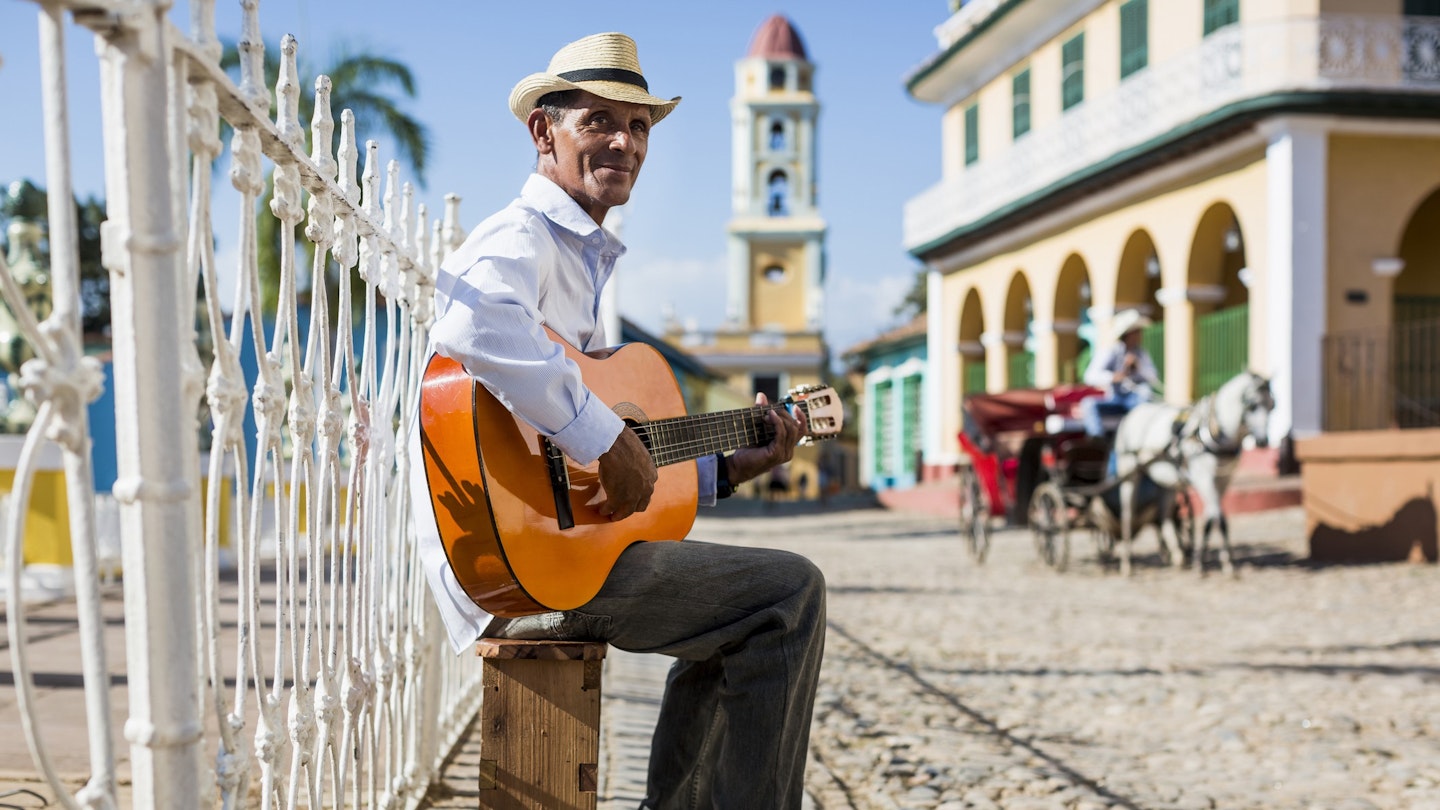
Be ready for your visit to Cuba with these top tips on what to expect © Westend61 / Getty Images
To a first-time traveler, Cuba can seem like a confusing jigsaw puzzle, particularly if you’re breaking free of the resorts and traveling around on your own.
The Spanish spoken here is fast and hard to decipher, many streets have two different names and the country’s fickle and highly complicated monetary situation could fill its own guidebook.
To help you be prepared, here is everything you need to know before planning a trip to Cuba.

1. Double-check your insurance
You are required to have medical insurance to visit Cuba and will need to bring digital or printed proof of your policy. Random checks are made at the airport. If you arrive without insurance, you’ll be asked to buy a Cuban policy at the airport for US$30.
2. Fill out your passenger information in advance
Cuba uses an online form called D’Viajeros to gather traveler information, including immigration and health data, in advance of travel. Fill out the form digitally up to 72 hours before your arrival in Cuba.
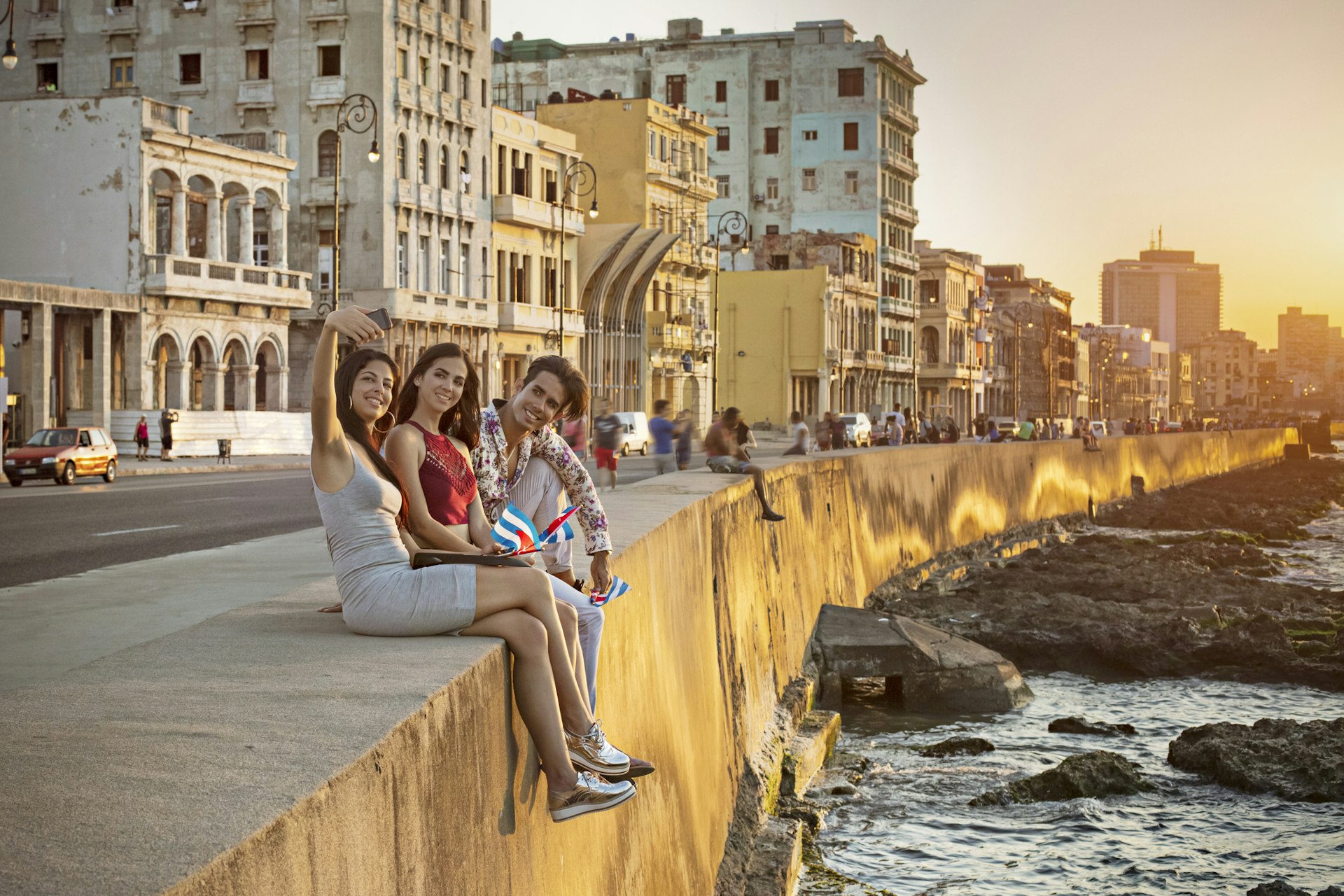
3. Every visitor needs a tourist card
To enter Cuba, all visitors need to present a completed tourist card . It’s usually available through your airline (ask when booking) and included in the price of your ticket.
If not, you can purchase one through a Cuban travel agency. Costs range from US$50 to US$85. Citizens of 20 African and Asian countries require a formal visa to enter Cuba. Check the situation for your country before booking.
4. Cash and currency: it’s complicated!
Money in Cuba is confusing, even to Cubans . Since the country abolished convertibles (CUC) in January 2021 and took the US dollar out of circulation in June 2021, there has been massive inflation and the emergence of a rampant black market. The knock-on effect is a bewildering dual economy.
The official currency of Cuba is the Cuban peso (CUP), but foreign currencies are also widely accepted, especially by private businesses who need hard cash to buy non-rationed goods in MLC (freely convertible currency) shops.
State-run enterprises and banks use official exchange rates. However, the prices of the superior services offered by private businesses generally reflect black market exchange rates.
Hence a main dish in a private restaurant in Havana will cost around CUP$500 (US$21). That’s an expensive meal if you’re paying in pesos bought from a Cuban bank.
However, most private restaurants will also accept payment in euros using a more favorable exchange rate. Some will even have a separate menu with prices printed in euros.
When buying something from a private business – be it a restaurant, casa particular (private accommodation) or taxi service – it’s usually best to pay in a foreign currency. Always ask upfront what currencies they accept and what exchange rate they use for their published peso prices.
Euros is the most interchangeable currency and the one preferred by Cubans. You can also use and exchange Canadian dollars and pound sterling.
US dollars still circulate on the black market, but we don’t recommend bringing them. The best bet, when you arrive, is to keep most of your money in a foreign currency and only change small amounts into pesos for incidentals like museum entry, concert tickets and tips.
5. MLC is a currency with no cash form
The Moneda Libremente Convertible (MLC) is a currency approved by the Cuban government in 2020 that can be used in certain shops to buy higher-end goods.
The currency doesn’t exist as cash and its value is pegged with the US dollar. It’s used mainly by Cubans with special magnetic cards.
Tourists needn’t worry too much about MLC$, although prices will sometimes be displayed in the currency in state-run enterprises such as cigar shops or airport souvenir stores where you can pay with a non-US credit card.
6. Only some credit cards will work
Credit cards are increasingly popular in Cuba and in many state-run businesses are the preferred (and sometimes only) method of payment.
Despite promises made in the Obama era, credit cards linked to US banks are not accepted. Private businesses almost never have credit card machines, meaning your only option is cash.

7. Pack your favorite casual clothes – and men need a shirt
Dress in Cuba is casual, so you can leave your high heels and tux behind. The only real dress code is in cinemas, theaters and nightclubs, where male patrons are required to wear long trousers and shirts with sleeves or half-sleeves.
8. Cuban Spanish is fast and often informal
If you speak Spanish, you’ll find that Cubans mostly use the informal tú form of address, rather than usted . In the plural, ustedes is used over vosotros .
If you don’t know someone, it’s best to address them as señor or señora , though you’ll hear Cubans use all kinds of substitutes such as socio , hermano , papa , chica/o and asere .
9. Cuban cities are where the streets have two names
In most Cuban cities, the streets have two names: a contemporary one that is noted on maps and marked on street signs, and a pre-revolutionary one that is still used widely by the locals.
This can become confusing, especially when locals, unaware of the new street names, start giving out directions or addresses using the colloquial nomenclature. Always double-check addresses and, if possible, get two potential names for the street you’re looking for.
10. Understand the local art of queueing
Cubans have to endure a lot of long waits in boring queues, so they’ve invented a way of doing it that doesn’t involve standing in line. In a Cuban queue, you simply roll up at the bakery/clinic/visa office and yell out to the assembled masses, "Quien es último?" (Who’s last?).
Hopefully, someone in a 400m vicinity will answer your polite entreaty with the word, "yo" (me). That person is your yardstick. As long as they’re still around, feel free to go for a walk, sit in the lotus position or buy ice cream. When they get called up, be on your toes, you’re next!
11. Ask questions more than once
Thanks to heavy bureaucracy, answers to simple requests aren’t always straightforward – or even correct. Probe politely and ask at least five different people before you make important decisions.
12. Bring something to keep you warm on a cold bus journey
Cuba has a countrywide state-run bus service called Víazul that connects all of the main cities and some of the smaller towns. Prices are charged in MLC$ (the same rate as the US$) and tickets must be paid for with a credit card either in person or online.
A second service called Conectando, run by Cubanacán, also puts on buses in peak season along some of the more popular routes. Bring a sweater/jacket for long bus rides – the air-conditioning is akin to a chilly day in Vancouver.

13. Cuba is considered a safe place to travel
Cuba is one of the safest countries in the Americas in terms of violent crime. Pick-pocketing is more common but not rampant, and is mostly avoidable if you follow a few basic precautions: Wear a money belt, use safe boxes in hotel rooms and don’t flash your cash in public.
14. Solo female travelers report receiving unwanted attention
Solo female travelers report experiencing a good deal of unwanted attention, but it didn't necessarily spoil their enjoyment of traveling in Cuba.
There is a fine line between being open and friendly and harassment, and some men can cross that line by being overly familiar or asking too many personal questions. Learn some key phrases in Spanish that make it clear when you're not interested.
15. Beware of forgeries
Never change money with unlicensed traders on the streets. You run the risk of receiving estafas (forged notes).
16. Bring your own medicines
On one level, Cuba has a good health system (it invented and quickly distributed three COVID-19 vaccines); on the other, it is perennially short of pharmaceuticals.
Bring all the prescription medications you think you’ll need, as well others you might like ibuprofen or paracetamol. If you’d like to donate some medicines to the people of Cuba, it is currently possible to bring in 10kg of medical supplies tax-free (pack them in a separate bag).
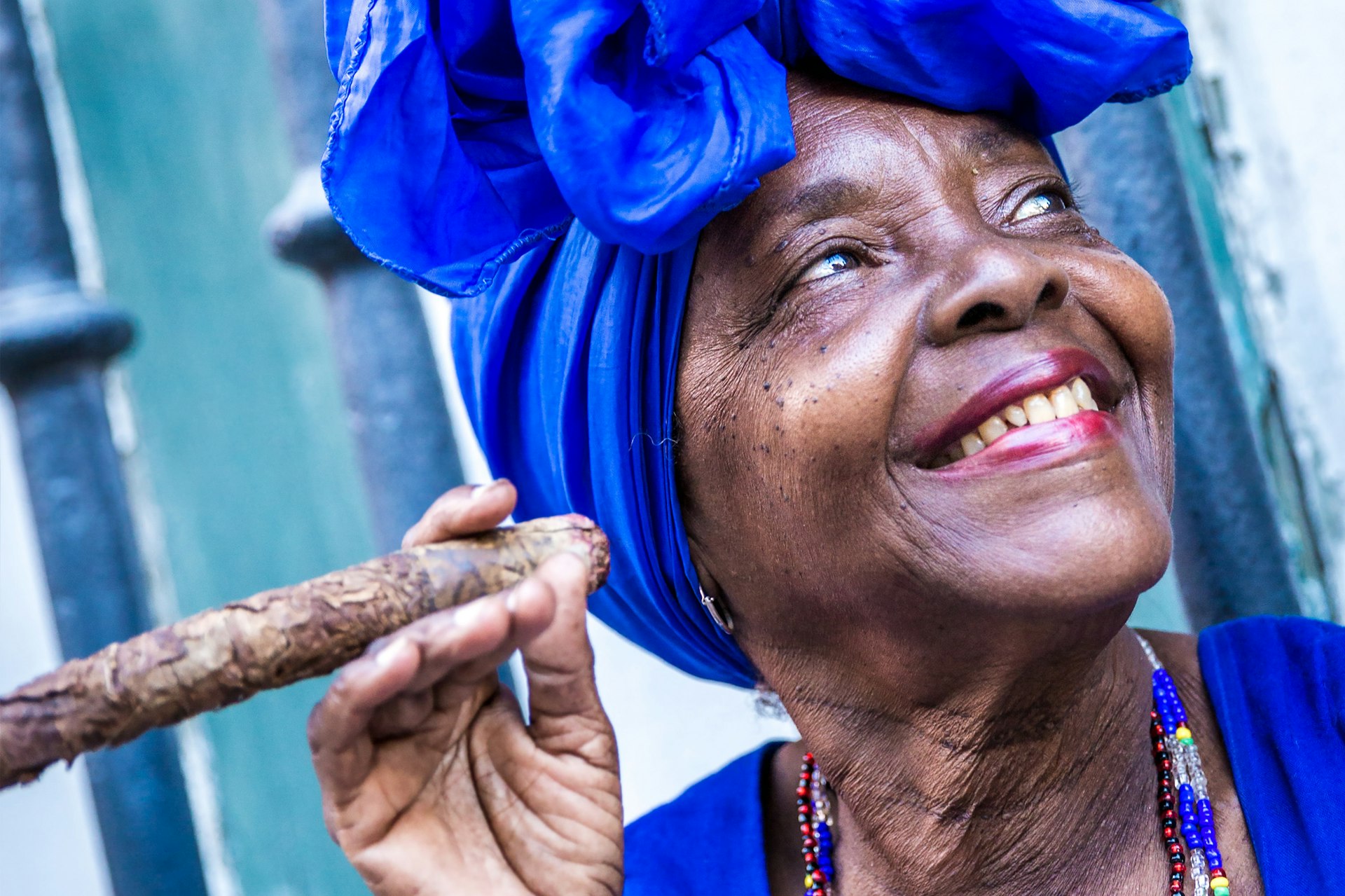
17. Avoid dodgy cigars
Cuba has its share of jineteros (touts) spinning elaborate stories about super-cheap, high-quality cigars procured by their brother/mother/cousin from the factory. Don’t believe them. Instead, buy your cigars in state-run shops such as the Casa del Habano chain. Cigars sold on the street are invariably factory cast-offs and not genuine.
18. Driving is not as easy as you think
With light traffic on the road, driving might seem like an easy proposition, but with elevated rental prices and cars often in short supply, it’s not always so.
Add in sporadic signposting, potholed roads and a wide array of hazards – goats, horses, bicycles, kids and slow-moving, fume-belching trucks – and you might want to consider getting the bus or, at least, employing the services of a chauffeur.
19. Bring toilet paper and sanitary products
The pandemic made the provision of antiseptic hand lotion more common, but the same can’t be said of toilet paper. Carry your own roll and/or gravitate to four- or five-star hotels when you’re caught short in the city.
Re-usable pads and silicon cups, or disposable pads and tampons are must-pack items if you're expecting your period while you're in Cuba. These are in high demand here.
20. Don’t drink the water
The water won’t kill you, but it might give you a little queasiness or an upset stomach. Fortunately, bottled water is abundant and cheap. An even better idea is to bring your own filter bottle or water purification tablets.
This article was first published February 2022 and updated January 2024
Explore related stories
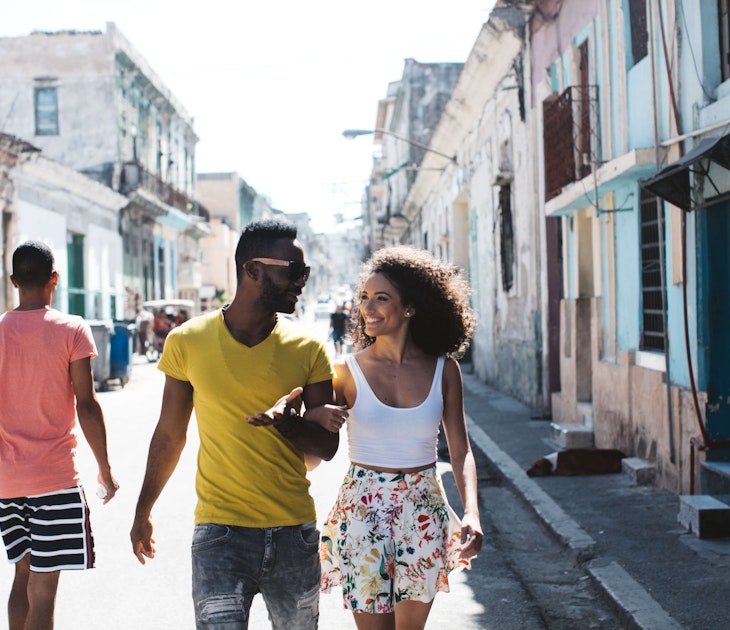
Tips & Advice
Jan 18, 2024 • 4 min read
Travelers often have questions about the visa process for Cuba and whether US citizens can even visit. Here’s our guide to Cuba’s visa requirements.
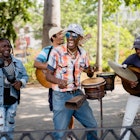
Jan 9, 2024 • 4 min read
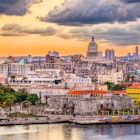
Jan 9, 2024 • 6 min read

Jan 7, 2024 • 10 min read
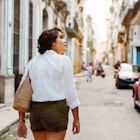
Jan 6, 2024 • 7 min read

Jan 5, 2024 • 4 min read
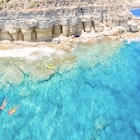
Nov 24, 2023 • 7 min read

May 6, 2023 • 9 min read

Jan 6, 2023 • 7 min read

Jan 5, 2023 • 8 min read

Cuba Travel Tips: 58 Things You Need to Know Before Traveling to Cuba (2023)
Traveling to Cuba? You probably already realized there’s a distinct lack of solid, practical Cuba travel tips for first-time visitors. Worse, the information may not be accurate at all in 2023!
Figuring out things like the Cuban currency, how to save money, what to pack, how to dress, how to access the Internet, or even how to stay safe and healthy can be confusing! This can be especially difficult for Americans since visiting Cuba was strictly forbidden for many years.
Until now! We’ve compiled the most complete list of things to know before traveling to Cuba, and they all work in 2023! We also cover the latest Cuba travel restrictions concerning the COVID-19 pandemic. Absolutely everything you must know.
Travel planning tips for Cuba
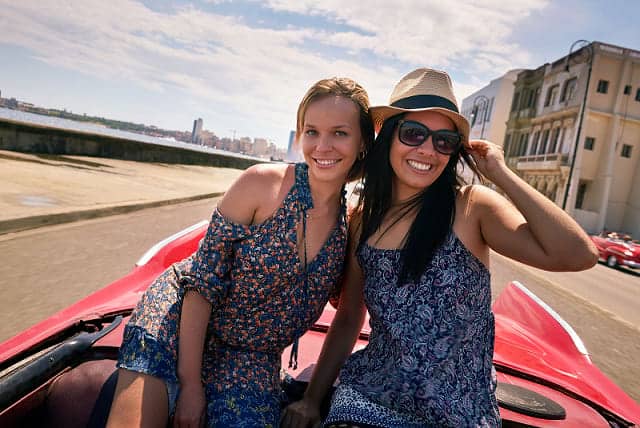
1. Travel in the dry season (November to April)
Although the beaches in Cuba remain absolutely beautiful at any time of the year, the rainy season in Cuba (May to October) can bring hotter and more humid weather. The tail end of the rainy season is also well-known for hurricanes and lots of mosquitoes!
Therefore, if the weather is a big priority for you, the best time to go to Cuba is the dry season.
2. Get the Cuban Tourist Card
Travelers from most countries will need a Cuba Tourist Card or Cuba Visa to enter the country.
Cuban Tourist Cards come in two colors: pink and green. If you travel directly from the U.S. to Cuba, you’ll need a pink Cuban Tourist Card. Otherwise, get a green Tourist Card.
You can get the Cuban Tourist Card online (through sites like EasyTouristCard) , from your airline or travel agency, or at your country’s Cuban Embassy. Technically, you can also buy the Tourist Card at Cuban airports for about 25 USD, but the reality is that you can’t even board your flight if you don’t have it.
3. Get travel health insurance
Travel health insurance is an entry requirement for Cuba , so you can’t skip it. Visitors to Cuba are required to have travel insurance to cover medical expenses on the island. Companies like Insubuy offer travel health insurance for Cuba starting at 8 USD per week per person.
Before you land in Cuba, review the medical portions of your insurance plan, so you know exactly what situations you’re covered for during your trip. If an emergency strikes, the last thing you want to do is have to shuffle through your insurance paperwork.
4. Bring the essential packing list for Cuba. Packing tips for Cuba
There are certain things you don’t want to travel to Cuba without.
With Cuba’s rationed economy, supplies are limited on the island. So, you may be unable to pick up some of your travel necessities if you forget to pack them in your bag. Double check this list to make sure your bags are ready to go before you board your flight!
- First aid kit
- Hand sanitizer
- Convenience kit
- Water bottle with filter
- Microfiber towels
- Mosquito repellent
- Portable charger
- Pin adapter (for Europeans)
- Travel guide
- Spanish-English phrasebook
For a full rundown of what you need to bring to Cuba, check out our ultimate packing guide for Cuba .
5. Bring appropriate clothes to Cuba. Dressing tips for Cuba
Dressing for Cuba will vary based on your style. Still, two things to consider are the weather and the kinds of activities you’d like to do while in Cuba.
Cuba has two seasons: the wet season (May – October) and the dry season (November – April). The wet season brings lots of rain, humidity, and high temperatures, so dress accordingly!
Here are recommended clothes for the hot, humid weather in Cuba:
For a woman traveling to Cuba:
- Light summer dresses
- Walking sandals
For male travelers to Cuba:
6. Rent your car in advance
If you stay a few days in a city, you won’t want to get into the hassle of renting a car in Cuba . Believe me, it can be complicated.
However, if you want to rent a car to visit all the fantastic places on the island, you better do it in advance. Car inventory is always limited, fleet management is inefficient, and the service is terrible. This is especially true during peak season.
Therefore, at least three months in advance, rent your car from online travel agencies like Cuba Travel Network , or Holiplus .
7. Fill out the health and customs forms online
Instead of borrowing pens, filing out annoying forms, and wasting your precious time in the airport, sign up for D’Viajeros .
D’Viajeros is the official website of the Cuban Customs, where you can complete all the required documentation to enter Cuba. Then, just print the documents and bring them with you.
8. Brace for arrival
There are a few things that you need to know about airports in Cuba:
- They are pretty disorganized: long lines, poorly-maintained bathrooms, and hot!
- There are certain items that you cannot take through customs. Check the Cuban Customs website for more details.
- If you want to exchange your home currency for Cuban Pesos (CUP) at the airport, prepare for a long line.
- Don’t count on ATMs! There are a few, but they are not reliable.
- You can connect to WiFi at 25 CUP/hour.
- Outside the airport, you can hire state or private taxis for transfers to the city. There are also car rental offices in most Cuban airports.
To learn more about arriving at Cuban airports, read our guide to Havana Airport .
Cuban currency tips

9. Understand the Cuban currency
Two official Cuban currencies circulated on the island until January 2021: the CUC (Cuban Convertible Peso) and the CUP (Cuban Peso). Contrary to what many outdated articles say, you can no longer use the CUC in Cuba! You must use the CUP instead (also known as “moneda nacional” or MN), which is accepted at most facilities and tourist attractions.
However, you must consider that all-inclusive hotels and some resorts won’t accept cash for non-covered services or products. They will still charge you in Cuban Pesos, but you must pay with your credit card and assume the currency conversion fees.
The CUP is available in bills of 1, 3, 5, 10, 20, 50, 100, 200, 500, and 1000. You should always have bills in lower denominations to pay for:
- Street vendors and food stalls
- Bus tickets
- Purchases at a flea market
- Purchases made at small local bodegas and convenience marts
Remember that the US dollar and other foreign currencies are not accepted at state facilities such as hotels, airports, and restaurants. You will have to use CUP to pay for products and services from these state facilities. However, most private businesses in Cuba welcome hard currencies.
You can exchange your currency for CUP at state currency exchange offices (CADECA) , airports, banks, hotels, and resorts.
For more Cuba travel tips related to Cuba’s currency system, check out this Ultimate Guide for Travelers .
10. Bring cash to Cuba, a lot
You can pay for all things in Cuba in cash. In fact, just a few businesses accept credit and debit cards, so you should always carry cash.
Due to US restrictions, credit cards issued by U.S. banks are not accepted in Cuba.
If you need to re-stock up on cash during your visit, Cuba has about 780 ATMs. They are mostly located in larger cities like Havana , Matanzas (Varadero), Santiago de Cuba, and Holguin. Again, credit cards issued by American banks won’t work.
11. Don’t count on bringing Cuban Pesos
The Cuban Peso (CUP) is the official currency in Cuba. You can’t get it in advance! And if you do, you can import only 2,000 CUP, which is like 80 USD. It’s better to wait until you land on the island to exchange.
12. Bring Euros if you can, but USD dollars are fine
If it’s not a hassle for you, bring Euros to Cuba. Euros have one of the highest exchange rates in Cuba and are widely accepted. They also incur the lowest exchange rate fee of 2%.
You can also bring US dollars and sell them to CADECA or in the informal market. Just consider that US dollars may not be accepted at some state-owned facilities in Cuba, and they will incur the highest exchange fee (8%).
How much money to bring to Cuba?

13. Calculate the approximate daily budget
Cuba can be quite affordable if you plan correctly.
Before you arrive in the country, you should get a feel for major expenses like accommodations, transportation, and food & drink costs. Here are the most common expenses to incur on a trip to Cuba:
- Accommodation costs: “casas particulares” cost between 20-50 USD/night. Hotels and resorts cost anywhere between 100-500 USD/night.
- Transportation costs: private taxis cost around 1.50-3 USD/kilometer. The Viazul bus ticket costs anywhere from 6 USD to 51 USD, depending on your interprovincial route. Renting a car will cost around 85 USD/day.
- Food and drink costs: Vary quite a bit! Breakfast at your casa can cost anywhere between 5-12 USD, while a sit-down restaurant meal can range from 10-30 USD.
- Entertainment costs: A tour of Havana in a classic car costs around 50 USD. Tickets to a baseball game cost 3 USD/each. Some museums are free, and others can cost up to 10 USD.
For a full breakdown of a realistic daily budget, check out our guide on the trip to Cuba cost .
14. Tipping in Cuba: who and how
Like many destinations throughout the Caribbean, tipping is common and even encouraged in Cuba .
Popular tippling locations include hotels, resorts, restaurants, guided tours, taxis, and spas. Anytime someone provides a service for you, like cleaning your room, waiting for your table, or transporting you in a taxi, you should strongly consider offering a tip to that person–especially if they do an outstanding job!
We recommend at least 1-3 USD for maids, porters, receptionists, street musicians, and taxi drivers. Local guides generally expect 5-10 USD, while 10% of the bill is the gratuity standard at restaurants in Cuba.
Money-saving tips for Cuba
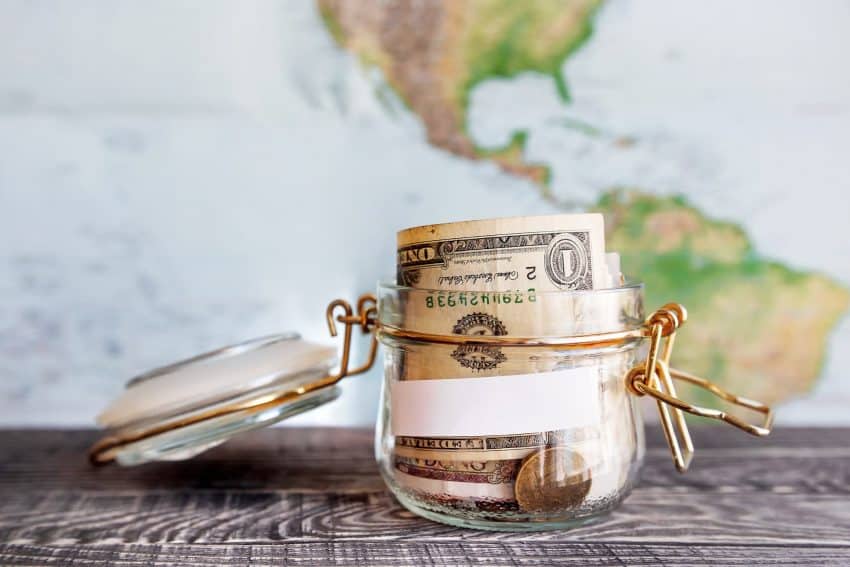
15. Stay in casas particulares (private accommodations)
This is a piece of Cuba travel advice you shouldn’t ignore!
Casas particulares are popular and highly authentic places to stay during your Cuba trip. A casa particular is similar to a bed-and-breakfast. Usually, it costs between 20-50 USD per night, making them much more affordable than resorts on the island. Check out availabilities!
For more on this, read our 13 tips to booking an Airbnb in Cuba .
Bonus tip: Be aware! You may be tempted to save money by staying at someone’s place for free. It’s illegal! Avoid trouble with the law and overpriced hotels by staying at a homey casa particular instead.
16. Book flights to Cuba with a flights search engine
Direct flights to Cuba–especially from the United States–are limited, and many airlines don’t fly to Cuba.
To book a flight to Cuba, it’s easiest to see ticket options from multiple airlines. You can check out a flight search engine like Skyscanner that covers flights to Cuba.
17. Eat at paladares (private restaurants)
Cuba has a growing restaurant scene where you can find everything from gourmet meals to comfort food.
Paladares are private restaurants typically owned by families. Paladares are an excellent way to get authentic Cuban food at an affordable price.
Cuba travel guides like this one from Lonely Planet often have lists of paladares you can choose from. It also includes culinary facts about Cuba and advice for its best restaurants.
18. Share urban taxis in Cuba
Cuba’s taxis are a convenient and authentic way to get around the cities, especially if you are on a backpacking adventure . Plus, Cuba’s almendrones (classic American cars) are world-famous and unique to the island.
Although it may be a little uncomfortable, sharing an urban taxi for short rides is a cheap and authentic way to experience Cuban.
19. Book the tours to Cuba before you leave
Guided tours offer an unparalleled, authentic experience of Cuba.
From walking tours of history-rich cities like Havana to hiking or horseback riding in the stunning countryside, an experienced guide can show you parts of Cuba that you’d miss out on if you traveled solo.
Tours can book up fast, so plan the itinerary and book your tour in advance . Plus, tour guides are experts in Cuban traditions and culture , so they’ll have tons of more helpful Cuba travel tips!
Cuba Travel Restrictions During COVID-19
20. no need to bring proof of covid-19 vaccination or a negative pcr test.
As of April 4th, 2022, you are not required to present proof of vaccination against COVID-19 or a negative PCR test at arrival. For a full rundown of COVID-related restrictions, check our guide to the current set of Cuba travel restrictions .
21. Fill out the Sanitary Statement for Travelers
If you didn’t complete the online documentation with D’Viajeros, as explained earlier, you would need to fill out the Sanitary Statement for Travelers ( Declaración de Sanidad del Viajero ), a sort of health declaration form. You will be asked to complete the form before checking in for your flight to Cuba or during the flight.
22. There are restrictions on facilities, attractions, and mobility
Like any other country struck by the COVID-19 pandemic, Cuba has imposed tight internal restrictions that may affect your stay on the island, specifically:
- Social distancing (5 ft) and face masks may be required at some establishments.
- You may be subject to contact tracing or random temperature checks.
- There is limited capacity and operating hours at most tourist facilities.
- Large gatherings are not allowed.
- Travel within and between cities and provinces may be restricted.
23. Avoid the fines for non-compliance
You read that right. You may be fined and even prosecuted if you violate the above measures. However, honestly, that would be very rare for international travelers.
Tips to avoid getting sick in Cuba
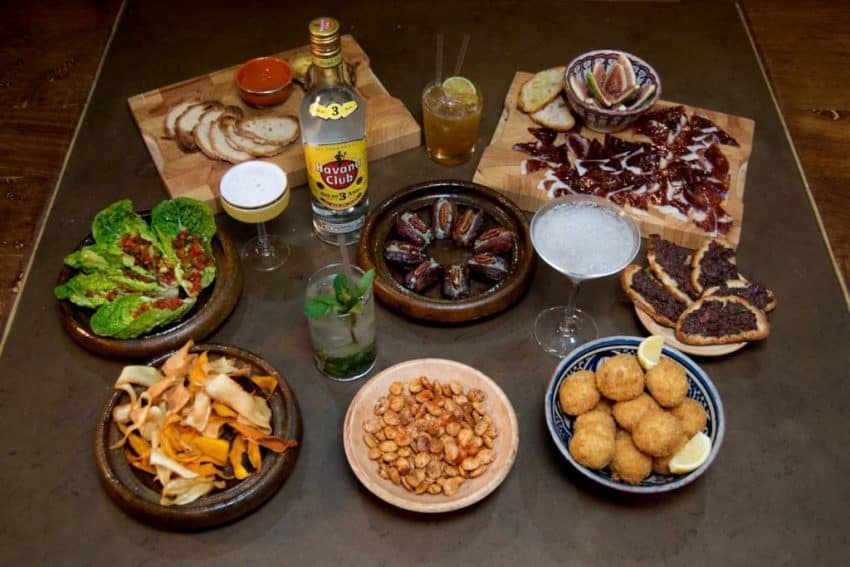
24. Bring your medications
Cuba’s physicians have a good worldwide reputation. However, you should still be prepared for minor illnesses or injuries that don’t necessarily warrant a hospital visit.
Pack an all-purpose First Aid kit with all the necessities like bandages, aspirin, and bismuth.
25. Don’t drink tap water in Cuba
We don’t recommend drinking tap water in Cuba!
Cuba’s water supply is home to its unique bacteria and microorganisms. The bacteria itself isn’t dangerous per se, but your body isn’t used to it, and it can make you very ill. Nausea, cramps, upset stomach, and other gastrointestinal issues that could wreck your trip are common.
Using water bottles with built-in filters is an easy way to keep your water clean and safe to drink during your stay.
26. Don’t buy street food
Cuba is home to delicious local food, but buying food from a street stall or vendor can make you sick. Street stalls are simple set-ups and don’t have the luxury of refrigeration and sanitation that restaurants have.
If you fancy yourself a dare-devil and indulge in street food anyway, you should be extremely careful about what kind of fish you eat. Certain local fish from Cuba’s southern shore can be poisonous ( siguato ) because they eat toxic sea vegetation.
27. Eat at the recommended restaurants in Cuba
Since food from street vendors can be iffy, you should instead eat at one of Cuba’s many private restaurants, referred to on the island as paladares .
Cuba travel guides like this one from Lonely Planet often have lists of paladares you can choose from. It also offers tons of Cuba travel tips for getting the best of Cuba’s culinary scene.
28. Take basic food safety precautions
You can avoid many potential illnesses in Cuba by exercising basic safety precautions regarding food, sanitation, and hygiene.
For example, washing your hands before meals will help eliminate harmful bacteria. When it comes to food, you should avoid eating anything raw or undercooked and forgo consuming unpasteurized dairy products. Washing and peeling your fruits and veggies also helps eliminate harmful germs.
29. Protect against mosquitoes in Cuba
You’ve probably heard of Zika or Dengue outbreaks in the media.
Cuba is a humid, tropical island home to lots and lots of mosquitoes –bugs are just one of those unfortunate facts about Cuba . And since Cuba is warm all year round, mosquitoes will be around no matter what time of year you visit.
The International Association of Medical Assistance to Travellers (IAMAT) recommends “taking meticulous anti-mosquito bite measures during the daytime. Pregnant travelers should seek counseling from a travel medicine practitioner and consider postponing travel to this country.”
Bring a potent insect repellant to keep away mosquitoes during your trip!
30. Write down the hospitals and physicians available
If you find yourself sick or injured in Cuba, you don’t want to be left scared and helpless because you don’t know who to turn to for help.
Did you know that the U.S. State Department put together a list of hospitals and physicians for all of Cuba’s major cities? Bookmark the list so you can use it as a quick reference if you or one of your travel companions needs medical attention.
Travel safety tips for Cuba
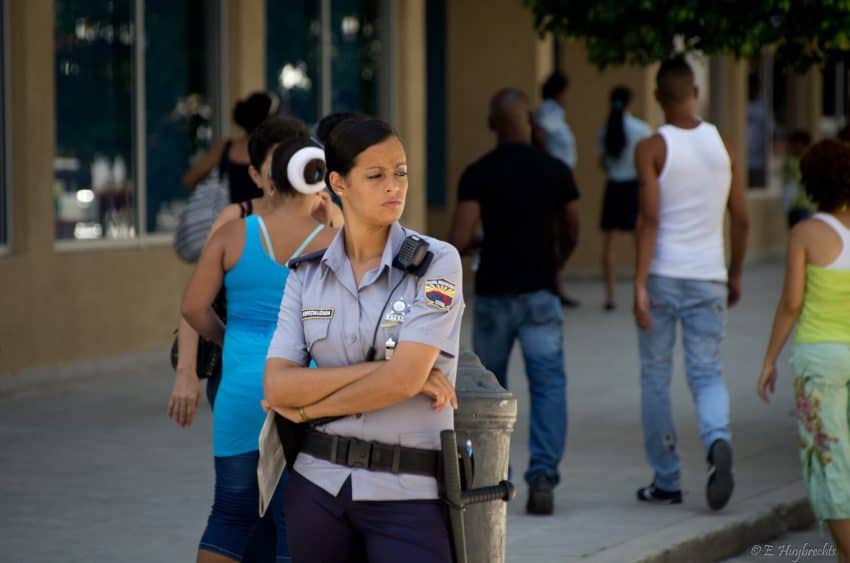
31. Get the emergency numbers
We don’t like to think about getting into emergencies while traveling, but the truth is, they can happen anytime. Write down these important phone numbers just in case of an emergency.
- Police: 106
- Fire Department: 105
- U.S. Embassy in Cuba: +53 7839-4100
- For Canadians traveling to Cuba , Canadian Embassy in Cuba: +53 7204-2516
32. Don’t exchange money with street vendors
Visitors to Cuba sometimes fall prey to currency scams. You should always exchange currencies at a legitimate location. CADECAs are located at hotels, airports, and banks.
Avoid exchanging money through informal means like street vendors. You might get the wrong amount of cashback or counterfeit money.
33. Don’t carry too much cash on you
It’s smart to carry cash on you while in Cuba, but it’s not smart to carry too much all at once. The more cash you have in your pocket, the more you could lose if you are pickpocketed.
Instead, carry what you need for the day and leave the rest in a safe place back in your room.
34. Avoid pickpockets
Cuba is one of the safest countries in the Caribbean to visit, but petty theft is commonplace. This is especially true in major tourist areas where thieves seek “easy” targets.
The best way to deter pickpockets and protect your valuables is with a money belt like this one from Peak Gear . A money belt is subtle, secure, and lightweight, so you can always keep your valuables hidden and close to you.
35. Don’t go to impoverished neighborhoods
Like any other country you visit, some parts of Cuba are safer than others.
Poor neighborhoods, especially in large cities like Havana, could be dangerous to tourists due to muggers and robbers. In Havana, certain neighborhoods in Centro Habana, Marianao, and Guanabacoa are especially dangerous. You should only consider going if you have a knowledgeable, trustworthy local friend.
If it helps, you should consider carrying a travel whistle like this NOOPEL Emergency Whistle.
36. Don’t show off
There’s something about vacation that sometimes makes people want to show off, but Cuba is not the place to do that.
Showing off symbols of wealth or status like luxury clothes, bags, watches, or expensive electronic devices, can attract the wrong kind of attention and mark you as a target for thieves or muggers.
Instead, keep your valuables home and bring only what’s practical and comfortable for your trip.
37. Hire only professional Cuban guides
Cuba is full of guides willing to take you on tours of the cities and beyond, but only some of them are legitimate.
Instead of hiring someone on the street, stick to reputable guides. Hiring the wrong guide can be a waste of money and potentially dangerous.
38. Lock your luggage
Locking your luggage can make the difference between keeping your stuff safe while traveling and having it stolen.
Although Cuba is a safe country to visit, it’s not unheard of for things to go missing from unattended bags. Keep your things safe with a TSA lock like this one .
39. Use your common sense
Cuba is a safe country with relatively low crime rates. That said, you should exercise common sense when traveling throughout the country to protect yourself from trouble.
Avoid walking alone at night, and don’t invite strangers back to your room. These are just a few Cuba safety tips you can learn from the Ultimate Guide to Stay Safe in Cuba .
Transportation tips for Cuba
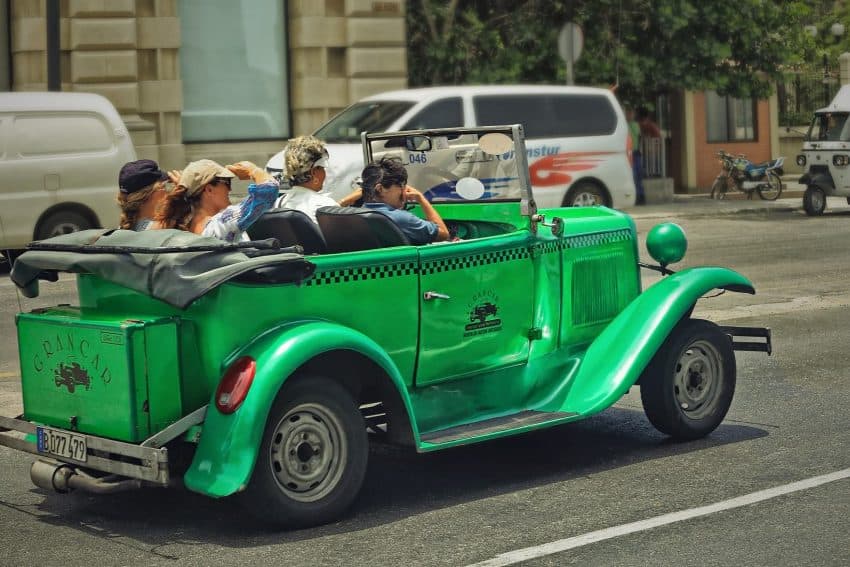
40. Plan your local transportation in advance
Cuba has a variety of transportation options for getting around the island. Your choice will depend on your budget and the distance you want to travel.
Taxis (state taxis or almendrones) are the most affordable option for getting around within a city or between two nearby cities. You can rent a car, but be aware that daily fees are pricey and road conditions in Cuba mean they’re not always safe to drive on.
For longer trips between cities or other parts of the island, you can take the Viazul bus . If your trip is longer than you’re comfortable traveling by bus, you can skip the Viazul and book a domestic flight across the island.
41. Get a street map of Cuba
You’ll probably spend a lot of time traveling on foot. With Cuba’s year-round warm weather and the beautiful old architecture of its cities, you’d be missing out if you didn’t hit the pavement.
For getting around Cuba on foot, a paper street map will be your best friend. Internet access in Cuba is spotty, so don’t assume you’ll have access to Google Maps or Apple Maps on your phone.
How to get Internet access in Cuba?
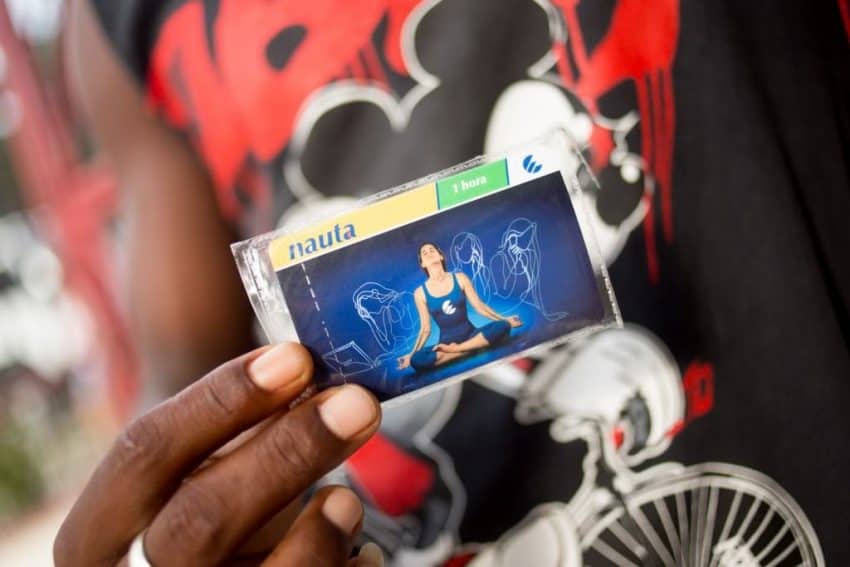
42. Don’t expect easy Internet access in Cuba
Cuba does have internet, but access is limited, and service isn’t available everywhere. The only Internet provider in Cuba is Empresa de Telecomunicaciones de Cuba (ETECSA). The best spots to find reliable internet access are hotels, airports, and public hotspots in the biggest cities.
Once you get connected, don’t expect lightning-fast speeds. Bandwidth is limited, so you should be fine making basic web searches and sending emails, but don’t expect to stream music and videos.
To know more about getting access to the Internet in Cuba, check out our detailed guide to get Internet in Cuba for tourists .
43. Know your options
You’ve got some options for connecting to the Web in Cuba.
A. Buy a NAUTA card
You can purchase a NAUTA card at ETECSA offices, but be prepared to wait in a long line. Travelers have reported that the lines in Havana can take up to two hours!
Some hotels also sell NAUTA cards, so you may be able to skip the trip to the local ETECSA center. A 5-hour card costs 125 CUP, and a one-hour card costs 25 CUP. Note: bring your passport! You’ll need it to buy the card. Also, if you buy the card at ETECSA, you must pay in CUP.
While we don’t recommend this option, you can also purchase an internet access card on the black market. If you go this route, expect to pay an extremely inflated price!
Once you have your NAUTA card in hand, you can connect to the web at any of these places:
- Public wifi hotspots. Here is a list of all the WiFi hotspots in Cuba .
- Hotels and resorts
- Salas de Navegación: d esktop computers at ETECSA offices .
B. Hotel and resorts that offer free Internet
Some upscale hotels and resorts offer free WiFi and desktop computers with internet access. In this case, you don’t need a NAUTA card.
However, this isn’t a universal commodity for all hotels in Cuba. You’ll want to research the hotel beforehand if this is your choice. A site like Skyscanner lists many of the services and features each hotel has to offer.
C. Ask your host to share Nauta Hogar
Nauta Hogar offers Cuban homeowners WiFi access in their homes and public hotspots. They need to pay a monthly subscription, which is not free and very limited.
For a price, your host may be willing to share their username and password with you. With access to a Nauta Hogar account, you can connect in your room, public hotspots, and airports!
D. Get the Cubacel Tur SIM Card
The Cubacel Tur SIM Card is a temporary phone line for tourists that ETECSA offers. It lasts for 30 days. The minimum package starts at 25 USD, including 2.5 GB of data, 20 minutes of international and national calls, and 20 SMS.
You can get the Cubacel Tur SIM Card in advance from ETECSA’s authorized providers , or buy it once you land in Cuba at any of ETECSA’s offices.
E. Rent a SIM card from your host
Some casa owners may be able to rent you a SIM card with Internet access for a price.
F. Buy or rent a SIM card online
A few online companies also offer Cuba SIM cards you can purchase ahead of your trip. Cellomobile and OneSimCard are popular companies that allow you to purchase or rent a SIM card for Cuba.
Cellomobile prices: Incoming calls $2.19/minute; outgoing calls $2.19/minute; free incoming SMS text messages; outgoing SMS messages $0.49/each.
OneSimCard prices: Incoming calls $0.65/minute; outgoing calls $1.25/minute; free incoming SMS text messages.
G. International roaming
Some major cell carriers like AT&T offer roaming coverage in Cuba. You can get an idea of what calls, texts, and data in Cuba cost by checking out the plan here .
T-Mobile’s Global Plus 15GB Plan also covers cell service in Cuba. Verizon and Sprint also have coverage but no roaming packages for Cuba.
AT&T prices: $3.00/minute for calls; $0.50/text; $2.05/MB for data
T-Mobile prices: $2.00/minute for calls; $0.50/text; $2.00/MB for data
Cuba travel tips for dealing with the ugly
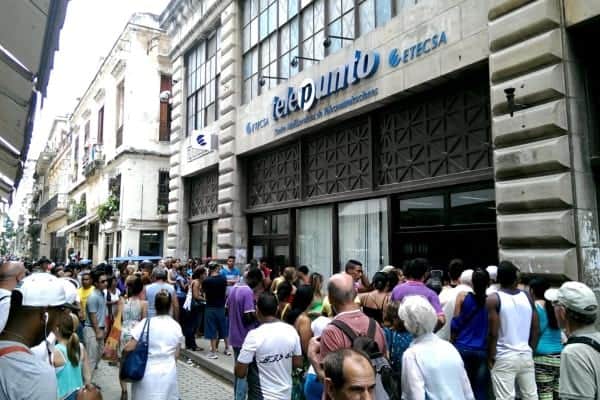
44. Be prepared for the long lines
Many goods and services on the island are still rationed and distributed via the state bureaucracy. Be prepared to wait in line at the bus stop, bodegas, banks, and cultural attractions like museums.
45. Many bathrooms are paperless
If you’ve spent a lot of time in North America or Europe, you probably take toilet paper for granted.
Many bathrooms in Cuba don’t have toilet paper or have toilet paper outside the stall near the washing basin. If you find toilet paper, there’s a chance it will be low-quality.
Instead of finding yourself S.O.L., you may prefer to bring a small supply of your own or a packet of travel kleenex when you’re out in town.
46. Don’t expect the entire menu to be available
Cuban restaurants are often working with limited ingredients depending on what’s available. This is mostly because the Cuban government still controls the availability of meat, vegetables, and other ingredients. This can impact the availability of certain meals and dishes on the menu.
47. Don’t expect high-quality service everywhere
Cuba is undergoing many changes, many of which you’ll notice during your stay on the island.
One of the most noticeable signs is the difference in the quality of service you’ll experience. While there are many outstanding businesses, restaurants, and hotels in Cuba, others may not meet what you’re used to experiencing in your home country.
48. Catcalling is common
Lady travelers to Cuba should know that catcalling (called piropo in Spanish) is common. Expect to hear lots of compliments like guapa , linda , and chula .
This is more likely to happen if you’re traveling as a solo female than in a group with males. Keep in mind that as annoying as the practice is, catcalling is typically harmless behavior and doesn’t lead to harassment or violence.
Respect and support the locals
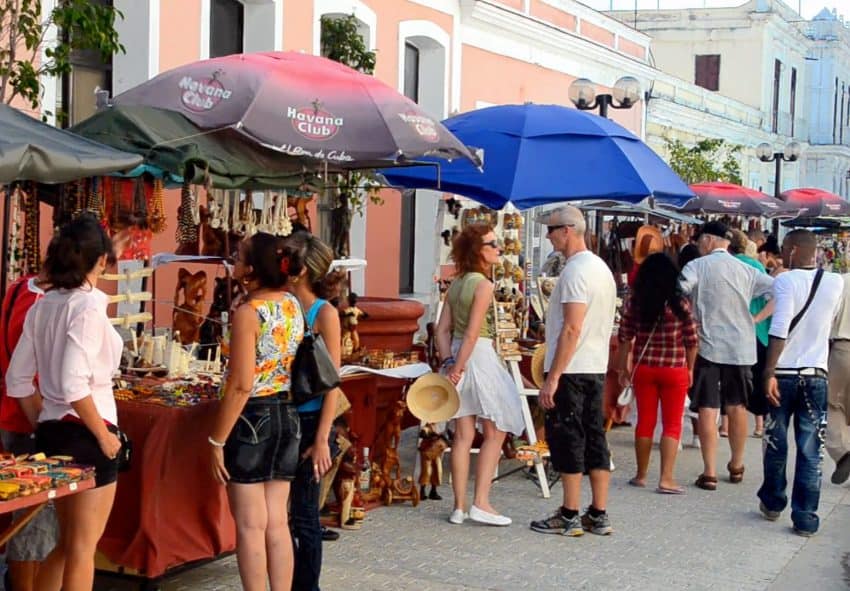
49. Learn some Spanish
Although some Cubans have conversational skills in foreign languages like English, it’s best to learn some Spanish to communicate in the local language.
Pack a Spanish-English phrasebook like this one that specializes in the Cuban dialect.
50. Avoid talking about politics
Politics is a passionate and complicated subject in Cuba. We recommend steering clear from politics while chatting with your new Cuban friends to keep the conversation light-hearted and pleasant.
51. Support Cuban local businesses
If you’re an American visitor traveling to Cuba under the Support for the Cuban People travel category , you’ll need to show that you’re supporting the Cuban people during your visit. Regardless of your travel designation, supporting local businesses is just a good thing to do!
A few popular ways visitors can support Cuban businesses include: staying in a casa particular; eat at paladares ; taking a dance class; and supporting local artists and musicians by attending their shows or purchasing their hand-crafted goods.
Airport tips
52. don’t bring huge amounts of cups to the airport.
CADECA offices in Cuban airports are no longer selling foreign currencies. Carefully plan your trip to Cuba budget , and don’t count on exchanging your leftover Cuban pesos back for your home currency.
If you end up with huge cash in CUP, exchange them in your hotel or at any CADECA office in the city. Don’t bring your leftover cash to the airport!
53. You can use mixed currencies in Cuban airports
Before the security check, you can spend only Cuban pesos. Past the security checkpoint, everything is in foreign currency only, but the change is in Cuban pesos!
Crazy, right? Well, don’t ask me!
Additional Cuba travel tips for Americans
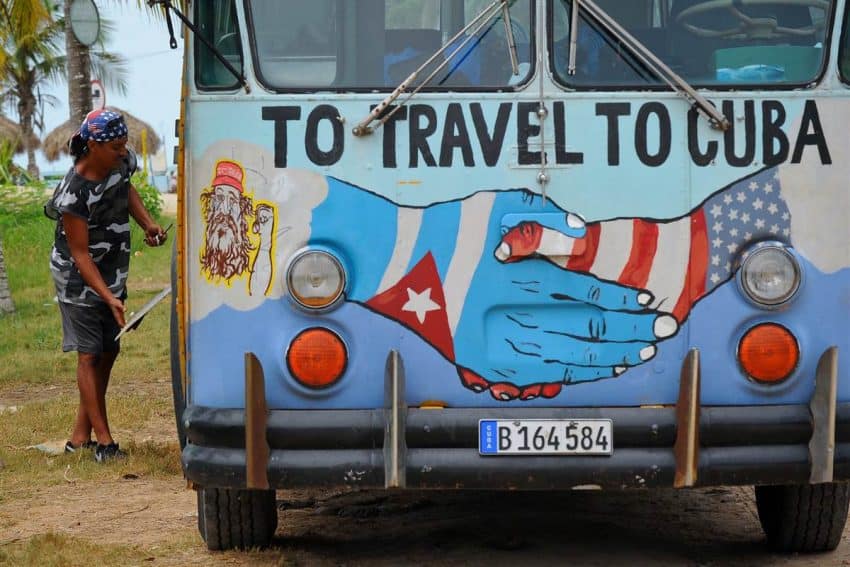
54. Make sure that your travel category covers your itinerary
Relations between the U.S. and Cuba have thawed significantly over the past decade. However, technically Americans traveling to Cuba for tourism is still illegal.
That said, you can still travel to Cuba from the US , and in fact, many Americans still visit Cuba each year. Among other things, you must declare your travels under one of twelve categories authorized by the U.S. Department of Treasury .
55. Don’t stay at the prohibited accommodations
Remember that you must not stay at any accommodation listed in the Cuba Prohibited Accommodations List . The list even includes some casas particulares !
56. Don’t spend money at restricted businesses
This is a heads-up for all American visitors to Cuba.
Due to lingering restrictions between the two countries, American visitors can’t spend money at Cuban businesses forbidden by the U.S. Department of Treasury. Any business affiliated with the Cuban military or security services is off-limits. You can view the full list here .
57. Keep your records
When possible, keep records of your travels, including accommodations, transportation, food, and miscellaneous purchases.
American travelers may be asked to provide documentation of their Cuban travels upon returning to the U.S. While anecdotally, this seems pretty rare, you should be prepared just in case it happens to you!
58. Don’t plan to bring back rum and cigars
You read that right! You can’t import Cuban-origin alcohol and tobacco products into the US , not even from third-party countries.
Buen viaje !
If this list had a #59, that’s what it would be! Armed with all the things you need to know before traveling to Cuba, you’ll be more prepared than ever for your trip. Now comes the fun part–packing and getting ready for your flight. Cuba awaits!
Have you been to Cuba before? Share your most helpful Cuba travel tips and advice in the comments below!
Share Article:
About the Author
Tour republic.
Tour Republic is a marketplace where you can discover, book, and review the very best experiences Cuba has to offer. We are a team of tourism professionals and journalists who have partnered with Cuban entrepreneurs to provide travel experiences that can transform your trip into a life-changing adventure. We also share our profound love for Cuba through in-depth travel guides, myth-busting articles, and captivating narratives. Whether you want to explore Cuba's wonders or understand its intricacies, our blog posts are your gateway to the heart of this extraordinary country.
Leave a Reply Cancel reply
33 comments.
What is the current travel advice? Am planning to visit this December ’23, but am reading about critical shortages and rationing of fuel and possibility of getting stranded travelling through the country. What is the best way to stay up to date with the current situation?
Can you take your own fishing Equipment with you and fish on the beach
Ladies carry toilet paper/tissue. Bathrooms are very clean but rarely provide it. Also be prepared to leave a tip.. 50-200cup to help out.
hey thee – I just got back from 8 days in Cuba. ONE AND DONE FOR ME. Supposed 4-star hotels on Expedia or other services would be below a Motel 6 standard here. Think road side rural Alabama cleanliness. If you want good Cuban food go to Miami. Chicken is malnourished, beef is like chewing on your shoe sole and most of the lobster was chewing on rubber bands.
Everything I’ve read is that 2 main items you cannot bring back to the states are Rum and Cigars. Guess what – it’s ALL tobacco and ALL alcohol. Going through Customs last night in Tampa the agent asked me if I had any fresh fruit, vegetables, food, tobacco or alcohol. I said I had 2 cans of beer.
I got pulled into a room, was given 3 sheets of paper to fill out. Name, address, passport number, SSN, email and phone. A different agent then went through my bag and asked me if I had permission to enter Cuba. I said yes, I finished all the paperwork. He said no – from the US DOJ? I said no….I spoke with the airline and they told me all I needed was a tourist card – same as this website. He said NOOOO. You need to get a license to travel from the USA to Cuba and that I can be fined up to $250,000 for not having the correct approvals and potentially I could have federal agents knock on my door.
Info here is partially correct but more and better research.
Hi RR, Thanks for sharing your experience! In most cases, you do not need an actual “license” or authorization to go to Cuba. The only two travel categories that need authorization from OFAC are “Professional research and professional meetings” and “Public performances, clinics, workshops, athletic and other competitions, and exhibitions”. If you travel under any of those categories, then yes, you need a permit from OFAC. Otherwise, there is no legal paperwork required. Everything is explained here .
Thank you for a great article. A bookmark for sure! I travel April 11 to April 20 to meet family for the second and first times! I’ve only met my Aunt in the US. First timer.
Question – thanks for the list of prohibited resorts. Are any allowed? I’d like to treat them to a vacation Seems like it would be harder for me to get access than them… Advise if possible? TIA
Great information tips , Thank you . I have a french passport and a valid Esta visa . Can I Fly from Miami Cuba and enter back to USA with the same ESTA visa .
Hi Joseph, Unfortunately, it appears that you will need to apply for a visa to re-enter the United States. Read more here .
Wow I love this article, so very helpful.. When you say Americans, it’s inclusive only of US Passport holders right? I’m Canadian and hold a Canadian passport, not sure if we also fall on some prohibitions that you had listed in this article? thank you
Hi Nicole, That’s right. US citizens are subject to tougher travel restrictions to Cuba. If you are traveling from Canada, check out our Cuba travel guide for Canadians .
Thanks for a helpful article. As this was updated early 2022…wondering if any insight to bringing back rum or cigars to US? The article link is from 2020. Thanks
Hi Rosalba, You still can’t bring Cuban cigars and rum back to the US.
Just came back from Cuba on 1/1/2023. Most points in the article is right. 1) USD is accepted everywhere cash is accepted. Rate 120-170 CUP to $1. 1 euro = 1 USD. Bring lots of cash (no way for Americans to get money in Cuba!!!). Exchange at a restaurant and you get the good rate. 2) most large stores do not accept cash, only non-US visa/ Mastercard. 2) Get the local SIM (1 year), 1000 CUP ($8.5) for new SIM and 3.5GB data. Add 500 CUP get you total 10.5GB data, should be enough for the trip. Do not buy the wifi card.3) book casa particular through Airbnb, paid in the US before going. Same for Viazul bus. 4) use your casa host to hire taxis or tours.
Hello, I was told Cuba was a very poor country and that bringing gifts such as toothpaste or headwear like caps, even kitchen tools are highly appreciated by the cooks and room service. Is this true?
Hi Nancy, Gitfs are welcome in Cuba. Please, read our guide to bringing gifts to Cuba . Thanks!
We’re going in next month mid-October and staying all inclusive in Valedaro – is there any tips for getting to Havana for the day? ideally we’d like to stay in a hotel for one night and have two days in Havana and then travel back
Thank you for this – and the related posts. GREAT detail, most helpful for trip-planning.
My daughter is travelling around Cuba at the moment (and loving it). But money (cash) has quickly become a serious issue. The official exchange rate at the bank is £1=26 pesos. The “unofficial” rate is £1=100 pesos – as apparently Cubans need foreign currency to be able to purchase certain items but cannot get hold of it officially themselves. She had planned on simply getting money from ATMs / banks but now realises that this will make everything four times as expensive. So the message is definitely pay for things in advance where you can and take as much cash with you as you think you will need. Don’t rely on local banks / ATMs. Euros and sterling in particular seem to be popular (I’m not sure about USD).
Those are great tips, Richard. Thanks for sharing! By the way, we wrote a whole guide to using money in Cuba here . Check it out!
Be sure to keep some local currency coins available at all times for public bathroom attendants. It is expected always!
Ohh dear!! – How can I experience the Wonders of Beautiful Cuba if it is this much trouble to get there (getting a pink Cuban tourist card) getting currency exchanged, finding a direct flight to Cuba from US, flights are limited, and many airlines don’t fly to Cuba?
Yes we want to “support the locals” and “local businesses” ….How, if its sooo difficult to get there?
What is wrong with the Cuban Government? Clearly they dont want tourists or our money??…. Poor Cubans – your great and detailed article has sort of soured our hopes to travel there??
Hi Mini, Yeah, Cuba is not your regular travel destination. It’s been challenging to get there since the beginning of the pandemic. However, the Cuban Government recently eased some travel restrictions, and the island is opening up for tourism again. To answer your answers: – Cuban Tourist Card: it’s not that complicated. Most of the time, airlines include it in the ticket price. For more, read our guide to the Cuban Tourist Card . – Cuban currency: definitely one of the most complex matters for travelers. You basically need to know that 1) you will need to use CUP (or “Moneda Nacional”) everywhere in Cuba; 2) US credit/debit cards are not accepted; 3) ATMs are scattered so bring some cash (Cuba is a cash country!); 4) tip in your home currency. Read our detailed article about the Cuban currency . – Flights from the US: actually, it’s the US Government who restricted flights to Cuba in 2019. The Cuban Government did limit flights due to the COVID-19 pandemic, but they are now allowing the usual number of regular flights. Hope this is helpful!
Good article. I haven’t been to Cuba in 21 years (sigh) Last time I was there, US dollars and baseballs were great tips. Much has changed in 21 years–my weight for one (LOL) Thanks for putting this together, As a Canadian I will be adding an extra layer of confusion by converting my tip money to Pounds. 1 Pound per night for Housekeeping? Or more?
Hi Dan, One Pound per night is enough. Thanks for your nice words!
This blog is really helpful. It is comprehensive, tackles all the essential travel in Cuba essentials, and it is very informative.
Hello. Can I bring into Cuba 83 CUC that is equal to almost 2000 CUP? I see on the customs website it says export of CUC in any amount is prohibited but says nothing about bringing in CUC? Can I exchange the CUC to CUP through official currency exchange or black market? Where do the locals exchange the CUC to CUP? Can I spend it at shops and then the shop owner exchange it? It must still have value until july? Thanks Paul
Hi Paul, Unfortunately, importing CUC into Cuba is also forbidden. Even you managed to get the CUCs into Cuba, it will be hard to get rid of them once you are in the country because almost no one wants CUCs anymore. You won’t be able to spend it at shops either because only Cuban residents enjoy the 6-months timeframe to exchange or spend the spare CUCs. Please, read our guide to the Cuban currency to understand the latest changes in the Cuban monetary system and how they impact you as a visitor.
Please be aware that as of 6 months ago there is no longer convertible pesos in cuba it is just pesos. ALSO FOR THOSE OF YOU WHO HAVE MEDICATIONS YOU NEED A DOCTOR NOTE SAYING THAT YOU ARE PRESCRIBED THIS TO BRING INTO CUBA ESPECIALLY PAIN MEDICATIONS AND HEART MEDICATIONS BLOOD PRESSURE ETC OR YOU WILL HAVE THE MILITARY AT THE AIRPORT SEIZING IT AS THEY TRIED WITH ME AND WIFE
Hi Tom, That is correct – as a traveler, you can no longer use CUC in Cuba. We are working on updating this article as we get more information about the reform of the Cuban monetary system. In the meantime, please read our updated guide to the Cuban currency , which covers the latest changes.
Hello all … I would like to send some money to my cuban friend during these hard times of The Covid19. He is not working because the hotel is closed however receives a bit of help from them. I sent 15cuc which was 25 CAD. Does 15cuc help?
Looking forward to all responses. TTFN 🙂
Hi Natalina,
Any help is appreciated, especially during this crisis. Please, learn more about the value of the Cuban currency and the exchange rate in our guide to the Cuban money .
Thanks for helping!
very helpful
You might also like

Cuban Currency: The Ultimate Guide for Travelers (2024 Update)
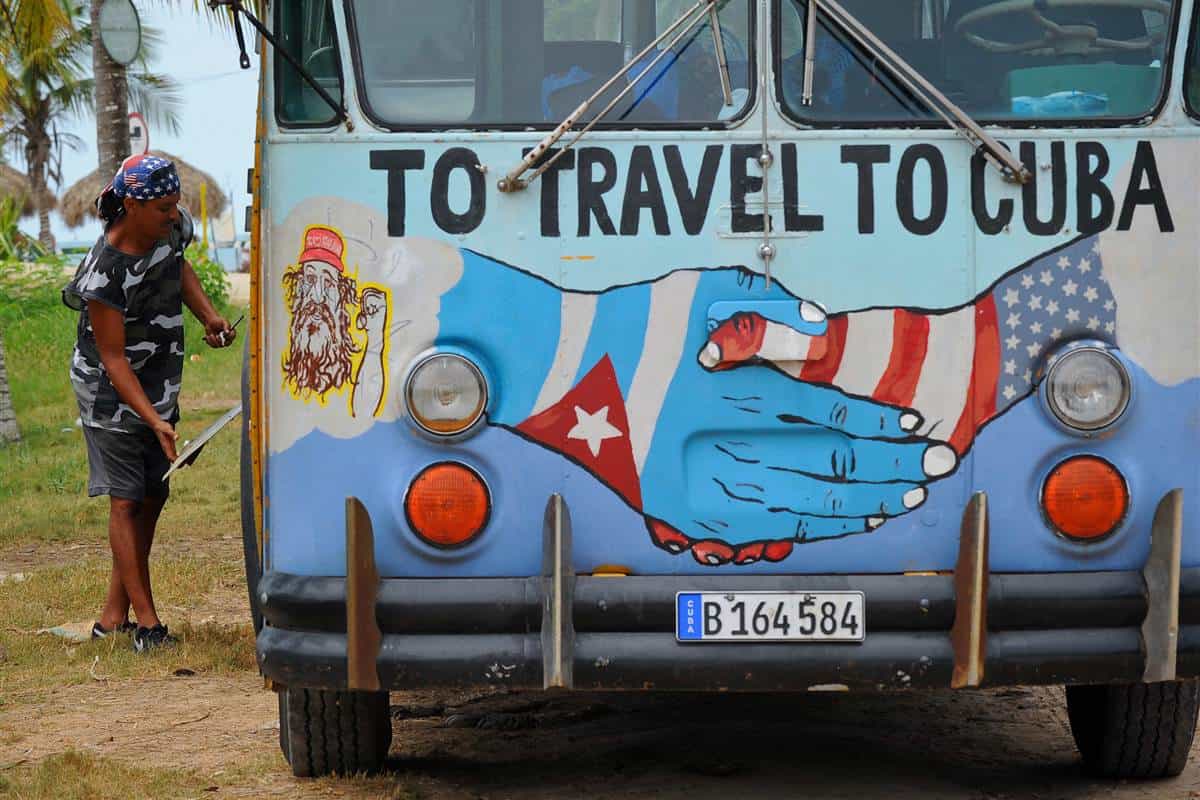
Beyond the Ban: A Guide to Americans Visiting Cuba in 2024.

Sand Fleas and Mosquitoes in Cuba: The Survival Guide (2024)
Other stories, how much does a trip to cuba cost a realistic travel budget (2023), generation y: unusual cuban names.
Choose your language

Welcome to Cuba
More than you imagined
Plan your holiday to Cuba
Cuba Up-Close
Six Essential Tips for Your Trip to Cuba 2022
From alternative accommodation to bypassing the restrictive internet in Cuba, check out these six essential tips for your trip to Cuba.
Cuba up-close
When is the best time to visit Cuba?
Planning a visit to Cuba? The island offers sunny skies and activities year-round. Learn more about its seasons, weather, and cultural calendar.
Is it safe to travel to Cuba?
Here are some of the best safety tips to follow as you enjoy your trip, and use public transportation in Cuba.
Greatest Waterfalls in Cuba
Imagine finding yourself in Cuba, surrounded by an exuberant natural environment - where the vivacious green mountains stretch out into a splendid blue sky - while the fresh Caribbean seabreeze brightens your face. And on this tropical voyage, you discover a land of waterfalls on every corner of the island.
El Nicho waterfall, Sierra de Escambray
Photo: Shutterstock
Looking for some cool things to do?
Best spots for fishing around cuba.
Largely untouched and diverse, Cuba is one of the most
LGBTQ+ Nightlife: Six Gay-Friendly Venues to Visit in Havana
Havana's LGBTQ+ scene is livelier than ever! Check out these
Is It Safe to Travel to Cuba?
Planning to travel to Cuba this season? Here are some
Explore the Glittering Caves of Bellamar
Dive into one of Cuba's most dazzling adventures in the
Five of the Most Instagrammable Cafes in Havana
Havana is full of gems to start your morning on
The Cuban Cigar: Everything You’ll need to know
Learn about the curious and mysterious history of the Cuban
Fábrica de Arte Cubano: A Unique Experience for Art Lovers
Havana houses one of Time Magazine’s Best 100 experiences: the
Cuba’s Top Destinations For Your Next Mountain Bike Adventure
Get to know the 5 best spots for mountain biking
Let the crystalline waters of the greatest waterfalls in Cuba
Dance to Your Own Beat at Havana World Music 2022
Havana World Music: Are you ready to break beyond the
Top Four Jazz Clubs in Havana
Cuba’s capital has always enjoyed a lively jazz scene, and has produced legendary musicians. It’s time to visit Havana’s best jazz clubs!
La Zorra Y El Cuervo jazz club, Vedado, Havana
Photo: Alamy
Winter activities and tips!
History & Heritage
Visit the Museo de la Revolución
Wildlife & Nature
Ciénaga de Zapata
Castillo del Morro
Beaches & Islands
Hit the Beach at Tarará
Tarará Beach – Havana’s Best Kept Secret
Tired of typical tourist spots? Get to know Tarará beach,
Castillo del Morro: A Historical Fortress in Havana
Learn about the History of Cuba in the bay of
Ciénaga de Zapata: A Natural Cuban Treasure
Encounter the endemic flora and fauna of Matanzas Cuba, and
Visit the Museo de la Revolución, and Relive the Fight for Cuba
Havana’s Museo de la Revolución offers a thorough look at
Learn about the curious and mysterious history of the Cuban cigar, how a Habano is made, and where you can buy quality tobacco like Cohiba cigars.
A Cuban woman with a cigar, Havana
Check Us out on Instagram
@govisitcuba, subscribe to our newsletter.
Get more travel inspiration, tips and exclusive offers sent straight to your inbox
I would like to get Visit Cuba newsletters in my inbox
Paradise for Your Inbox


30 Things You Must Know Before Travelling To Cuba
By: Author Sunset Travellers
Posted on Last updated: February 1, 2021
Categories Central America , Cuba , Travel , Travel Advice
There are a lot of Cuba travel tips to know of before visiting this unique country for the first time.
Cuba was on our bucket list since we met and started our journey around the world a few years ago.
Although we travelled to many magnificent places, we never made it to Cuba, so this time we have decided that no matter what, we will explore this unique country.
Little did we know what to expect once we landed in Cuba, therefore, we highly recommend to read our guide.
There is a lot of Cuba travel tips for tourists travelling to the country.
We are covering the essential Cuba travel tips every traveller should know before visiting the country.
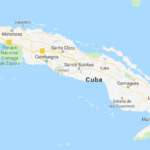
Map of Cuba
Here are our 30 Cuba travel tips for everyone travelling to the island :
1. best time to travel to cuba.
The best time to visit Cuba is from towards the end of the year, starting early December up until April.
With the island hot tropical climate, the summer’s average temperature is 24 degrees, whereas during the winter months of January and February expect less than 15 degrees.
From May to October, you can expect a lot of rain as the island is in a wet season.
The peak tourist season runs from mid-December to mid-March so expect to pay top prices for accommodation, tours and more.
One of the first Cuba travel tips: visit the country during a shoulder season where you still have good weather but lower accommodation prices.
2. Know Cuba visa requirements
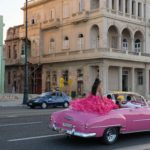
If you are planning to visit Cuba, chances are you need a visa to enter the country.
Only travellers from 18 countries can freely travel to Cuba without any visa. The rest of us will have to purchase a tourist card at the airport before check-in.
For American passport holders, this process is a bit trickier, and you can enter Cuba under specific categories .
3. You must have an outbound flight from Cuba
When travelling to Cuba, you must show an outbound flight. Otherwise, you won’t be able to board the plane.
We were coming to the island from Mexico and had to show our onward flight to Miami at the time of check-in.
There is no way around it, therefore, make sure that you have an onward flight. You can easily book your flight via Skyscanner here.
4. Print out all essential documents needed to enter Cuba
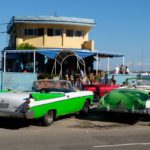
Taxis in Cuba
Other than your visa or tourist card, make sure to print out all crucial documents before travelling to Cuba.
Travel insurance, tour bookings, hotel reservations or any other important papers might become very handy to have.
We haven’t seen any internet cafes in Cuba, therefore having all documents with you might be the best option since wifi is almost nonexistent here.
We managed to travel the island with all info stored in our computers, but many Cuba travel tips sites recommend having everything in print.
5. Have appropriate travel insurance for Cuba
Make sure to purchase a suitable travel insurance coverage before travelling to Cuba.
We can’t stress enough how important it is to have travel insurance when going abroad.
Although we weren’t asked to provide proof of travel insurance at the airport, there is no guarantee that they won’t ask you.
Also, you don’t want to travel to an unknown destination without this kind of backup.
It’s best to be safe and get suitable travel insurance before your travels.
Please do not ignore any of these Cuba travel tips.
6. Book accommodation in Cuba well in advance
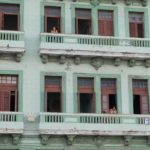
Casa Particular in Cuba
If you are planning to visit Cuba anytime soon, make sure to book your accommodation well in advance.
Many websites do not work in this country; therefore it might be very time-consuming walking from place to place and asking for prices.
7. Airbnb or Booking.com websites and apps don’t work in Cuba
If you just landed in Cuba and planning to find your accommodation through Airbnb or Booking.com , you should know that these apps and websites do not work in Cuba.
The most common accommodation in Cuba is called Casa Particular which are rooms or apartments rented by locals for a daily fee.
Important Cuba travel tips: these type of accommodations are very cost effective and excellent if you are on a budget.
Many owners advertise their Casa Particular vacancy on Airbnb and for $25+ you can support the locals and sleep in a lovely room or apartment.
We rented two bedroom oceanfront apartment for as little as $35 a night.
The only way to book an Airbnb when you are already in Cuba is to go through a turbovpn app (may not be available on apple app store).
If you are planning to use Airbnb for the first time, here’s $54 discount off your first stay. Enjoy!
We also cover five essential tips for booking your first Airbnb here.
8. Decide how much cash you will need in Cuba
Take as much money to Cuba as you possibly can!
We travelled to Cuba from Mexico and withdrawn as much peso’s as we could. The money obviously still didn’t last too long.
We highly recommend that you take Euro or Pounds with you and exchange them once you land.
All American debit and credit cards do not work in Cuba.
We were able to use our Irish Visa and Canadian MasterCard to withdraw money from the ATM’s, even so, it was a nightmare as the ATM’s only gave so much cash at one time and had a mind of its own.
Our Cuba travel tips: do not take US dollars with you as you will be charged additional 10% on top of the exchange fee. It’s just not worth it.
9. Keep in mind that Cuba has two currencies
Here’s the current conversion rate from Euro to CUC and CUP in case you wonder:

Euro to CUC conversion rates

Euro to CUP conversion rates
CUP and CUC are the two currencies used in Cuba.
CUC – Convertible Peso is used mainly by tourists, and you can pay for almost everything with this currency.
CUP – The National Peso is used mainly by locals and to pay for public transportation.
When exchanging our Pesos, we weren’t even able to choose and were given the CUC currency.
10. What you need to know about ATM’s and CADECA’s in Cuba
The easiest way to take money out from your account with your bank card in Cuba is to go to CADECA.
CADECA’s are currency exchange places where you can also take money out with your card. You can find them at most hotels.
We were taking money out of our Irish debit card, and it took few seconds to get the money out.
Our Cuba travel tips: make sure to bring along your passport as otherwise, they won’t allow you to withdraw any money from your account.
Some ATM’s will accept your card, but it might take time to withdraw some cash.
It took us five attempts to finally be able to withdraw some money out of the ATM as it had low withdrawal limit. Eventually, our banks blocked the cards because of too many attempts.
11. Most places in Cuba don’t accept bank cards

Can’t pay for Mojito with a card
Trying to pay for anything with your bank card can be a nightmare.
We booked a few day getaway to Varadero with tourist desk at the Hotel Nacional, and it took an hour to pay for it with a card.
The hotels do not have card machines, so your card gets imprinted on a paper, and the transaction is confirmed via phone call.
Let us tell you that the banks do not answer the phones! It will be much easier if you go to the nearest CADECA and take money out.
12. Inform your bank when you are going to Cuba
Don’t make the mistake of trying to withdraw cash and get declined just because you forgot to tell your bank that you are travelling to Cuba.
Different countries have different rules, and we were usually able to advise the bank via the bank app.
For Cuba however, our banks needed to be called and told the exact dates we would be here.
13. Everything you need to know about wifi in Cuba – Cuba wifi cards – Cuba wifi spots
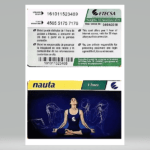
WiFi cards in Cuba
There is no free wifi in Cuba , and that’s a fact.
The only way you can connect to the internet is by purchasing cards called ETECSA.
It is a small scratch card that will allow you to connect to a network at hotels and major hotspots around the big cities.
If you spot a group of people in the park or on the side of a street and looking at their phone screens, it means that there is a wifi hotspot.
Expect to pay anywhere from CUC 1.50 to CUC 5 for an hour of internet.
Our Cuba travel tips: the cards are valid as long as you have minutes on it so log out of internet as soon as you are finished.
Some hotels sell 5-hour cards, but usually, you have to be a hotel guest to purchase one.
Hotel Nacional, for example, sells their cards for CUC 5 per hour, valid only for 24hrs.
The wifi is very slow in Cuba so don’t expect to do any Skype calls or do any work.
14. There is no roaming service available in Cuba
As soon as you land you will notice that your phone has no cell phone service in Cuba and there is no way to get any coverage.
If you need to make an international phone call, it will have to be made from a phone centre, and the service is expensive.
15. Download Google maps before travelling to Cuba
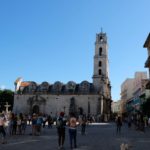
Sightseeing Havana, Cuba
Make sure to download google maps before you board the plane or get offline maps such as maps.me or galileo offline maps which allows you to use your phone’s GPS to show your location.
16. Your favourite US websites won’t load in Cuba
There is literally no USA website that will work in Cuba. Do your research well in advance and definitely before you get to Cuba.
We highly recommend booking accommodation and activities in advance to make your trip pleasant and less stressful.
Tripadvisor is great for arranging accommodation and sightseeing being it in Havana, Trinidad or Vinales.
17. Best way to book your tours in Cuba
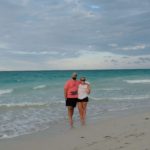
Varadero, Cuba
The easiest way to explore Cuba is to book several tours before travelling to the country; this is usually also the most expensive way.
We arrived in Cuba with having organised nothing but Airbnb for the first week.
You can find local agencies in most of the major cities who can recommend and book a tour for you.
Most of the 3+ star hotels will have a travel desk where you can make a reservation even if you are not staying at that particular hotel.
We booked several tours, accommodations and transfers through different hotels and it is the easiest and fastest way to arrange your trip if you haven’t done so before arrival.
If you are looking for the best deal for the same tour, there is no need to shop around as most places will give you the same set price.
Keep in mind that you will need to have enough cash to pay for the activities/tours as they do not accept cards.
If you are planning to explore Cuba on you own, make sure to read our guide to ‘ 10 best things you should do in Cuba, Havana’ .
18. Know how to get around Cuba
If you are planning to drive around Cuba and explore the entire island, the easiest way to travel between cities in Cuba is by bus.
You can book a bus transfer to your desired destination with one of many tourist desks at the nearest hotels.
We paid $25 for a bus transfer from Hotel Nacional in Havana to Dreams Hotel in Varadero.
Viazul is one of the most known bus companies that will take you to most cities in Cuba if travelling independently.
Our Cuba travel tips: if you intend to travel around Cuba via public bus, make sure to arrive at bus station well before departure as tickets sell out fast and there is no way to book them online.
19. Cost of a taxi from the airport to Havana city in Cuba
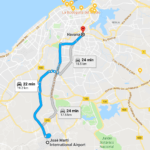
Distance from Havana airport to the city
The distance from Havana Airport to the city centre is less than 20km (about 20 minutes drive), and it can cost on average CUC25-35.
We paid $35 to get from the airport to our Airbnb located next to the Hotel Nacional in a private vintage taxi.
There is also a money exchange place, so you can quickly change your money at Havana airport.
Taxis are also useful if you are looking to explore the city in style. They will usually make you a deal if you wish to hire a vintage taxi for few days to explore Cuba.
It will cost you about CUC 12-15 to get from the centre of Havana to Hotel Nacional in a vintage taxi.
20. It is easy to get around Havana by foot
Havana , like other major cities in Cuba, is walkable and if you are trying to budget your money, you can easily walk everywhere.
Travelling around Cuba is safe, and there is no better way to explore your surroundings and truly embrace the Cuban culture.
It will take you bit longer to get from point A to B, but you will have the opportunity to discover the cities.
21. Do your Cuba souvenir shopping before you get to the airport

Havana Club souvenir shopping
If you are planning to get some souvenir shopping done, make sure to do it beforehand.
Havana airport, for example, is small and there are almost no shops where you could do some last minute shopping.
There is also just one bar/food counter, and the food isn’t by any definition healthy.
We highly suggest getting some snacks beforehand so you can have an alternative option.
Our Cuba travel tips: there is a lot of unique things to buy in Cuba and souvenirs you can only get here. Some of the best gifts from Cuba include Cuban cigars, Cuban rum, Habana 179 perfume and much more.
22. Be prepared to queue everywhere in Cuba
One of the most apparent Cuba travel tips we received:
‘No matter where you go, be ready to queue here.’
Whether you need to take money out of ATM or purchase some goods, nothing happens fast here so you might as well get used to waiting in lines here in Cuba.
23. Is it safe to drink tap water in Cuba?
We don’t recommend drinking tap water in Cuba.
Most Cubans will boil their water before consuming, but it might not be the best option for tourists.
We highly recommend that you stock up on bottled water.
On many occasions when at supermarkets, as soon as the water gets delivered, queues form, and the water disappears fast from the shelves.
Our Cuba travel tips: if you can’t find bottled water at a supermarket, go to the nearest petrol station shop as they usually are well stocked up with water.
24. Supermarkets in Cuba aren’t the same as back home
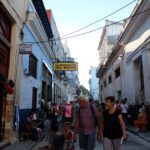
Eating out in Cuba
Buying grocery in Cuba might not be as easy as it seems. We rented an Airbnb in the hope of cooking our food, however, the nearest supermarket barely had any products in it.
You will usually find canned goods, some pasta and if you are lucky some bread.
There are however local street markets selling fruits and vegetables. Ask around, and you are guaranteed to find one near you.
If you want to avoid the stress of cooking your food, there’s a lot of restaurants to choose in Cuba.
25. What should you expect from restaurants in Cuba
There are many Cuban restaurants in Cuba, but due to its trade restrictions, the island lacks a distinctive cuisine.
We found few excellent restaurants, unfortunately, most of them were lacking many dishes on the menu and meals were rather bland.
We will make sure to share our best restaurants in Havana with you in a next blog post.
26. What to do when you get sick in Cuba

Pharmacy in Havana, Cuba
Our Cuba travel tips: if you are planning a trip to Cuba, make sure to stock up on your ‘go to’ medication in case you will need it.
Whether you often get headaches or upset stomach, make sure to have some medication in case you get sick.
I got flu in Cuba during a public holiday, and it was a nightmare to get any medication. The only thing we were able to find was a jar of honey, so my flu lasted about two weeks.
Not a great start to a holiday!
27. Make sure to carry some coins with you
If you need to use a public restroom at a restaurant, bar or anywhere else, you will most likely come across a ‘toilet lady’ sitting outside with a small tray where you put your coin for using the facility.
Higher end hotels don’t make you pay, but we came across many restaurants and bars that will require you to leave some money for the cleaning lady.
28. Don’t fall for the touts
We found that many Cubans will approach us trying to recommend restaurants or give directions.
Although some people are genuinely interested when asking ‘where are you from’, most will take you to their recommended bar or restaurant where they will charge a commission or expect payment from you.
Especially when you are wearing a watch, they will ask you ‘what time it is’ and try to start a conversation with you.
Our Cuba travel tips: avoid wearing a watch in large cities as you are guaranteed to be noticed.
29. Power plugs and voltage in Cuba
Cuba has 110v, and the power plugs look like this:

Cuba power plugs
Many modern hotels will have a dual voltage plug with 220v available to you.
30. One of the things you should not do in Cuba
One of the most important Cuban travel tips we got from other travellers is not to forget to tip in Cuba.
The basic salary in Cuba is very low comparing to the cost of living therefore many Cubans rely on tips they receive from tourists to support their families.
We hope that you enjoyed our 30 Cuba travel tips and learned a few things before travelling to the destination.
Heading t Cuba soon? Make sure to read our ‘ top 10 things to do in Havana, Cuba ‘.
We appreciate if you share our 30 Cuba travel tips with your friends and family by just pinning the below image to your Pinterest board.
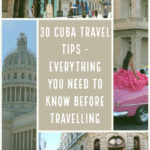
Notify me of follow-up comments by email.
Notify me of new posts by email.
No products in the basket.

21 things you need to know before travelling in Cuba
Updated On 14th January, 2022
Are you going to Cuba and looking for top tips for travelling in Cuba? Then look no further! In this blog post, I’m going to highlight all the best Cuba travel tips and everything you need to know before travelling to Cuba, one of the best places to visit in North America. We’re going to cover everything from what to pack before you go, currency when you arrive, what to expect from the food, and more!
Cuba is a fascinating country that is on many people’s bucket lists. A visit to this nation is guaranteed to feel like a time traveling experience, with countless, colourful old towns to visit, and vintage cars that go back to the 1930s to ride in.
On top of its rich and visible history, Cuba boasts a wide variety of natural beauty, from waterfalls to rainforests, mountains to wetlands and of course, the white sand beaches and turquoise waters typical of any Caribbean location. This, all combined with the endless music, mojitos and salsa dancing spilling onto the streets, easily makes this country one of my favourite destinations in the world.
However, travelling in Cuba tends to be slightly different to other places, so if you’re planning a trip to this beautiful Caribbean island, here are my Cuba travel tips including everything you need to know before you go…
- St Lucia: the Body Holiday
- The best things to do in Costa Rica
- The best outdoor adventures in Argentina
- 15 best USA National parks to visit
- A 2-day itinerary for Zion National Park
- Cenote diving on the Yucatan Peninsula in Mexico
- The best things to do in Argentina
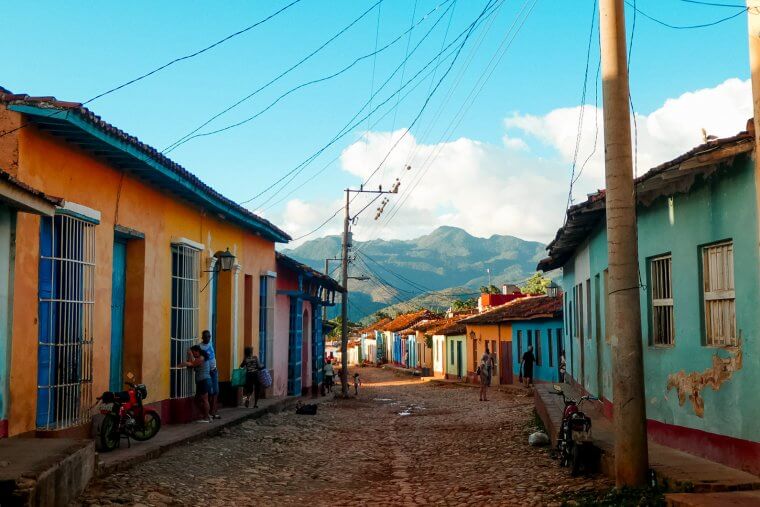
Cuba travel tips: 21 things you need to know...
1. visit cuba in shoulder season for the best balance of weather and prices.
If you’re wondering when to visit Cuba or when the best time to visit Cuba is, then I would say shoulder season, in March / April.
Cuba has a hot, sunny, tropical climate with dry and wet seasons: the dry season runs from November to April, the wet season from May to September. However, even during the wet season, you can still expect hot temperatures – people who travel at this time say the rain doesn’t last long!
Peak times to travel to Cuba are mid-December to mid-March, and all of July and August.
March & April are the best months to visit Cuba if you’re looking for a good balance of nice weather and reasonable prices without too many crowds!
2. Check visa requirements for Cuba
Anyone who does not have Cuban residence is required to have a visa to travel in Cuba. You can apply for the visa through the Cuban embassy, through your airline, or through several websites. Find out more details through your airline or your local government website.
Note that travel from the US to Cuba for solely touristic purposes is banned, and you need to travel for one of these 12 reasons .
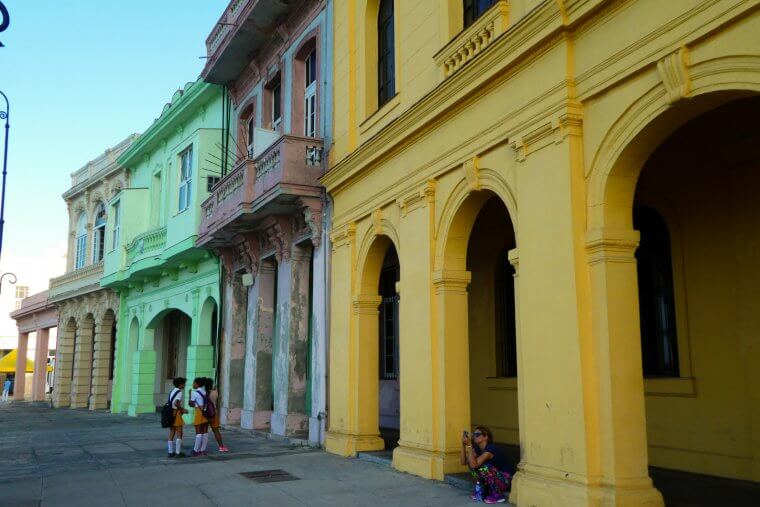
3. Bring print outs of all required documentation
With internet roaming charges being high, another of our Cuba travel tips is bringing print outs of all documentation you will need to show at the airport: boarding passes, vaccination certificates, visas, accommodation bookings, health insurance, and an onward flight booking.
Keep these documents safe in case you need them during your stay and you can’t get to them online!
4. Cuba is a communist state; be mindful of talking politics
Cuba is a communist state, and very different to what we are used to in the west. Seeing this can be fascinatiing, but you need to be mindful.
There is no advertising or branding, and the internet is censored. Even coca-cola is banned! Food and other items are bought using ration tokens and due to import sanctions, there isn’t a whole lot of it. You may also notice the little maintenance that has taken place in the country, with some buildings even left crumbling into the street.
You’ll likely be curious about the history and politics of the state, so maximise your experience by attending museums, but be aware that all the information put out is state-controlled. It is also important to remember that while politics may be interesting for you, many Cubans are not comfortable speaking openly about the government and these topics should be dealt with sensitivity.
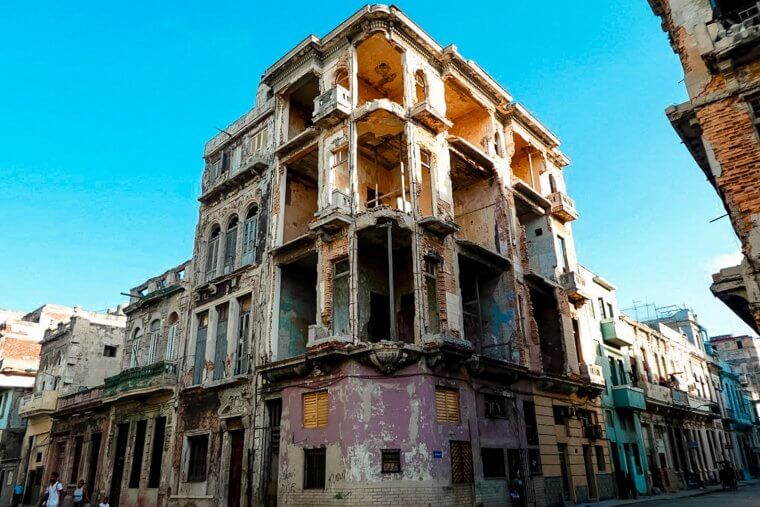
5. Pack everything you need: rationing and import sanctions can mean supplies are limited
Due to the import sanctions, stores in Cuba are different to what you’re probably used to. They might have very little stock, especially in terms of anything fresh, but are also extremely expensive where you might not expect it. To avoid paying upwards of £10 for one pack of toothpaste and some shampoo, one top tip for travelling in Cuba is to pack all the toiletries and goods you may need, including medication, before coming to Cuba.
Tap water is not clean enough to drink in most places and bottled water is wasteful and expensive, so bring a water steriliser if you have that too!
You might also want to pack some little toys or candy to ive to the local children as a gesture, as you may not always have the coins to give to those in need. You won’t have much luck finding these items in a store in Cuba, so pack some before you head off on your travels.
6. Don't bring a drone to Cuba
Drones are banned in Cuba, so to avoid having it taken away at customs and paying a holding fee to collect it on your way out, don’t bring yours!
7. Book your accommodation in advance
At least for the first few nights…! With the internet being expensive and not always easy to access, and there sometimes being problems with apps like Airbnb, Cuba is a destination where I’d suggest booking accommodation in advance. You usually need to show an accommodation booking at the airport customs.
Having said that, owners of casa particulares often know someone else in another town, so they can sort you out with a local recommendation if you dare to be more spontaneous!
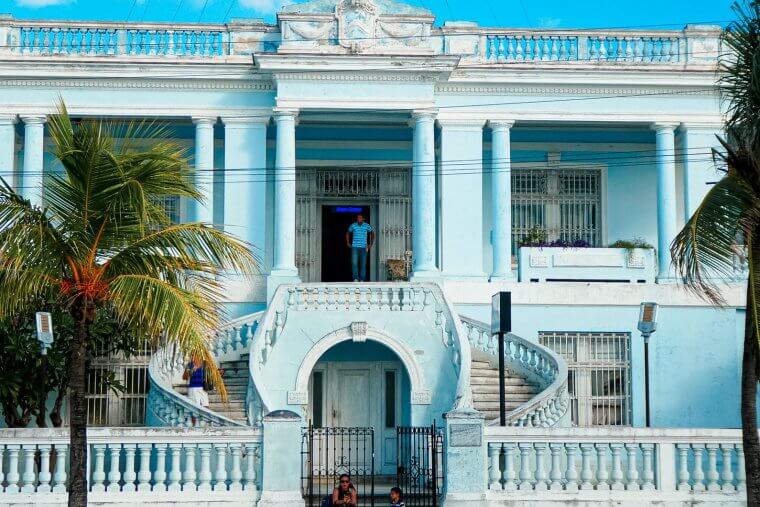
8. Live with locals in casa particulares
Despite some things separating tourists and local Cuban people, there are many ways to share experiences and get to know the country more authentically. While you’ll likely be more than welcomed to play dominoes with them, try your salsa moves with them or practice your Spanish over a mojito, the best experiences I had came from sitting around a dinner table together.
Under the system of casa particulares, host families are allowed to open up spare rooms in their homes as accommodation for tourists – like a B&B, but usually in the owner’s home. You are likely to come out of your stay with a new friendship and local knowledge, as Cubans are such welcoming, kind and friendly people. This was an absolute highlight of my trip and one of the best things to do in Cuba – I even remember shedding a few tears as I parted from my Havana host family because they were that amazing!
You can book casa particulares on booking.com , Airbnb , hostelworld , or turn up and see what you find! I’d recommend booking in advance where you can, at least for your first stay – you usually need to show an accommodation booking at the airport customs. If you use Airbnb to book a casa particular while you are in Cuba, use the browser because the app doesn’t work well.
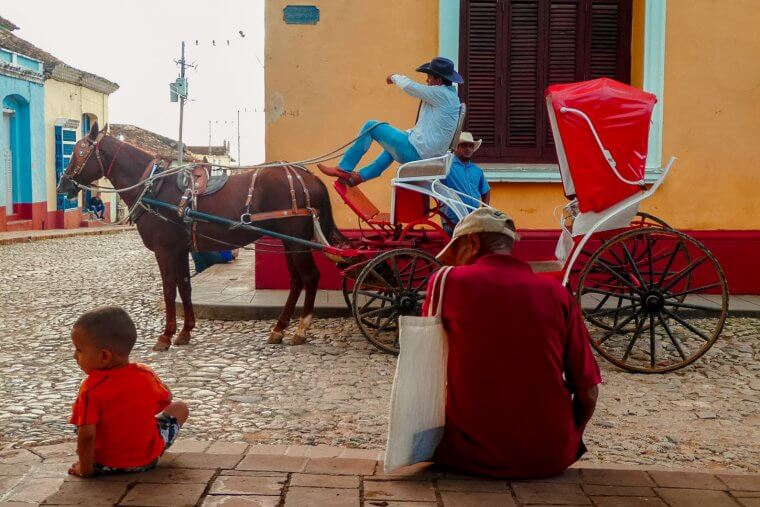
9. Plugs in Cuba are 110v.
Many hotels and other accommodation providers will have a plug converter, but one of my Cuba travel tips is to pack one just in case!
10. Currency in Cuba is the Cuban Peso (CUP) - bring all the cash you want to exchange
Cuba recently underwent an economic reform, so there is now only one currency in Cuba: the Cuban Peso (CUP). There are a few shops that will also only sell in “hard currency” (euros, GBP, dollars) or with credit cards in these currencies.
You cannot buy CUP outside of Cuba; the best way to get money is to bring cash with you in euros, GBP or Canadian dollars, and exchange at the airport. You’ll need to look for the CADECA office (you will also find these offices in larg towns like Havana).
While paying by bank card and using cash machines is becoming more common, ATMs can be far and few between and usually have significant surcharges so bring as much cash as you can (maybe bring a money belt or stash some in a suitcase pocket).
More Cuba travel tips in terms of money include…
- American owned cards are not accepted so bring a Visa or other card.
- Euros, GBP and Canadian dollars will get a better exchange rate than US dollars (there’s an extra 10% fee on US dollars).
- Don’t expect the same low prices as other neighbouring Central American and Caribbean countries – Cuba can be surprisingly expensive for this region.
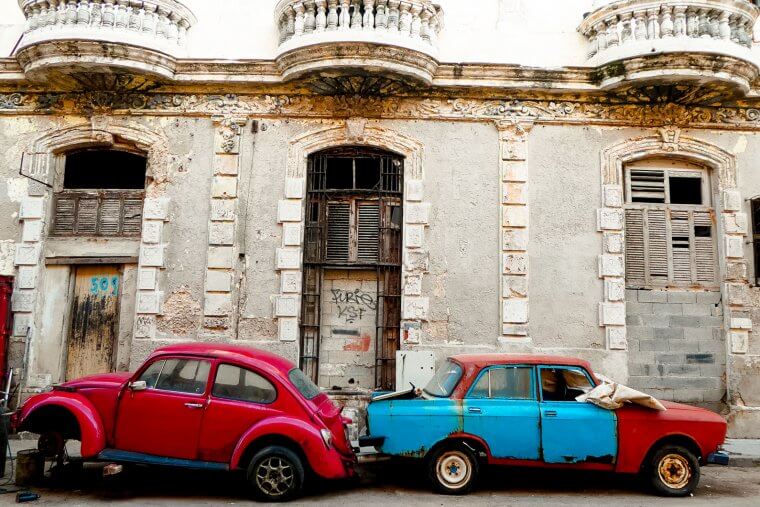
11. Internet access can be limited in Cuba
Internet is more accessible than it used to be, but still somewhat restricted in Cuba. Whilst it is not totally unavailable, you certainly won’t be able to access it at all times or without a steep price, so be prepared to spend some time off the socials and away from the work emails. Another of our top tips for travelling in Cuba is to check with your accommodation as to whether there will be wifi; it’s becoming more common, but don’t take it for granted that it will be there.
If you find yourself in a park and everyone is looking at their phone, you’ve likely hit a public wifi hotspot. Public internet hotspots in Cuba are mostly in parks or other gathering spots. This is the cheapest way to get access to the internet in Cuba (SIM cards and data roaming are expensive). You can see a complete list of all the public wifi spots in Cuba on the ETECSA website .
To access wifi at public hotspots, hotel bars or gathering places, you’ll need an internet card to connect to the internet. These Cuba internet cards, called NAUTA cards, can be purchased at ETECSA stores. You can also purchase them from people near public hotspots, but they are often more expensive. They have a password on the back which you enter on your internet browser, and will give you a certain time period in which to use the internet on your deveice’s browsers/apps.
Less frequent internet access also means less researching on the ground, or if you are like me, less scouring at reviews on Google Maps while you are strolling through a city. A travel guide, a printed/downloaded map and some research before you land will definitely stand you in great stead when visiting Cuba. I urge you to do all three of these things because as useful as the travel guides can be, their recommendations see price inflations over time and you will be totally lost if you misplace the one book you have to guide you around the country!
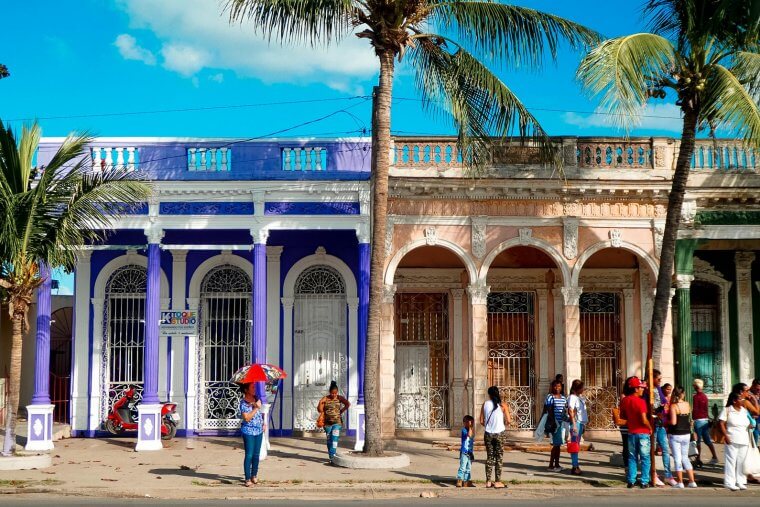
12. Cuba is an extremely safe country
Cuba is an extremely safe country. Not only are crime rates very low, but in my experience, Cubans were some of the kindest people I’ve ever met and there is a sense that people are more prepared to look out for you, than ever hurt or harm you.
On top of that, you can also feel extremely safe in terms of your health. With the health insurance that you purchase before travel you’re in safe hands with Cuban doctors if you get sick. (Note: bring over-the-counter medication with you for ease).
The only experience that took me by surprise at first, was the (quite relentless) catcalling. Yet, after some research, including listening to Chen Lizra’s TedX talk on the culture of seduction and flattery in Cuba, I came to realise that this country of Salsa and Rumba, has a different attitude towards catcalling.
In a place where there is no advertising and images of supermodels on every other building or product, beauty is recognised and appreciated in everybody. When I noticed how being called ‘linda’ and ‘preciosa’ was occurring to women of all ages, shapes and sizes, I began to recognise it for it’s more innocent meaning, which is flattery or ‘piropos bonitos’.
Obviously, this is a very different culture to what many are used to. It’s not to say you must agree with it, but simply to highlight the general harmlessness of catcalling in Cuba. I can confidently say that despite all the attention, I never felt threatened or in any danger in these situations, unlike how I feel about catcalling elsewhere in the world, where it can be more rude, sexually threatening and certainly have more malicious intent.
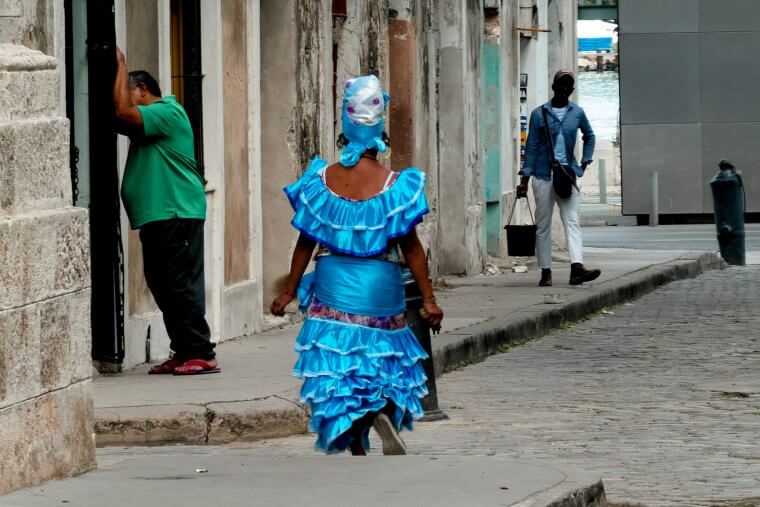
13. Travelling around Cuba by bus is easiest
Travelling in Cuba is really easy by public trasnport; the tourist buses are run by a company called Viazel. The roads in Cuba are good, the bus fares are reasonable, and the drivers are sensible.
A top tip for travelling in Cuba by bus is to bring some layers with you – they often blast the air con and it can get chilly!
14. Use the Cuba-Taxis in Havana
These nifty, little cabs are the Cuban’s take on the tuktuk. They are the most bizarre, but worthwhile mode of transport to take you through Havana, as they whiz through the crowded streets with unrivalled navigation and speed. Not only will they fulfill your thrill-seeking needs, but they cost half as much as the vintage taxi! Definitely a money-saving Cuba travel tip you need to know!
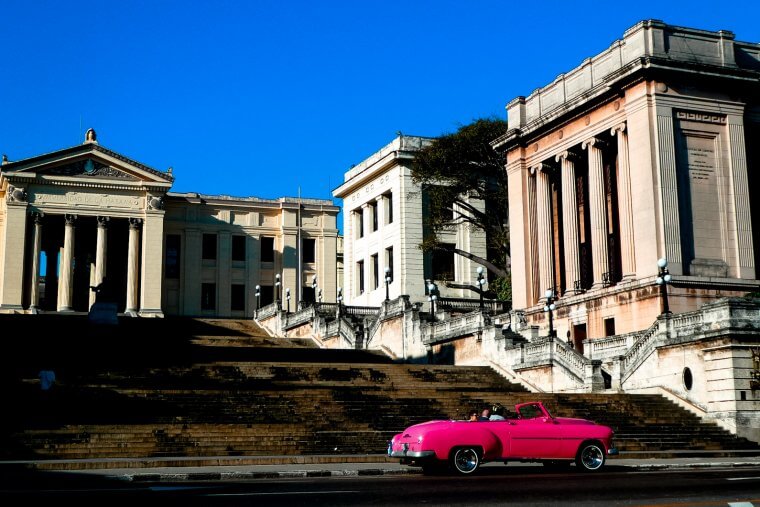
15. Tourists and locals have different experiences
You may notice a difference in where and what tourists and locals can go and do. Since the monthly Cuban salaries are around $25 a month, a $10 meal in a restaurant won’t be bought by many locals. In the same vein, transport and certain areas can often be separated so don’t be shocked if you are rejected for a local bus or area for being a tourist; it is just the way things function in Cuba. In part, this can make travelling feel less free, especially as travelling ‘off the beaten path’ can be more difficult and expensive.
However, as long as you avoid all-inclusive resort destinations such as Varadero you are bound to have an authentic Cuban experience.
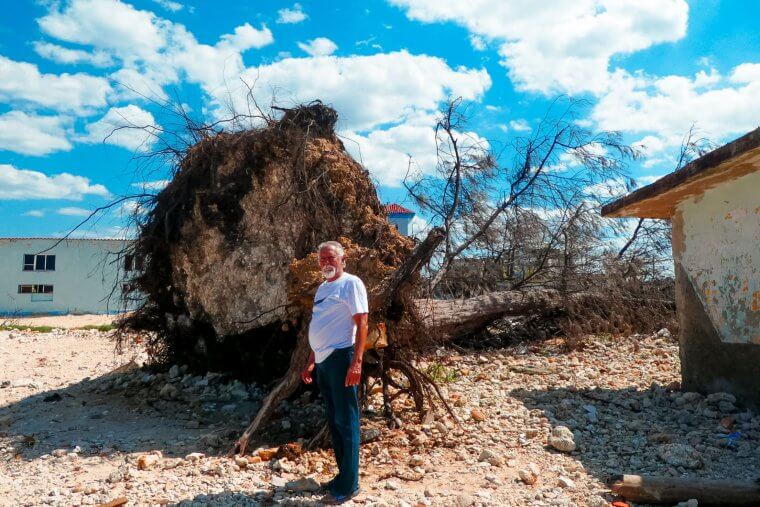
16. The food and coffee are different to what you might expect... and don't drink tap water in Cuba.
Don’t go to Cuba expecting the type of street food you’d get in Mexico, regardless of how close the two are. Due to import sanctions and rationing, food is quite limited and often pretty simple – get used to rice and beans!
Also, coffee always seems to be on the weak side – ask for a double shot or extra strong if you rely on your coffee like I do.
Remember that you cannot drink the tap water in Cuba, so either drink bottled water (which can be expensive and hard to find – check petrol station shops if the local supermarket doesn’t have any) or, to save on plastic, one of our Cuba travel tips is to bring a water steriliser with you.
You might be able to cook in your casa particular but it’s more likely that the family will offer to cook for you. In my experience, this was mainly a breakfast service which was a great way of trying local, homemade cuisine, plus the portions were always extremely generous and fuelled us well for our long days out in Cuba.
Having said that the food is plain in many places, more restaurants are opening up and we did eat some great food at the following places:
- Lamparilla 361, Havana – amazing tacos.
- Cafe Real, Trinidad – great food and live music.
- Cafe Arcángel, Havana – cutest interior!
- Lo de Monik, Havana – best Cuban sandwiches.
- Cafe Laurent, Havana – great fish.
- Los Toneles, Holguin – Family run, lovely atmosphere.
17. Don't forget to tip
Many professions in Cuba such as waiters, taxi drivers, tour guides and cleaners rely on tips to support their income. One of our Cuba travel tips is to always carry some coins with you to tip local staff, e.g. waiters in restaurants, taxi drivers (the ones you have a meter – if they don’t they are private drivers, and you should negotiate the rate before you leave), and toilet attendants.
Just bear the exchange rate in mind before you tip – wages for these kind of jobs are often around 20-30 USD a month, so 1-3 USD tips are very generous without ruining your budget.
18. Bring mosquito repellent for the sandflies at the beaches
You might not think to bring mozzie repellent for the beach typically, but this is one of our top tips for travelling in Cuba. You’ll find sandflies at the beach and protecting yourself against them will stop them ruining a relaxing day in the sun!
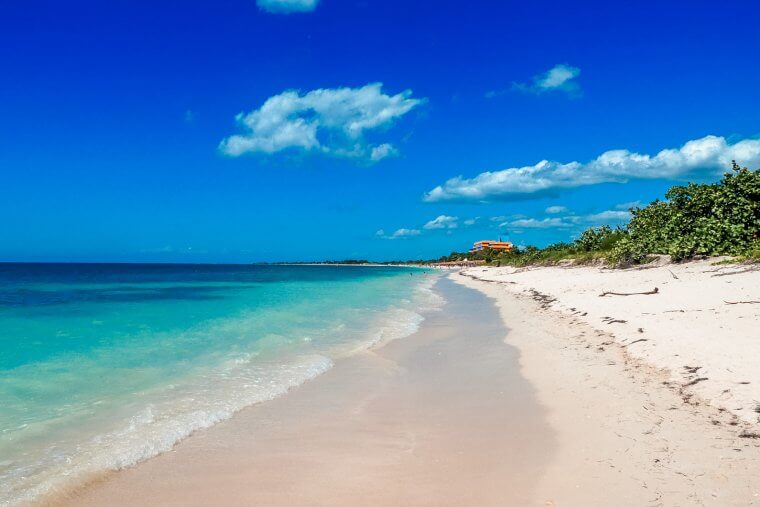
19. Go to El Nicho Waterfalls with a local tour guide
The incredible Cascate El Nicho is not the easiest and cheapest spot to get to in Cuba, but make it happen if you can, it’s worth it as it’s one of the best things to do in Cuba. I found the best option was to go with a group and a guide, which included the transport, food and access to the waterfalls for the whole day. There are several falls in this lush forest, and the guides are great at explaining all the flora and fauna around you. There are plenty of swimming and rock-jumping to enjoy in the emerald waters of el Nicho, so it’s the perfect addition for a bit of adventure in your Cuban itinerary.
20. Bring your dancing shoes!
Cuba is home to Salsa – one of the most beautiful, sexy and exciting dances in the world, and you can tell this nation is its origin… On practically every street corner of Havana there will be some music playing and people dancing and singing. So bringing your dancing shoes / outfits or confidence – whatever is necessary, and start twisting those hips! My favourite places to do this were:
- Disco Ayala el Cuevo, Trinidad – a nightclub inside a cave!!
- Bar restaurant 1838
- Club de la music, Trinidad
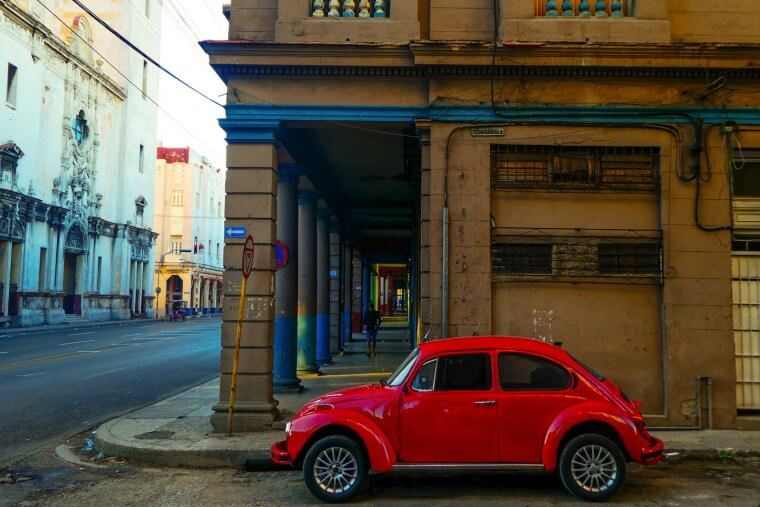
21. Brush up on your Spanish before you go
Very few Cubans speak more than basic English, if at all, and Spanish is a relatively straightforward language, so start practising your Spanish or bring a little Spanish dictionary – it’ll certainly make life easier! Learning Spanish is one of our top tips for travelling in Cuba that can also come in handy all over the world, as Spanish is an official language in 21 countries!
One of our favourite apps for learning languages on the go is Duolingo. Check out other useful travel apps here!
What are your top tips for travelling in Cuba?
Have you been to Cuba before ? Any Cuba travel tips you’d add?

Hi, my name is Natty! As a third culture kid – raised by parents of French, American, Chinese and South African descent, trapsing the world and acting as a global citizen has always felt natural to me. Despite being only 21 years old, and not yet finished with my Economics degree at the University of Manchester, I have managed to make travelling happen whenever and wherever possible.
Did you find this post helpful? I’d love you to share it for me.
Pin and save this blog post for later…
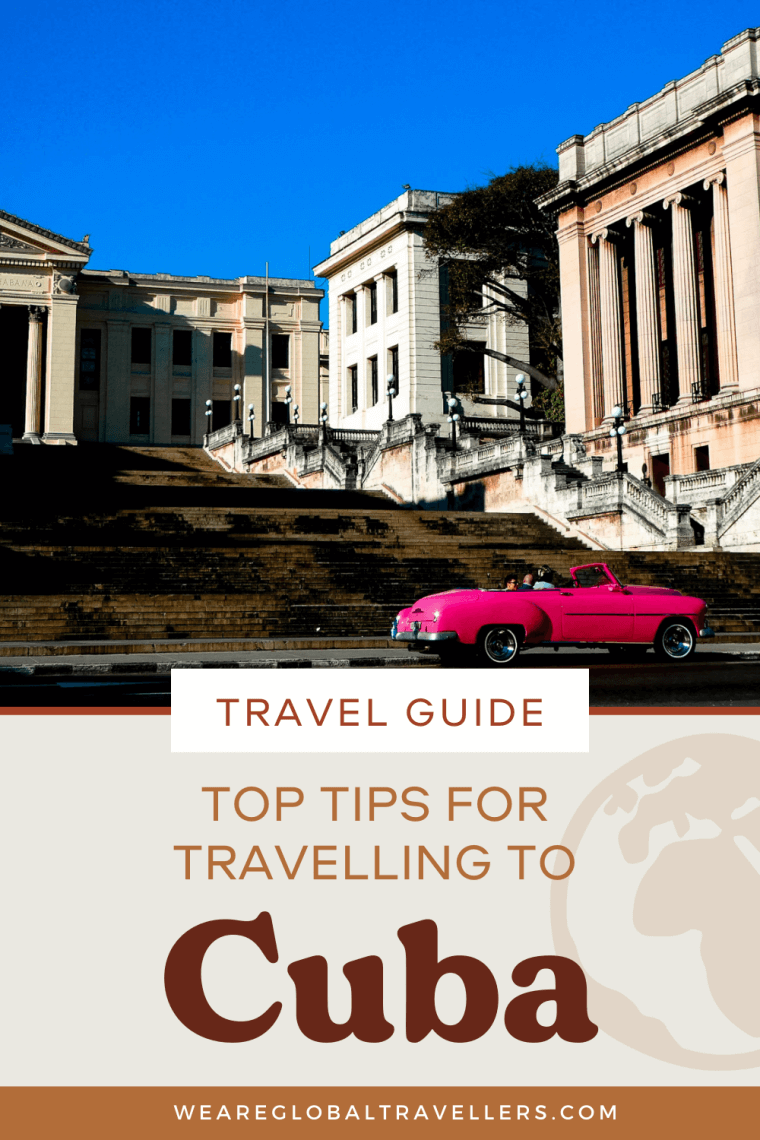
IT’S LOVELY TO MEET YOU
I’M MOLLIE AND I STARTED THIS BLOG BACK IN 2013 WHEN I HEADED OUT ON MY FIRST BACKPACKING ADVENTURE.
I’D LOVE TO SHARE THE JOURNEY WITH YOU, WE’VE GROWN A LOT SINCE THEN!
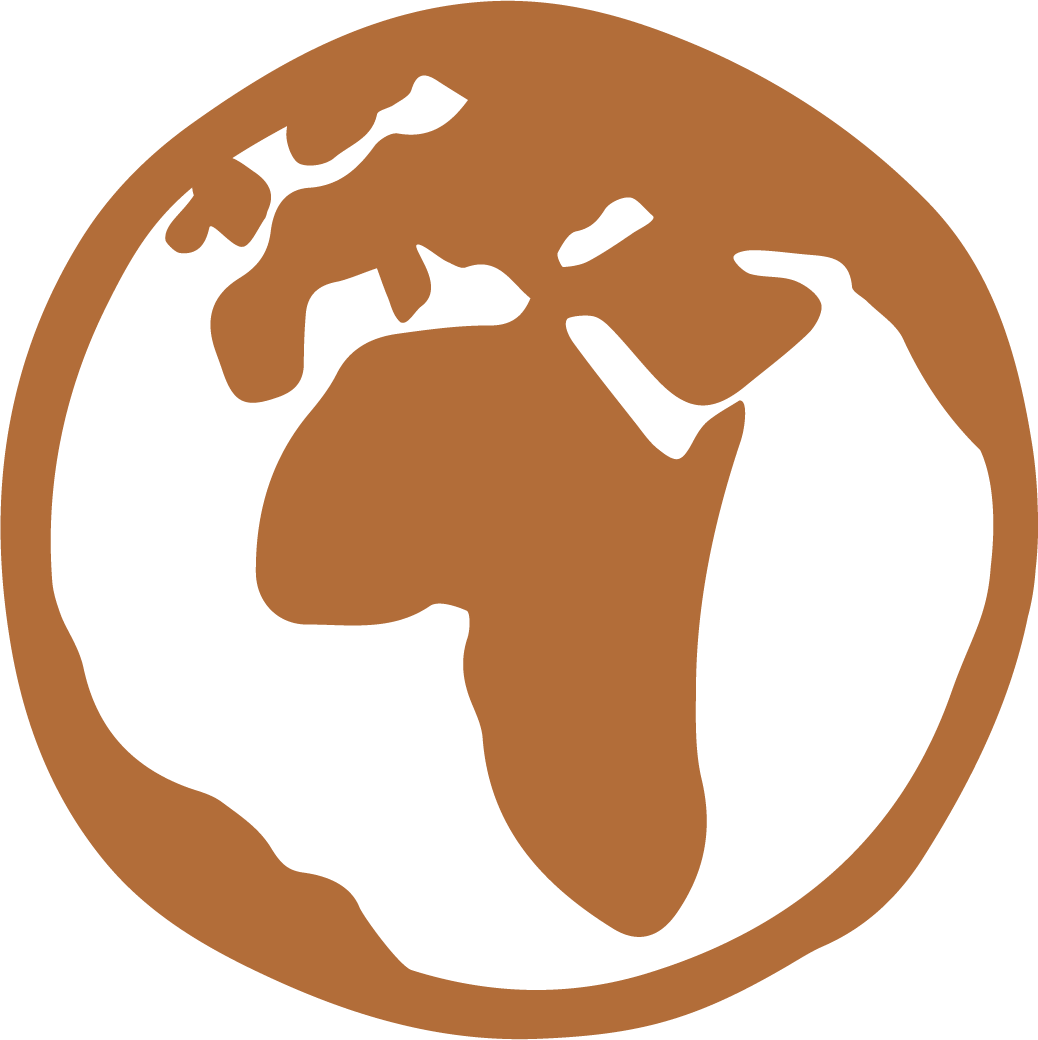
Shop the google map legends
Search by adventure type, active travel, backpacking, budget travel, love and relationships, once in a lifetime, packing tips, solo travel, weekend getaways, where's mollie newsletter, travel shop, search by destination, other posts that you may like....

20 quotes about self love to inspire your healing
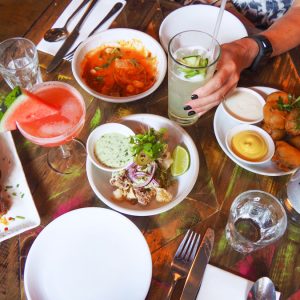
Señor Ceviche, Kingly Court Soho

My Valentine’s Day in pictures ♡
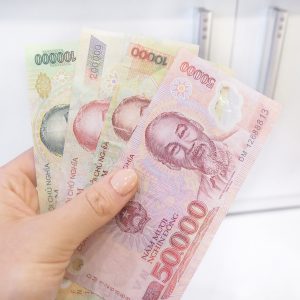
Top 10 Tips on How To Save Money For Travel
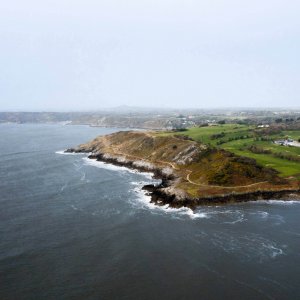
The best things to do in Swansea Bay, Wales
My birthday meal | the thai terrace, guildford.

Sometimes you need to just stop… and breathe.

The ultimate packing and shopping list for Burning Man, Nevada
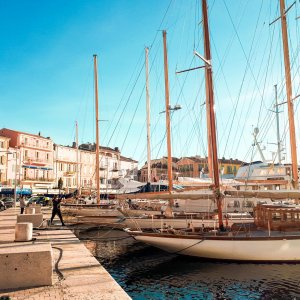
Living & working on a sailing boat: the pros and cons
Privacy overview.

Cuba Travel Guide
Your ultimate cuba travel guide, with tips, things to do, and best things to see in cuba. great for first-time and returning travelers..
Located on the largest island of the Caribbean, Cuba is a very popular tourist destination and for good reason.
Cuba is home to beautiful white-sand beaches, impressive rainforests and waterfalls, vibrant culture, and lively cities .
Due to various trade restrictions over the years, Cuba has many described by many as like walking into a time capsule and is now a unique blend of the past and present, where vintage cars roam around colorful historic buildings and towns.
The birthplace of salsa music, Cuba is also full of rhythm. Add in its sub-tropical climate, and it is a great place to vacation.
This Cuba travel guide will help you plan your next vacation.
Popular Guides
- Things to do in Havana
- Cuba Photos
Our Highlight
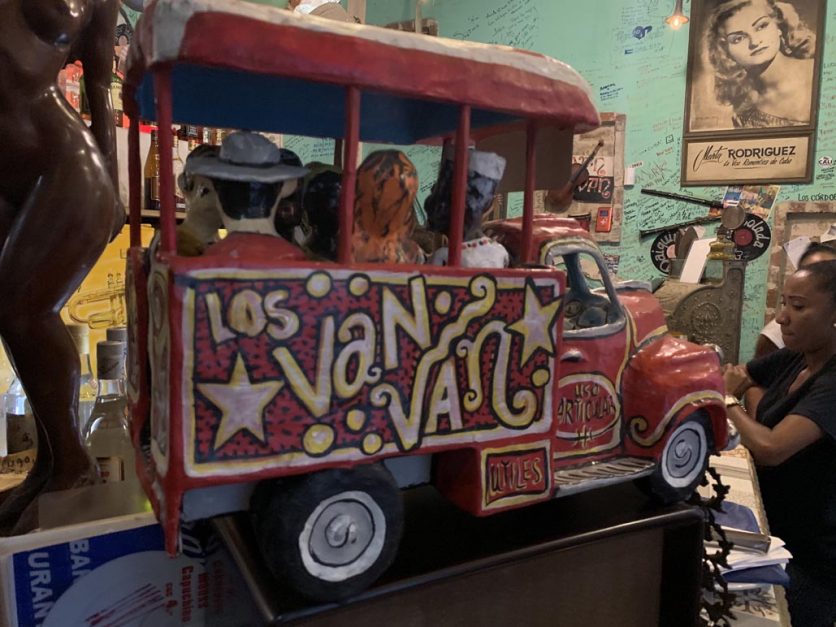
Table of contents
Table of Contents
Fast Facts about Havana
- Power voltage is 110V-220V at 60 Hz. Type A, B, C, and L.
- Cuba’s two currencies are the Cuban Peso and the Cuban Convertible Peso, mainly used for tourists.
- 1 Cuban Convertible Peso is equal to 1 USD.
- The best way to get around Cuba is by bus or taxi. If taking a taxi, make sure the taxi is licensed before riding.
- You need a tourist card to enter Cuba, as well as a passport that is valid for two months after your trip ends. The tourist card allows you to stay in Cuba for up to 30 days.
- The most popular cellular networks in Cuba are Cubacel and Digicel and both offer SIM cards. It should be noted the SIM cards can only be used on unlocked GMS phones. To rent a SIM card, you need a passport and your IMEI (phone ID) number.
- Cuba has a sales tax rate of 2% on wholesale sales and a 10% rate on both retail sales and services.
- SIM Cards : Cuba has very limited Internet and the best bet for visiting Cuba is to unplug, relax and if you have to, use your hotel’s limited WiFi for emergencies.
- It is advisable to download offline maps and any apps offline that you use to travel.
Things to See and Do in Cuba
- Hike Through Sierra Maestra: Cuba’s largest mountain range and the start point of the Cuban Revolution. Take a tour to learn more about Cuba’s history and enjoy a beautiful hike and great mountain views.
- Varadero Beach: Visit this pristine and popular beach in Sol Palmeras. Walk through the sand, swim in the clear waters, get to know other tourists or locals, or simply relax and take in the beautiful views.
- Old Havana: Old Havana is the city center of Havana is considered a crucial part of any trip to Cuba. Stroll through one-of-a-kind historic streets and buildings to see the history of Cuba.
- Tropicana Club: Head to the famous Tropicana Club for some great nightlife entertainment. Get dinner and enjoy the thrilling cabaret show that’s been running since the 1930s, featuring lively song and dance numbers.
Cuba Travel Guides
- 36 Fantastic Things to do in Havana, Cuba
Accommodation
Budget: Cuba offers family-run bed and breakfasts (or casas particulares) for around 15 to 25 pesos per night.
Mid-Range: For mid-range hotels, expect to pay roughly 70-130 pesos per night.
High-End: Upscale hotels will cost about 150-250 pesos per night.
Check out our favorite booking platforms Booking.com , Tripadvisor and VRBO for the best deals on accommodation.
If you’re on a budget, you can find options for pizza or spaghetti at around 3-4 pesos each.
Coffee lovers can find delicious cups of coffee for around 0.10 pesos. Restaurants are a good way to learn more about Cuban cuisine.
Expect to pay around 10-15 pesos for a meal at a restaurant.
The Best Ways to Get Around Cuba
Getting to cuba:.
Getting to Cuba: While there are 10 international airports in Cuba, the Aeropuerto Internacional José Martí in Havana is the main one, with the Gualberto Gómez International Airport in Varadero being a close second.
Flights: You can check for the best flights to Cuba on Skyscanner .

Transportation:
Transportation: Look for the Viazul buses, which are made especially for tourists and feature air-conditioning. Great for long distances, you can travel from Trinidad to Havana in six hours for just 25 pesos.
You will want to arrive at the station in advance to get a spot.
Trains : The train system in Cuba runs the length of the island and is a good way to meet the locals.
Go from Havana to Santa Clara for just 20 pesos, or from Santa Clara to Santiago de Cuba for 50 pesos. Be advised that the trains only run every few days, so planning ahead is key.
Taxis: Taxis are an alternative way to get around Cuba.
Fares start at 1 peso as a flat rate and increase by 1 peso for each kilometer traveled.
To travel from Old Havana to Miramar, for example, costs 8 to 12 pesos.
Car Rental: It is possible to rent a car in Cuba, but it is expensive and can be convoluted. Take care when you do. Check rates and availability here.
When to go To Cuba
Between November and April is the most popular time to go to Cuba, as temperatures range from 78 to 85 degrees Fahrenheit and skies tend to be blue.
You can find higher temperatures (up to 90 degrees) and lower hotel rates in August but note that hurricane season is between August through October.
Where to Stay in Cuba
Iberostar Grand Packard – Located on the Malecon and walking distance to Old Havana, this is the premier place to stay in Cuba.
Hostal Las Palmas :One of the most highly rated bed and breakfasts in Trinidad. Explore Trinidad and the Playa Ancon beach, which are both close by.
Suite Florencia : Built-in 1940, this colonial house turned hotel in Santa Clara is right in the middle of everything. Descend the white marble staircase into this romantic hotel.
Enjoy beautiful views of Santa Clara from your room, or roam about Santa Clara and visit the nearby restaurants and bars.
What to Pack for Cuba
Cuba has a tropical climate so you can count on it being hot and humid.
- Swimsuit: With Cuba”>
- Sunscreen: Protect your skin from the powerful sun with some sunscreen.
- Cash: As you may not be able to withdraw money from your bank accounts while in Cuba, make sure to bring an appropriate amount of cash based on what you think you’ll spend.
- We didn’t have a problem withdrawing from ATMs in Havana, but it is better to be safe
Cuba Travel Guide: Best Booking Resources
Whenever we travel to we make sure to start with these companies. We have tried a lot of different ones over the years and all of these have consistently proven to be the best when it comes to offering great prices.
We have used every one of these personally and continue to do so.
- Booking.com : This is our go site to when comparing prices for accommodation. It usually has the cheapest prices, especially in Europe and we love their interface. Not to mention you get free cancellation and you are guaranteed the best price.
- Trip Advisor : What we like about Trip Advisor is that we can look at all the reviews and then book our accommodation. TripAdvisor is where we go when we want to compare prices with multiple accommodation providers.
- VRBO : is the main search engine we use when we are looking for a home or apartment rental. It can sometimes be cheaper than hotels and it is the best way to stay in areas that offer a more local feel.
- Hostelworld : With one of the largest databases of hostels in the world, Hostelworld is the go-to site when you are looking for budget accommodation.
- Skyscanner : This is the first place we check for flights. It consistently comes back with the cheapest and best options. It allows us to compare a lot of airlines to get the best price.
- Rome 2 Rio : If you want to see how to get somewhere by plane, train, bus, ferry or car Rome2Rio lays it all out for you as well as related costs.I love how they show it all to you on a Google Map and it works offline.
- Get Your Guide: For all your day trip and city guide needs, we use Get Your Guide. It has the world’s largest collection of things to do with more than 30,000 activities in 7500 destinations.
- World Nomads Insurance: When traveling to Italy you should always have travel insurance. We have found the best bang for your buck is by far World Nomads.
Cuba Travel Guide: Related Articles
To browse all our articles and guides about Cuba Click Here.
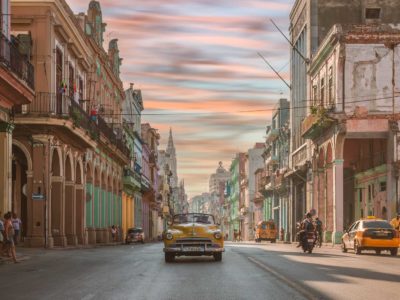
19 Unforgettable Places to Visit In Cuba in 2024
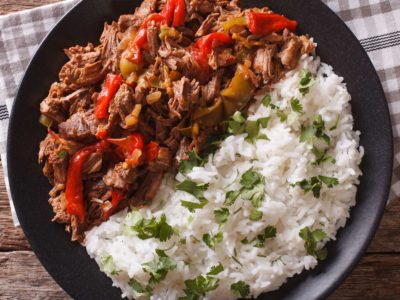
Cuban Food: 23 Cuban Dishes You Can Try at Home
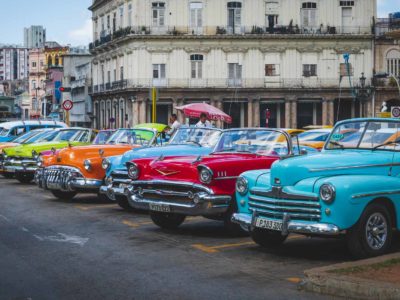
19 Fun Facts About Cuba You Never Knew

Cuba Travel Guide for U.S. Citizens: What to Know Before You Go (Updated 2023)
Feb 3, 2023 | Caribbean , Destinations | 0 comments

Planning this trip to Cuba was the most challenging thing I’ve done to date in the name of travel. Out of all 26 countries, thousands of miles, from 5 years of traveling the world.
Once we landed in Havana, I knew that this place was unlike any I’d visited before.
Had I allowed the logistical challenge of traveling to Cuba as a US citizen deter me from visiting this country, it would have been my greatest mistake.
This Cuba travel guide for US citizens is up to date as of early 2023, based on my experience traveling to Cuba in December 2022.
In this post, I will cover Cuba travel FAQ and share how to visit Cuba legally as a US citizen or from a US airport.
Before you read, please note that there are sanctions from the U.S. government that restrict travel to Cuba.
It is the responsibility of each visitor to follow all laws and regulations, at home and abroad.
This website has a limitation of liability policy that applies to all posts, which you can read here .
This post contains affiliate links. See more in the disclaimer .
Can Americans Travel to Cuba?
Yes. And you can even do so independently.
The key is to visit legally, within the confines of OFAC (Office of Foreign Asset Control) regulations due to the embargo and sanctions.
IMPORTANT: These regulations also apply to non-US citizens that are departing from a US airport.

How to Travel to Cuba Legally
There are 12 categories of legal travel to Cuba under OFAC:
- Family visits
- Official business of the U.S. government, foreign governments, and certain intergovernmental organizations
- Journalistic activity
- Professional research and professional meetings
- Educational activities
- Religious activities
- Athletic competitions by amateur or semi-professional athletes or athletic teams
- Support for the Cuban People
- Humanitarian projects
- Activities of private foundations or research or educational institutes
- Exportation, importation, or transmission of information or information materials
- Certain authorized export transactions
Source: U.S. Department of the Treasury
The most common is Support for the Cuban People, which requires the following:
§ 515.574 Support for the Cuban People. (a) General license. The travel-related transactions set forth in § 515.560(c) and other transactions that are intended to provide support for the Cuban people are authorized, provided that: (1) The activities are of: (i) Recognized human rights organizations; (ii) Independent organizations designed to promote a rapid, peaceful transition to democracy; or (iii) Individuals and non-governmental organizations that promote independent activity intended to strengthen civil society in Cuba; and (2) Each traveler engages in a full-time schedule of activities that: (i) Enhance contact with the Cuban people, support civil society in Cuba, or promote the Cuban people’s independence from Cuban authorities; and (ii) Result in meaningful interaction with individuals in Cuba. (3) The traveler’s schedule of activities does not include free time or recreation in excess of that consistent with a full-time schedule. Source: Code of Federal Regulations
It will not be a vacation where you go to the beach and prop your feet up, buy things wherever you want, and stay wherever you want.
You must have a full-time schedule of activities that result in meaningful engagement with Cubans.
For us, that looked like many, many art tours and private gallery visits where we connected with local artists and had countless meaningful, deep conversations.
No topic was off-limits.
Everyone opened up (including us) and shared our passions, life experiences, opinions, and learned about one another. And yes, we talked about politics.
We were on the go, all day, every day.
And we didn’t really spend time with other foreigners. We crossed paths with foreigners a couple times, but everyone else we spoke to and spent time with was Cuban.

Casas particulares and paladares
Aside from your full-time schedule, you should also stay in casas particulares and eat at paladares.
A casa particular is a room in someone’s house. It’s been a normal way to travel in Cuba for years. There’s an infrastructure around it. You can find them on Airbnb.
We highly recommend this casa particular in Havana and this casa particular in Viñales.
Paladares are privately-owned small restaurants. Download A La Mesa for a list of restaurants all over the country. Each listing shows if it’s privately-owned.
The app also works offline, which will make your life much easier in Cuba.
Pro tip: If you’re also a vegetarian, make sure you try Camino al Sol ! It’s an all-vegetarian paladar in Havana.

What you are banned from doing in Cuba
You cannot spend money in OR interact with any of the places on this list from the US Treasury Department.
Many are hotels, so pay attention!
I copied and pasted these into a list to have on my phone, then accessed it offline while in Cuba to ensure there wouldn’t be any issues.
Is Cuba safe to visit?
Absolutely.
As a young woman who visited 25 countries before going to Cuba, I’ve been in a few…sticky situations. Cuba was amazing.
I never worried about being robbed and just felt at ease the entire time I was there. I tend to be a more anxious person, so that’s new for me.
This is my personal experience and I was not in Cuba as a solo female traveler, so yours could be different.
Is Cuba open for travel right now?
As of late 2022, visitors no longer need to show proof of Covid-19 vaccination or testing before entering Cuba. We brought our vaccine cards just in case, but no one asked to see them.
Please refer to this government site for updated information before your visit.
On our way back to the United States, we did have to share contact tracing information with our airlines using a form before we could check in. It was quick and easy.
Although many online sources claim masks are mandatory in certain settings, we did not see any places where masks were required in December 2022.

Accessing Money in Cuba: 2023 Updates
Everything you need to spend in Cuba must be in cash.
Because of the sanctions, your credit and debit cards will not work in Cuba.
If you try to use them, your bank will probably lock your account and it will take a lot of effort to get it unlocked.
In prior years, you would need to convert money to Cuban pesos before using it. Euros were the best to have because CADECA (the government exchange houses) charged a higher fee on USD exchanges.
As of late 2022, everywhere we went accepted U.S. dollars as payment. This was highly unexpected and deviated from every piece of advice I read online before leaving for Cuba.
However, it is still good to have some pesos for a fairer exchange rate. Some menu exchange rates were awful.
When we were in Cuba, we typically got 150 CUP for 1 USD. The CADECA rate was 110.40 CUP for 1 USD.
We exchanged money at our first casa particular and spent USD on activities, private taxis, and one of our casas. We usually spent pesos on art, food, and coffee.
Make sure you get cash in plenty of small bills. Twenties, tens, fives, and ones were useful. Anything larger than that will be annoying to deal with.
If your bank will only give you large bills, go to Publix and ask the customer service to break them when they’re not busy. Works like a charm!

Is it safe to exchange money on the street in Cuba?
You will be offered money exchange on the street wherever you go in Cuba. Just say “No, gracias,” and move on.
As a general rule of thumb, it is not safe or advised to exchange money on the street. This goes for wherever you are in the world.
The main reason it’s unwise to do this is forged currency. If it came from some random person, it may be counterfeit.
A local friend taught us how to know your Cuban pesos are real. Hold the bill up to the sun, and check the watermark.
The watermark will have a number on it, and that number must match the value of the bill.
If it’s a 100-peso bill, the number in the watermark should say 100.
Again, I do not recommend exchanging money in the street. We didn’t on this trip because we were able to get pesos from the front desk of our casa particular.
If you’re ever concerned about any bills you were given as change, use the tip from our friend for some peace of mind.
I also want to make it clear that we were never given counterfeit bills as change while in Cuba, but these things can happen anywhere.
You’re more vulnerable as a foreigner, because you don’t know exactly how the money is supposed to look.

Getting WiFi in Cuba
If a travel guide says there are only one-hour WiFi cards, it is outdated.
Now, you can access WiFi on a one-hour or a five-hour card.
WiFi is now cheaper in Cuba—it was $5 USD per hour; now, it’s $1 USD per hour.
We only needed one 5-hour card per person for the whole week.
Instead of waiting in the ETECSA line, we bought them from our first casa particular .
Overall, our Cuba WiFi experience was much easier than what we expected.
Don’t expect to be online all the time, but WiFi access is not as difficult as prior years.
Pro tip: The two main apps I highly recommend to download BEFORE you leave for Cuba are A La Mesa and Maps.me . Both work well offline and will save you such a headache.
On Maps.me specifically, also download the maps of each city/town you will visit in Cuba. In our case, I downloaded the maps for Havana and Viñales. When you have Internet access, put your casa particular addresses in a Note on your phone, so you copy and paste them into Maps.me whenever you need to. Same goes for any attractions you know you want to see.
If you want (and if your phone is unlocked), you could get a Cuba sim card, which comes with data. I don’t see the point for a one-week trip, but to each their own.
You can reserve those online in advance from Suena and pick them up at the José Martí airport (in Havana). If you go this route, you want the Tourist SIM Card from the top menu.

Can you drink the water in Cuba?
In short, no.
There was bottled water for sale everywhere on our trip in December 2022, but I read online before leaving that you can’t bank on that.
Instead, I bought this LifeStraw to have filtered water and it was the best travel purchase I’ve made. Ever.
Our Viñales casa particular hostess took one look at that bottle and pointed me to her giant drinking water spigot for us to have freely.
She was already familiar with the water situation for foreigners and told me it was smart to bring a reusable filtered bottle.
Highly recommend one of these !

Can you check in online for flights to Cuba?
There are too many documents the airlines must verify before they can issue a boarding pass.
You will also need a paper boarding pass for your Cuban health insurance, often included in your departure airfare.
Do you need to speak Spanish to visit Cuba?
Out of all Spanish-speaking countries I’ve visited, Cuba is the main one you need at least some language skills to visit.
There are people who speak English, especially young people, but it is not the norm.
If you don’t speak Spanish and you’re not traveling with a friend who does, download Google Translate for offline use before you arrive.
It won’t be ideal, but it will work when you need language help.
The best advice I can give is to travel with someone who speaks Spanish fluently. My best friend said many times while we were in Cuba that she would be toast without my language skills.

Can I bring Cuban cigars and rum back into the USA as souvenirs?
The answer used to be yes, as long as you purchased them from a private shop instead of a stated-owned one.
That answer is no longer the case, as of late 2022.
Now, you cannot bring any rum or cigars into the USA from Cuba, no matter how small the amount is or where they were purchased within Cuba.
When you arrive back into the USA, Customs and Border Patrol will ask if you have any rum or cigars. If you do, assume they will be confiscated.
What to Pack for Your Cuba Trip
I pack carry-on only and found Cuba to be one of the easier countries to pack for. The climate in December was perfect, with 80s in the day and 60s-70s at night.
Here is a short packing list of the things you need before going to Cuba:
- Mosquito repellent, because the insects in Cuba will eat you alive (I use these .)
- Comfortable shoes for lots of walking
- Cardigan or light sweatshirt
- Flowy/comfortable clothes (You can see one of the outfits I packed below.)
- One active wear outfit for hiking/horseback or bike riding (if you’re going to Viñales)

I hope this Cuba travel FAQ was helpful for you. I know how stressful it can be to figure out what to do when planning. If you have any questions, comment below and I’ll do what I can to help!
Read more Cuba travel guides:
- Cuba Pre-Departure Checklist
- What to See and Do in Cuba (Havana and Viñales)
- At Dusk in Havana, I Fell in Love
- Havana, the Art Sanctuary
- When It Destroys, It Starts with Us
- The Elephant in the Room: Socialism in Cuba
Save on Pinterest

Share this:
- Click to share on Facebook (Opens in new window)
- Click to share on Twitter (Opens in new window)
- Click to share on Pinterest (Opens in new window)
- Click to share on Reddit (Opens in new window)
Leave a Reply Cancel reply
Hi, I'm Sarah

Welcome to my oasis! I am a writer and budding entrepreneur with a love for caffeine, capital gains, and seeing the world. If I'm not writing, you can find me reading a good book, trying out a new vegan recipe, or adding to my coffee mug collection. My goal in life? To see every country in the world. Come along for the ride!
Get Daily Travel Tips & Deals!
By proceeding, you agree to our Privacy Policy and Terms of Use .
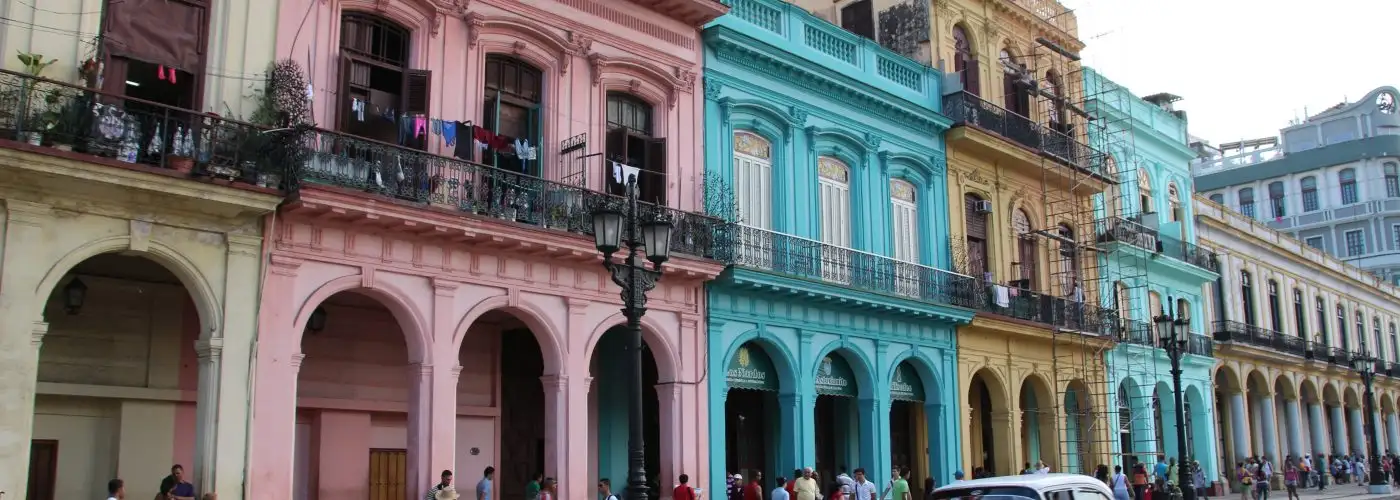
Cuba Travel Tips: What You Should Know Before You Travel to Cuba from the U.S.
Caroline Morse Teel
Caroline Morse Teel is the Managing Editor for SmarterTravel Media. Follow her on Instagram @TravelWithCaroline .
Caroline joined Boston-based SmarterTravel in 2011 after living in Ireland, London, and Manhattan. She's traveled to all seven continents, jumped out of planes, and bungeed off bridges in the pursuit of a good story. She loves exploring off-the-beaten path destinations, anything outdoorsy, and all things adventure.
Her stories have also appeared online at USA Today, Business Insider, Huffington Post, Yahoo, Boston.com, TripAdvisor, Buzzfeed, Jetsetter, Oyster, Airfarewatchdog, and others.
The Handy Item I Always Pack : "Earplugs. A good pair has saved my sleep and sanity many times!"
Ultimate Bucket List Experience : Hiking Mount Kilimanjaro.
Travel Motto : "Don't be boring."
Aisle, Window, or Middle Seat : "Aisle (when the first class private suite isn't available)."
E-mail her at [email protected] .
Travel Smarter! Sign up for our free newsletter.
Until recently, travel to Cuba from the U.S. was essentially off limits for those wishing to visit Cuba legally. That made it difficult for me to find accurate, up-to-the-minute Cuba travel tips when I was preparing for my own recent trip to Cuba.
After some reflection, here’s what I wish I’d known about how to travel to Cuba before I arrived in Havana. (Hint: Be prepared for currency confusion, and don’t leave home without an extra pair of shoes.)
Cuba Travel Tips: Essential Tips for Traveling to Cuba
Image gallery.
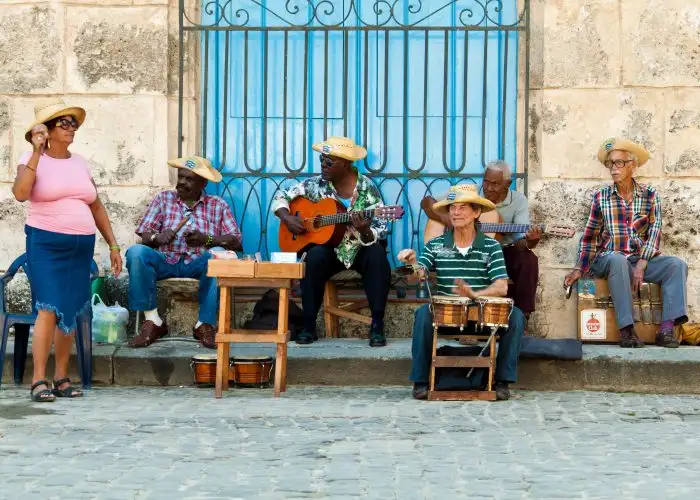
How to Travel to Cuba Legally
At the time of writing, the only way to travel to Cuba legally from the U.S. is under one of the 12 categories of authorized travel by the Department of Treasury's Office of Foreign Assets Control (OFAC) . These categories include family visits, official government business, journalism, professional research and meetings, educational or religious activities, and humanitarian projects, among others. The easiest way to travel to Cuba from the U.S. is through an authorized tour company, like AccessTrips , that will organize a legal people-to-people itinerary on your behalf.
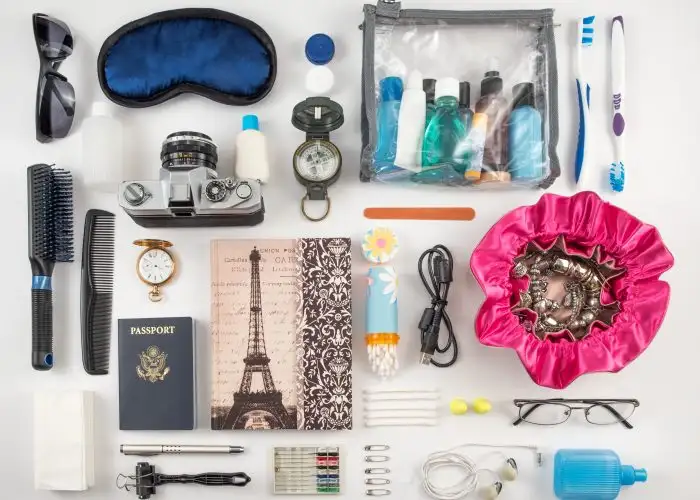
When Traveling to Cuba, Bring Everything You Need
On a typical overseas trip, I usually think that as long as I have my credit card and a passport book or passport card , I'll be okay. Whatever I forget I can always buy when I arrive at my destination. But in Cuba, you can't really run out to the nearest convenience store for necessities.
Stores are few and far between, and they only stock whatever goods are available that day. Items might be expired or could be a brand that you don't trust. So one of my top Cuba travel tips is to bring everything you think you might possibly need—from over-the-counter medicines to extra prescription drugs, and even extra shoes.
I packed my trusty broken-in walking shoes only to have them unexpectedly give me blisters on the first day. Finding sturdy walking shoes and blister Band-Aids would have taken hours, so I was grateful I'd thrown in an extra pair of flats that didn't rub the wounded areas.
This Cuba travel advice applies to money as well—your American credit and ATM cards are not likely to work in Cuba, so you won't have another way to get cash if you run out. Bring more money than you think you will need.
If there's one thing you need to remember about how to travel to Cuba, it's this: pack everything! You can always donate things like your travel toiletries at the end of the trip if you don't want to schlep them home.
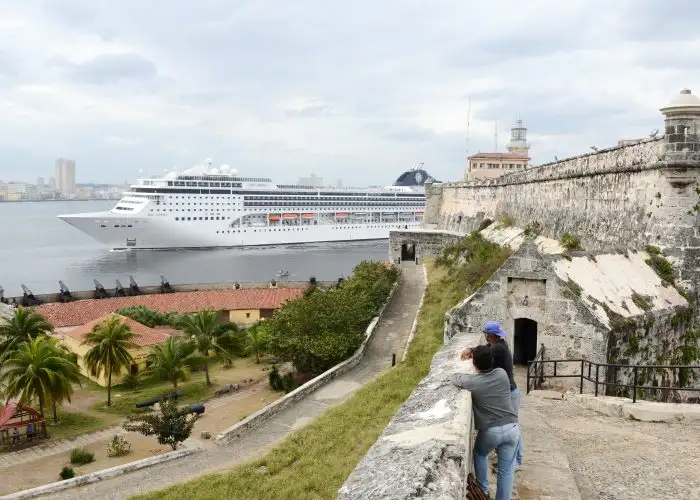
Time Your Travel to Cuba around Cruise Ship Schedules
Wandering around Havana, I saw mostly individual tourists with a few smaller groups—until the day the cruise ship docked. All of a sudden, the small streets of Havana were totally swarmed by mobs of cruise-goers and the dynamic of the neighborhood totally changed. So if you want to avoid that kind of chaos, one of my top Cuba tips is to make sure you check the schedule of the cruise ships and don't go to the ports on the same day.
10 Caribbean Islands Where the Cruise Ships Never Go
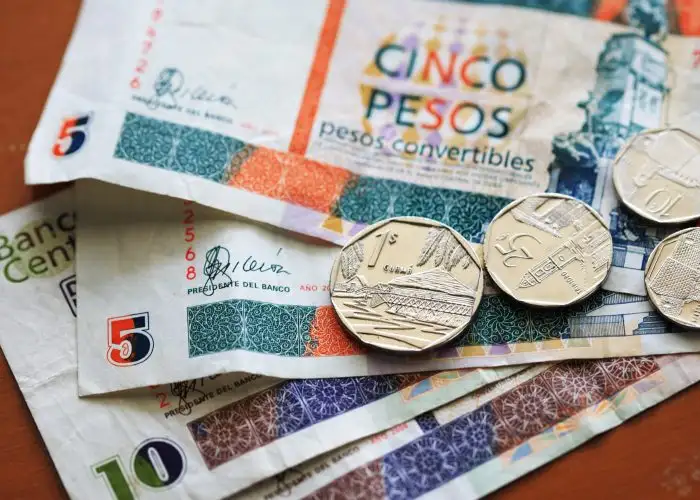
Know the Difference Between the CUP and CUC Currencies
Cuba has two currencies: the Cuban Convertible Peso (CUC) and the Cuban Peso (CUP). The conversion rate was 1 CUC to 26.5 CUP at the time I visited. So here's one very important Cuba travel tip: Don't mix up your currencies.
The CUC is what you, as a foreigner, will be given when you exchange your money. However, there are some things that are primarily available only to locals (like street food or ice cream) that can only be purchased with CUP, since the exchange rate is too big to give change when converting.
Be sure to check your money when you're given change as the bills are very similar in color and identical in size. Here's how to travel to Cuba and not mix up the currencies: The CUC has pictures of monuments on it, while the CUP has pictures of people on it.
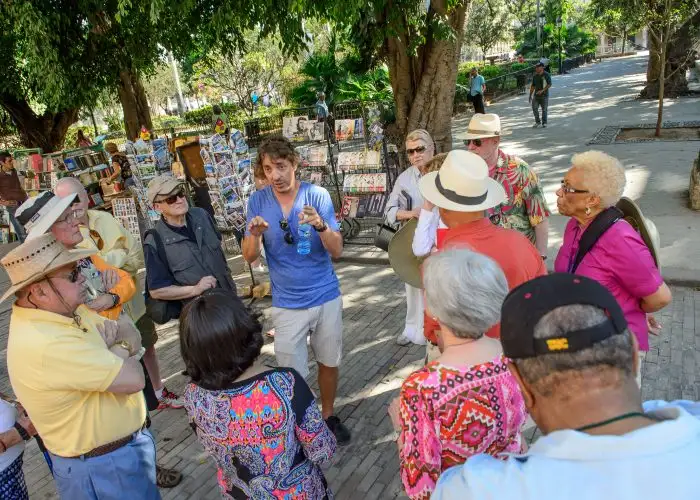
How to Travel to Cuba from the U.S. Legally with a Group
I traveled to Cuba legally with Access Trips , which had boasted about its small group sizes. But I was still pleasantly surprised when I arrived and was placed with only four other travelers. The Access Trips Cuba Culinary Tour has a maximum group size of 10 people; for groups with more than five, Access Trips will split the group into two different cars.
This meant I was able to tour Cuba in a stylish classic car rather than a bus. My group ate at small restaurants without overwhelming them, and we were able to easily change the day's itinerary to accommodate something else that the group wanted to do (a feat that would be impossible on a tour bus of 30 people).
I saw a few big groups throughout my visit, and I noticed that everything they did took forever (understandable when you have so many strangers to herd). Go small and go for something that aligns with your interest. If your interests are in food and in meeting locals, Access Trips is the perfect choice.
I Hated Group Tours … Until I Tried One
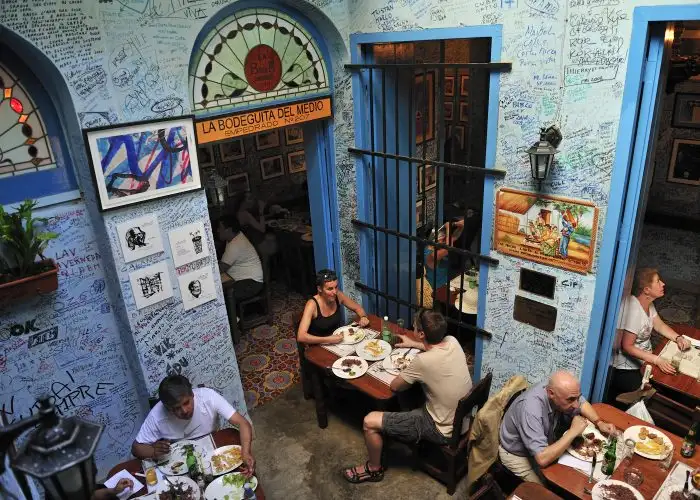
Make Restaurant Reservations
Although my small group tour company had warned me that the best restaurants fill up in advance, I didn't think that I would need to make a reservation for a mid-week dinner. (Although we had a welcome and goodbye dinner scheduled for us, we had evenings free of the time.) That left me kicking myself when I missed out on dinner at the charming rooftop terrace of El Cocinero, which was totally booked for the entirety of my trip.
Take this important Cuba travel tip to heart: Book ahead if you don't want to get stuck eating at a tourist trap. My favorite eateries in Havana were Atelier , La Guarida , and La Fontana .
Most of the best food can be found at paladares, which are privately owned eateries (compared to most other restaurants, which are government-owned). Since most Cubans don't have regular access to Wi-Fi, don't expect to make an Open Table reservation. One of the most important tips for traveling to Cuba and eating well is to make your reservations by phone or ask your guide/concierge to do it for you as soon as you arrive in Cuba.
10 Best Street Foods to Eat (If You Dare)
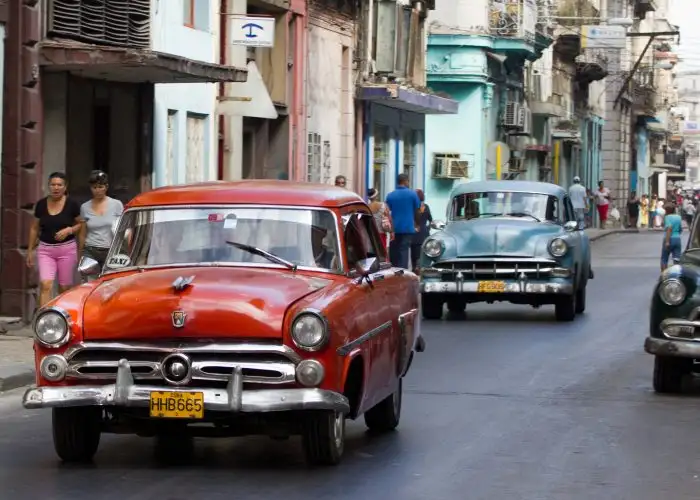
How to Travel in Cuba: Don't Rent a Car
Although renting a car in Cuba is possible, it's a daunting and expensive proposition. Gas stations are few and far between, and the roads are in pretty rough shape—which is bad news for rental car drivers, because if something on your car breaks there's no AAA equivalent to bail you out. And when you travel to Cuba from the U.S., you're very unlikely to find a vehicle that meets your safety standards (such has having a seatbelt).
Don't forget that the lack of Wi-Fi or phone data service means you'll be without GPS, too. So another one of the most important Cuba travel tips is to polish up on your map-reading skills if you do plan to drive.
If you're just sticking to Havana, you won't need a car (taxis are easy and affordable, and most of Havana is easy and safe for walking around). To get between cities, a tour group or private driver is your best bet.
7 Worst Car Rental Rip-Offs and How to Beat Them

Bring Canadian Dollars and Small Bills to Cuba
Most tips for traveling to Cuba point this out, but it can't be overstated: You'll be charged 10 percent by the Cuban government for exchanging U.S. dollars, so convert your U.S. currency to Canadian dollars before you go. You'll still be hit by a 3 percent financial transaction charge no matter what currency you're bringing (on top of any fees that the bank/hotel/airport levies), so be sure to factor that in when you're planning how much cash to bring to Cuba.
When you do convert your money, ask for some small bills and a few coins, which will come in handy later for tipping or buying small items. Many things are inexpensive in Cuba, and some places will have a hard time breaking larger bills.
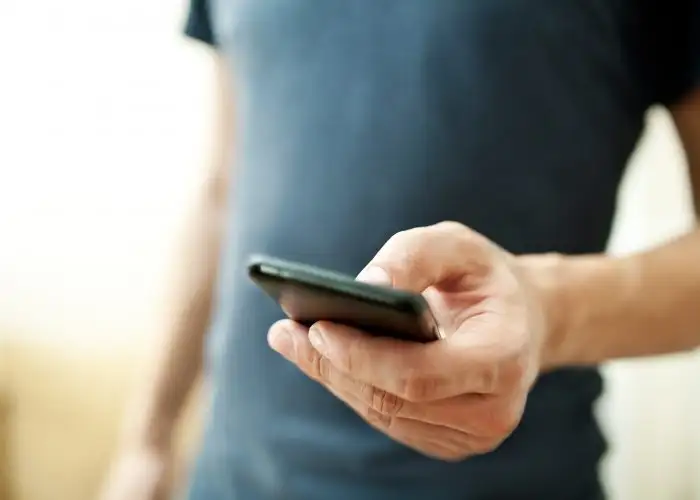
How to Travel to Cuba When There's No Internet: Download an Offline map
I'm used to checking in somewhere and getting a free paper city map, or at least being able to pull up Google Maps. In Cuba, paper maps are hard to come by (and certainly aren't free), and Wi-Fi will cost you and be very slow when it comes to using apps. Download an offline map of Cuba and the cities you're visiting before you go.
8 Essential Travel Apps You Can Use Without Wi-Fi
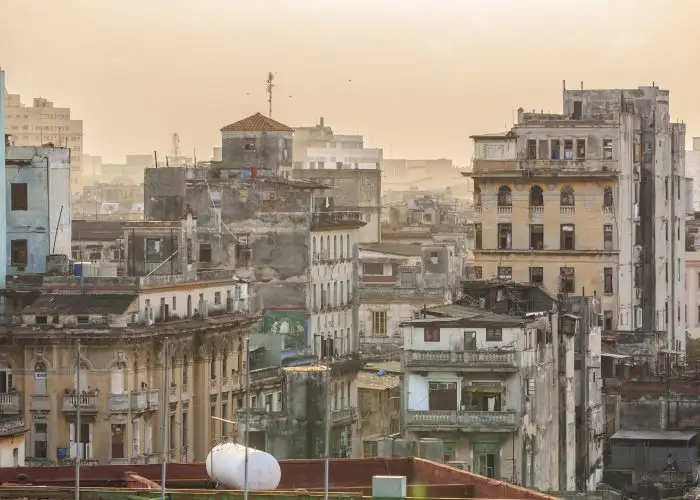
Be Prepared for the Pollution in Cuba
If you suffer from allergies or breathing problems, check in with your doctor to see if he or she has any allergy-related tips for traveling to Cuba (especially to a big city like Havana) and pack extra medication or inhalers. Although Cuba's classic cars look cool, the majority are diesel—and there's certainly no such thing as air quality controls on them. City smog in Cuba can be eye-watering.
More from SmarterTravel:
- Cuba, Then and Now: Have U.S. Travelers Already Changed Cuba?
- These 6 U.S. Airlines Approved for Cuba Flights
- 8 Things You Need to Know About Traveling to Cuba in 2016
Caroline was hosted by Access Trips on their Culinary Cuba tour . See more of Caroline’s Cuba photos on Instagram @TravelWithCaroline and on Twitter @CarolineMorse1 .
We hand-pick everything we recommend and select items through testing and reviews. Some products are sent to us free of charge with no incentive to offer a favorable review. We offer our unbiased opinions and do not accept compensation to review products. All items are in stock and prices are accurate at the time of publication. If you buy something through our links, we may earn a commission.
Top Fares From

Don't see a fare you like? View all flight deals from your city.
Today's top travel deals.
Brought to you by ShermansTravel
Porto to Lisbon: 7-Nt, Small-Group Portugal...
Indus Travels

Greenland: Luxe, All-Incl. 11-Nt Exploration Small-Ship...
Swan Hellenic
Ohio: Daily Car Rentals from Cincinnati

Trending on SmarterTravel
Travel Guide Cuba
Book your individual trip , stress-free with local travel experts
- roughguides.com
- Central America & the Caribbean
- Travel guide
- Itineraries
- Local Experts
- Travel Advice
- Accommodation
Plan your tailor-made trip with a local expert
Book securely with money-back guarantee
Travel stress-free with local assistance and 24/7 support
Our time in Cuba was a wonderful experience.
For the last two decades, the popular refrain on visiting Cuba has been “Go now before it changes forever”, which has seen tourism on this Caribbean island rocket.
Cuba Fact file
Best time to go to cuba, where to go in cuba.
- How to get to Cuba
How to get around Cuba
Best places to visit in cuba, itineraries for cuba, entry requirements for cuba, travelling with children in cuba, accommodation in cuba, health in cuba, safety in cuba, travel insurance, food in cuba, drink in cuba, classic american cars.
Cuba is an island that regularly lurches forward, then crunches into reverse. And it is also a place renowned for its stagnation over the last six decades, since the 1959 Revolution stopped the clocks and turned everything upside down. When you travel to Cuba you’ll be struck by vintage radios, refrigerators and lamps, and swinging neon signs hanging over storefronts. There are antique pharmacies and traditional barbers, and iconic classic American cars everywhere. But this is no retro trend, it’s make-do-and-mend, frozen-in-carbonite Cuba.
However, the pace of modernization on the island is increasing exponentially. New swish hotels are springing up and first-class, family-run boutique hotels are flourishing. And house-based restaurants – paladars – are slowly putting Cuban cuisine on the culinary map.
There have been other transformations. In recent years this communist stronghold has lost its titanic patriarch, Fidel Castro and celebrated the first US presidential visit in 80 years. It has sworn in a new president of its own, Miguel Diaz-Canel, the first person outside the Castro family to lead the country since 1959.
But the uniqueness of Cuba is unwavering. Roadside billboards still proclaim “Socialism or death”, world-class ballerinas and baseball players earn the same meagre state salary as the ordinary workers. On your Cuba travels you can meet Cuban artists in their own front-room galleries and learn how to dance salsa in home-based studios. You can take a city tour in a 1956 Chevrolet and learn how to kite surf, rock climb, play the conga and ride a horse. And the island's breathtaking beaches , unspoiled seas and forest-covered mountains haven’t gone anywhere.

Aerial view of the Hotel Nacional in Havana © Kamira/Shutterstock
- Size and population : 11.2 million inhabitants and 110,861 sq km of land. Cuba is the largest island in the Caribbean by both population and area.
- Literacy rate : among the highest in the world.
- Currency : the Cuban peso (CUP) and the Cuban convertible peso (CUC).
- Revolution : 26 July 1953 – 1 January 1959. The overthrow of Fulgencio Batista's government and establishment of a revolutionary government, led by Fidel Castro. The Eastern province of Granma and one of Cuba’s national newspapers are both named after the boat which carried Fidel Castro and 81 other rebels from Mexico to Cuba in 1956. The boat itself was named after the original owner’s grandmother.
- National holiday : Christmas abolished as a public holiday in Cuba in 1969 and officially reinstated in 1998.
- Wildlife : the world’s smallest bird, the bee hummingbird, is indigenous to Cuba.
The best time to travel to Cuba is typically between December and May. However, you can almost always except sunny warm weather due to the islands fairly close location to the equator. Even if you travel to Cuba during the rainy season, between May and October, you’re unlikely to have a waterlogged holiday, as the rains never last very long. September and October are peak hurricane season.
Festival-wise, the best celebrations in Cuba take place from July 25th to 27th where the locals take to the streets to celebrate the success of the Cuban Revolution. Expect rallies, speeches and dances. The Cubans celebrate these days as the happiest days in Cuban history.
Read more about festivals and when to go to Cuba.
The capital, Havana
If you travel to Cuba, a visit to its dynamic capital, Havana , has to feature on your itinerary. Habana Vieja is at the heart of this unique city – a collision of the old and new, with architectural splendours from as far back as the sixteenth century, alongside buzzing new bars and restaurants , boutique hotels and casas particulares.

West of Havana
With its giant, Jurassic-era hills, Viñales valley in the province of Pinar del Río has a lost-world quality, while the Sierra del Rosario range holds the remote and lovely eco-resort of Las Terrazas. There are any number of tobacco plantations you can visit, the most famous being Alejandro Robaina. For fantastic scuba diving head west to the secluded María La Gorda on the Península de Guanahacabibes.
East of Havana
There is no shortage of beach resorts in Cuba but for the full holiday package head to Varadero in Matanzas province . A seemingly endless beach, all-inclusive hotels and watersports are just a couple of hours drive east from Havana. The wild and unspoiled Península de Zapata on the south side of the province holds an abundance of wildlife and great diving opportunities. Other popular day-trip destinations include the awesome Cuevas de Bellamar (Bellamar caves) and the lush landscape of the Yumurí valley.
Santa Clara, Cienfuegos and around
Santa Clara is worth a stopover on your trip to Cuba, this large and bustling city probably best known for its Che Guevara connections. Easy-going Cienfuegos , with its distinctly French feel, is known as the “Pearl of the South”, and enjoys a lovely bayside setting.

Trinity Church in Plaza Mayor, Trinidad, Cuba © Maurizio De Mattei/Shutterstock
Trinidad to Ciego de Ávila province
The historic and atmospheric city of Trinidad , with its pastel-coloured colonial architecture and its villagey feel, draws visitors in large numbers. It’s also an ideal base for exploring the Sierra del Escambray , in particular, the Topes de Collantes. Furthermore, you can use it as a jumping off point for the idyllic stretch of coastline on the Península de Ancón and its beaches, in particular, Playa Ancón.
For more soft white sands head for Cayo Coco and the quieter Cayo Guillermo , off the north coast of Ciego de Ávila province . Base yourself in picturesque Morón if the luxury hotels on the cays are beyond your budget. Enjoy the surrounding countryside brimming with palm trees, sugar cane and citrus trees.
Camagüey , one of Cuba’s oldest towns and a UNESCO Heritage site, is crammed with architectural delights and atmospheric cobbled streets, and is particularly vibrant during its June carnival.
A short drive north is the low-key beach resort of Santa Lucía and the wonderfully remote and tranquil beaches of Cayo Sabinal .
Holguín to Guantánamo
The crown jewel of Holguín province in the Northern Oriente is lively and picturesque Playa Guardalavaca , its sugar-like sands popular with Cubans and tourists alike. Playa Esmeralda, Pesquero and Turquesa offer luxury and tranquillity.
Baracoa , a small vibrant coastal town set on Cuba’s southern tip is surrounded by some of the country’s most breathtaking mountains, rainforest and countryside.
Santiago de Cuba
If you travel to Cuba you could easily while away your entire holiday in Santiago de Cuba province, southeast of the island. The southern coast road, sandwiched between glistening waters and the blue-green mountains of the Sierra Maestra is a superb drive. And the mountains are home to great trekking country – and various landmarks linked to the revolution.
Energetic and buzzing Santiago offers a laid-back, determinedly Caribbean vibe, enticing visitors with some of the best Cuban music, particularly during its lively annual July carnival.
Isla de la Juventud
It’s a three-hour journey by ferry to Isla de la Juventud , off the south coast of Artemisa province. But if you make the effort to get there you’ll appreciate the island’s timeless quality. You can enjoy gentle beaches, leisurely walks and cycle rides, and there are great diving spots.

Parque Agramonte in Camagüey © Alexandre G. ROSA/Shutterstock
Discover more places in Cuba

- Isla de la Juventud and Cayo Largo Travel Guide
- Matanzas Travel Guide
- Northern Oriente Travel Guide
- Santiago de Cuba and Granma Travel Guide
- Trinidad Travel Guide
- Varadero Travel Guide
Getting to Cuba is straightforward. Several airlines fly direct from Europe, although there aren’t many from the UK. It can prove cheaper to fly indirect to Cuba from the UK via other European cities. There are no direct flights from Ireland, nor from Australia. You can now fly direct from the US, while Canada has long had the most flights to Cuba. Most flights land at Havana’s José Martí airport, although you can go direct to some regional airports.
If you’re travelling to Cuba from the US and you book via a specialist tour operator they’ll likely be licenced to take groups of US citizens. This removes the hassle of organising a licence yourself.
Get more information on how to fly to Cuba .
Travel in Cuba is mostly done by bus, especially as not that many Cubans own cars. There are two national bus networks. Víazul operates for foreign passport holders and CUC-paying Cubans, and the Empresa Omnibus Nacionales network, for national-peso-paying Cubans.
Taxis, especially shared ones, are an easy and fairly cheap way to travel in Cuba. Car hire is also a convenient option. Train travel is slow but a good way to see the country and cycling tours are gaining in popularity. For long distances it could be worth flying between destinations.
Read more about travelling around Cuba : the pitfalls of car hire and driving, getting around on buses, taxi options (Communal taxis, or taxis colectivos, long-distance taxis, tourist taxis, private taxis, bicitaxis and mototaxis), cycling and train travel.
Cuban travel is characterized by heat, music, dance and culture. It’s not possible to see all the island has to offer on one trip, so here are some of the very best places to visit in Cuba.
This buzzing small town on Cuba’s southeastern tip is a must on the travellers’ circuit. Soak up its old-time atmosphere by wandering the streets of pastel-coloured colonial houses, and watch the world go by in Parque Central. Locals gather here to play chess and dominos. Baracoa is surrounded by some of the country’s most breathtaking mountains, rainforest and countryside, rich with banana and coconut trees. You can reach the flat summit of El Yunque, the flat-topped mountain in the Sagua Baracoa range in a couple of hours without breaking too much of a sweat. Your efforts will be rewarded with astounding views.
This archipelago on the north coast of Cuba offers soft, creamy sands, lapped by startlingly clear waters, gorgeous lagoons and pink flamingos, and dense mangroves. Playa Pilar beach on Cayo Guillermo is the top draw for beach lovers, while divers and snorkelers head for Cayo Coco ’s northeast coast. It holds one of the longest coral reefs in the world, where angelfish, butterfly fish and surgeon provide a riot of colour. If underwater worlds aren’t your bag, explore Cayo Coco’s lush wooded interior, especially delightful for bird lovers. It’s a haven for hummingbirds and pelicans, and the marshes of the south provide sanctuary for herons and white ibis.
It feels as though time has stood still in this UNESCO world heritage site. Habana Vieja comprises cobbled plazas, crumbling colonial mansions, leafy courtyards, sixteenth-century forts and perfectly restored centuries-old buildings. With hardly any motorized traffic, it’s a delight to absorb the buzzing atmosphere simply by strolling. Plaza Vieja is the most animated and alluring square in Old Havana, alive with the hum of visitors in the cafés and restaurants. Pass the time and people-watch over a coffee or rum cocktail.
Giant humpbacked limestone hills (mogote) looming from the flat floor of lush Viñales valley are an arresting sight. This is particularly so early mornings when the valley can be shrouded in ethereal mist. Traditional tobacco farmers with their ox-driven ploughs add to the sense of time at a standstill. Enjoy the friendly vibe in the low-key village of Viñales, visit the nearby caves, perhaps explore the region on horseback.
Trinidad is the most visited town on the island and with good reason, for this UNESCO world heritage site oozes character. Wandering the cobbled streets of the old town, with its assortment of pastel-coloured, red-roofed houses and colonial mansions, is a delight. The beautiful Plaza Mayor is the focus of the old town with all the major museums close by. Scale the winding wooden staircases in the towers at the Museo de la Lucha Contra Bandidos and the Museo de Historia Municipal. You’ll get the best views of Trinidad, framed by coastline and mountains. Don’t leave Trinidad without experiencing the Casa de la Música. Drawing the largest crowds in town, this standout live music venue is Trinidad’s busiest, most animated spot. You’ll get the best big-band salsa and guaranteed dancing.
Trekking in the Sierra Maestra , Cuba’s highest mountain range will, literally and figuratively, take your breath away. Steep ascents make for some strenuous hikes, while the scenery of lush and untamed vegetation, wild seas, and far off sugar-cane fields, is spellbinding. You can only trek in the Sierra Maestra with a guide, but it’s well worth doing. The trail through the cloudforest of the Parque Nacional Turquino to the island’s highest point, Pico Turquino, is especially stunning.
The Sierra del Escambray holds some of the most stunning scenery in Cuba, with the Gran Parque Natural Topes de Collantes offering up wonderful hiking territory and horse-riding trails. Steep forested slopes of pine and eucalyptus trees give way to beautiful waterfalls and pools and awesome views. For access to a wider network of trails go with a guide, as access is restricted for independent travellers.
The journey to these remote, beach-blessed islets, the northern cays , along a 50km-long causeway skimming above clear waters, is reason enough to visit. But the star attraction is the paradisiacal, creamy soft sands of Playa Perla Blanca . Situated at the far eastern end of Cayo Santa María, this pristine beach feels remote and unspoiled, in part due to the absence of any facilities.
The waters around María La Gorda on the Península de Guanahacabibes offer some of the best diving in Cuba and the quiet town makes an ideal base. The protection of the bay means the waters are clear and calm, ideal for experienced divers and first-timers alike. The fifty or so dive sites offer the chance to witness a huge variety of underwater wildlife. This includes as the fierce-looking barracuda, lobsters, moray eels and whale sharks, among others.
Cuban cigars are generally known to be the best in the world – and the best of the best are produced in the fertile Vuelta Abajo region in the province of Pinar del Rio. While there are numerous tobacco plantations, the most famous is the Alejandro Robaina . Producing top-quality tobacco since 1845, it’s is the only plantation in Cuba to farm for its own brand, the Vegas Robaina, named after the founder’s grandson. Although Alejandro Robaina died in 2010 at the ripe old age of 91, the plantation is still thriving. You can go on an intimate and down-to-earth tour that vividly brings to life the journey of the plantation’s tobacco from seeding to cigar.
Get more information on things not to miss in Cuba .

View of Baracoa © Autumn Sky Photography/Shutterstock
Transportation in Cuba is somewhat unorganised and defies logic, so we suggest you plan your trip beforehand. We’ve created a few itineraries to inspire you and help you get the most out of your visit.
Tailor-made travel itineraries for Cuba, created by local experts

15 days / from 2914 USD
Cuba - Family, Beach, and Culture
Enjoy a 2-week family adventure visiting highlights and hidden gems of Cuba. Marvel at the colonial architecture in Havana, enjoy a ride in a Classic Car, explore the forests close to Trinidad, and relax on white sandy beaches of Cayo Levisa - this trip packs it all into one itinerary.

5 days / from 991 USD
A moderately challenging cycling holiday through Cuban countryside visiting the tobacco fields of Viñales Valley and a pristine Caribbean beach in Cayo Jutias.

13 days / from 3455 USD
Western and Central Cuba by E-bike
Combine a leisurely activity with an insight into some of Cuba’s most fascinating cultural highlights on this new e-biking tour of Western and Central Cuba. Explore the tobacco region of Viñales, cycle along the Bay of Pigs and relax on the fine sandy beaches of Cayo Las Brujas.
For ideas on what to do in Havana over two to three days, take a look at our ‘Havana grand tour’ itinerary. If you’re interested in Cuba’s great outdoors and you have a couple of weeks to explore, take a look at our ‘Mountains and mogotes’ itinerary. And if you fancy getting around Cuba on two wheels our ‘Havana to Trinidad by bike’ itinerary will surely appeal.
We’ve created this sample itinerary combining city sights, culture and paradisiacal beaches – ideal for a first-time visit to Cuba.
Days 1 – 3: Havana
Havana , the 500-year-old vibrant capital made up of vintage cars, colourful colonial-style buildings, cigars and salsa. Head to charming Habana Vieja (Old Havana) , to eat churros and explore the streets of crumbling buildings, new and interesting bars and restaurants. Embark on a classic car tour, where you will be driven to all the hot spots in Havana in a tasteful vintage car. Be sure to check out the Plaza de la Revolucion (Revolution Square) and the infamous Havana Cathedral. The Sinistro cigar factory is quite the icon in Havana. It provides tours in which you can roll your own cigars – perfect for a handmade souvenir.
Days 3 – 7: Playa Jibacoa and Varadero
About 60 km from Havana lies Cuba's best-kept secret, Playa Jibacoa . This picturesque beach is postcard worthy for its soft white sands and clear emerald waters. The beauty of Playa Jibacoa is that it is secluded and rarely known to tourists. Relax, swim and dive the sunken shipwrecks for a few days and enjoy the Caribbean heat. A little further away is the more well known beach spot, Varadero. Varadero offers the same gorgeous beaches but with more tourists and hotel chains.
Check out our other Cuba itineraries .
You must have a ten-year passport, valid for two months after leaving Cuba, a return, or onward flight booked, and health insurance. If you don’t have proof of insurance you may have to buy a Cuban health insurance policy. Companies in the US do not cover Cuba. You will also need to purchase a tourist card (visa for Cuba). This is available online, at UK airports, and from some airlines and tour operators. Tourist cards are valid for 30 days for UK, US and Australasian citizens and 90 days for Canadians. They can be renewed for another 30 days once you’re in Cuba. Additionally, US citizens need proof of a licence to travel.
Read more about entry requirements : Cuba travel restrictions and visas for travel to Cuba.
Children are made welcome pretty much everywhere, although there’s little in the way of entertainment aimed specifically at children. There’s also not much in the way of facilities, such as high chairs, car seats, baby-changing facilities, etc. First-aid items may be more expensive and not as readily available, and the same goes for nappies, baby wipes, etc. The only milk available is UHT.
See more on travelling with children in Cuba .

Morning view to Vinales valley, Cuba © Zaruba Ondrej/Shutterstock
Accommodation options generally fall within two camps: hotels and casas particulares – literally “private houses”, which often provide the best places to stay in Cuba. Hotels divide into those run by the Cuban state, or internationally owned chains.
Read more about accommodation in Cuba – the different types of hotels and hostales, casas particulares, campismos (similar to camping).
You’ll find no particular health risks if you travel to Cuba, although you shouldn’t drink tap water because of possible parasites. No vaccinations are legally required, although it’s advisable to get inoculations for hepatitis A, cholera, tetanus and to a lesser extent rabies and typhoid. Take a first aid kit with you, as availability is limited.
Read more about health matters in Cuba , such as food and water, mosquitos and ticks, sun exposure, hospitals, clinics and pharmacies, etc.
Crime against foreign visitors is on the increase, particularly in Havana, which also involves violent crime. In general, however, most crime involving tourists is pickpocketing and bag snatching, especially in Habana Vieja and Centro Habana.
Women travelling alone in Cuba are generally safe, more so than in many Western cities, particularly at night. And women are treated with courtesy and respect. The problem women are most likely to encounter if they travel to Cuba is unwanted attention. However, it’s usually conducted with charm, so it tends to be more irritating than threatening.
Read more about safety in Cuba : women travelling alone, precautions against crime, etc.
When you visit Cuba you must have travel insurance that covers medical expenses. If you are found to be without insurance at immigration you will have to take out an insurance policy with Asistur, the tourist-assistance agency. American citizens should go to Asistur for insurance, as US insurance providers don’t provide cover for Cuba.
Get more information on travel insurance for Cuba and information on purchasing travel insurance .
Visitors to Cuba are not usually enticed by its cuisine . You won’t go hungry, as portions tend to be huge, and produce is grown locally, but you’re unlikely to be excited by what’s on your plate, as food tends to be on the bland side. That said, the growth of private enterprise in Cuba has seen the emergence of new and interesting restaurants (paladars), especially in Havana.
Meat tends to feature heavily on menus throughout Cuba, often roasted or prepared in a stew and accompanied by rice and beans, cassava or sweet potato. And you’ll find wonderfully fresh seafood in coastal areas. Street food is usually freshly made and very tasty, and provides a cheap lunch or snack. Common snack include tamales (steamed cornmeal, peppers and onions, wrapped in corn husks) and corn fritters.
Where to eat in Cuba
Convertible-peso restaurants usually provide superior quality meals than national-peso establishments (catering mainly for Cubans). They also tend to be cleaner and nicer, generally. However, you can sometimes get very cheap and decent food in national-peso restaurants. Paladars used to operate out of people’s homes, but Cuba is seeing a surge in these privately owned restaurants in interesting settings, such as old colonial buildings and mansions.
Bear in mind that most establishments only take cash, and where credit cards are accepted, you can come up against problems. So it’s better to avoid card payment altogether.
Read more on food in Cuba : state restaurants and paladars, popular dishes, street food, fruit, sweets and snacks, etc.
Rum, the national tipple is cheap and readily available, particularly Havana Club, while Santiago de Cuba is the choice of many connoisseurs. Rum is also the star turn in several classic Cuban cocktails, such as the Cuba libre, daiquiri and mojito. Lager (cerveza), such as Cristal, is plentiful.
Soft drinks, including Coke and Pepsi are sold in convertible-peso shops, alongside Cuba’s own alternative brands of fizzy pop. Other drinks in Cuba include granizado (a slush drink), guarapo (sweet frothy drink made from pressed sugar cane), Prú (speciality in Eastern Cuba and resembles spiced ginger beer) and fresh lemonade.
Unsurprisingly, coffee is a very popular drink among Cubans. It is served in all restaurants and bars and at national-peso coffee stands in town centres.
Read more on drink in Cuba .

Varadero beach © Kako Escalona/Shutterstock
Tips for travelling to Cuba
From travel safety to visa requirements, discover the best tips for traveling to Cuba
- Eating and drinking in Cuba
- Getting around Cuba: Transportation Tips
- Travel Tips Cuba for planning and on the go
- Best time to visit Cuba
Costs and money
Cuba is not a particularly cheap country to visit. If you’re on a tight budget, national-peso goods and services, such as fresh-food markets and street vendors, will save you some money, but it’s not always an option. You’ll have to pay for accommodation in convertible pesos, and most likely when travelling long-distance on buses, taxis, etc., although long-distance taxis can be cost-effective if you share them with other passengers.
Cuba has two units of currency: the Cuban peso, or national peso (CUP) and the Cuban convertible peso (CUC), which can only be bought or sold in Cuba itself. Both are represented by the dollar sign ($), which can be confusing, although sometimes prices are specified as CUC, CUP, or MN (national pesos). Scottish, Northern Irish and Australian banknotes and coins cannot be exchanged in Cuba.
Always carry some money in cash, in low denominations, as many shops and restaurants, bus and train stations, simply won’t have enough change. The slightest tear in any banknote means it is likely to be refused.
Credit cards, ATMs and exchanging money
Although upmarket hotels, restaurants and touristy shops generally accept credit cards, the majority of places still operate using cash only. Cards issued by a US bank or credit card company aren’t accepted at all; neither are Maestro or Cirrus cards. ATMs are thin on the ground and many only accept Cuban cards.
The Banco Financiero Internacional and the Banco de Crédito y Comercio are the banks most used to dealing with foreign currency exchange; they have branches in all major cities.
Read more about money : costs, banks, currency exchange, and what to do in the event of financial difficulty in Cuba.
The state closely controls and censors all media in Cuba. The main national newspaper is Granma, the official mouthpiece of the Cuban Communist Party; there are few international newspapers available. US-based On Cuba magazine and website, is one of the best resources for up-to-date impartial news and views on Cuba and particularly Cuban-US relations and cultural projects. Havana Live website is a good resource for of-the-moment news stories about the capital and beyond, and listing and tourist information.
Read more on the media in Cuba .
Festivals in Cuba
Cuba has some of the best festivals in Latin America, from the unmissable July carnival in Santiago de Cuba, to the renowned Havana Film Festival (Festival Internacional del Nuevo Cine Latinoamericano), as well as numerous smaller festivals celebrating music, dance and other arts. When you travel to Cuba it’s worth timing your visit to coincide with one of these.
Activities in Cuba
Cuba is blessed with an abundance of outstanding scuba-diving spots, particularly around the clearer waters of the south coast, such as María La Gorda in southwestern Pinar del Río. And diving is good year round, although visibility may be hampered during the hurricane season.
Other outdoor sports and activities to try include kitesurfing, hiking (although access is restricted so you’ll probably need to go with a guide) and fishing – Cuba being one of the best fishing destinations in the Caribbean.
Spectator sports include baseball, basketball and soccer, and you can catch a game in the national leagues for next to nothing.
Find out more about sports and outdoor activities in Cuba .
Cigars, rum, coffee, music and arts and crafts are the really worthwhile purchases here. It’s also possible to pick up some wonderful pieces of vintage homeware, furniture and memorabilia.
Find out more about shopping in Cuba .
Get more travel tips for Cuba : such as opening hours, public holidays, working and studying in Cuba, LGBT travellers, travelling with a disability, tipping etiquette – and more.

© Shutterstock
Perhaps the most clichéd image of Cuba is of a classic American car rolling past a crumbling colonial building, and you don’t have to spend long in the country to see why this image has become so ubiquitous. There are said to be around 60,000 vintage cars in Cuba, most of them still on the road and almost all of them imported from the factories of Detroit during the 1940s and 1950s, when the US was Cuba’s most significant trade partner. After President Kennedy cut off all trade with Cuba via the 1962 economic embargo that exists to this day, car owners were compelled to keep their Buicks, Oldsmobiles, Chevrolets and Fords running. Unable to source replacement parts, proud owners have over the years become the most ingenious on the planet, culling pieces from Eastern Bloc Ladas, household appliances and even old tanks to keep their cars alive.
When Carlos V issued a royal order in 1539 formalizing rum production, it secured Cuban rum’s place on the map. Today Cuba produces some of the world’s most respected brands of rum, silky smooth modern varieties that have little in common with the harsh drink enjoyed by sixteenth-century pirates and renegades. Quality ranges from the most basic white rum widely used for mixing in cocktails (famously the mojito, the cuba libre and the daiquiri), to various dark rums aged in oak casks for different lengths of time, from around three years to as many as thirty, the latter of which sell for around $50CUC a bottle – and are best enjoyed neat or over a chunk of ice. Though Havana Club is the best known of all Cuba’s rums, browsing the shelves of the convertible peso shops will reveal tempting but lesser-known varieties such as Cubay’s pleasantly sweet dark rum and Ron Palma Mulata, a good white rum that is slightly cheaper than its Havana Club equivalent. Among the finest Cuban rums are Havana Club Gran Reserva and Santiago de Cuba Extra Añejo – reputed to be the favourite tipple of Fidel Castro himself.
Top image: Cuban flag in a doorway in Trinidad, Cuba © Sabino Parente/Shutterstock
The Rough Guides to Cuba and related travel guides
In-depth, easy-to-use travel guides filled with expert advice.
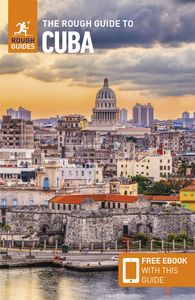
Find even more inspiration here

Planning your own trip? Prepare for your trip
Use Rough Guides' trusted partners for great rates
written by Rough Guides Editors
updated 26.04.2021
Ready to travel and discover Cuba?
Get support from our local experts for stress-free planning & worry-free travels.
- Where to stay
- Travel advice
Update April 12, 2024
Information for u.s. citizens in the middle east.
- Travel Advisories |
- Contact Us |
- MyTravelGov |
Find U.S. Embassies & Consulates
Travel.state.gov, congressional liaison, special issuance agency, u.s. passports, international travel, intercountry adoption, international parental child abduction, records and authentications, popular links, travel advisories, mytravelgov, stay connected, legal resources, legal information, info for u.s. law enforcement, replace or certify documents.
Before You Go
Learn About Your Destination
While Abroad
Emergencies
Share this page:
Travel Advisory January 5, 2024
Cuba - level 2: exercise increased caution.
Reissued with updates to crime information.
Exercise increased caution in Cuba due to crime .
Country Summary: Petty crime is a threat for tourists in Cuba. Also, violent crime, including armed robbery and homicide, sometimes occurs in Cuba.
Travel outside of the Havana area for U.S. Embassy employees requires a special notification process which may affect the Embassy’s ability to provide emergency assistance to U.S. citizens in Cuba.
Read the country information page for additional information on travel to Cuba.
If you decide to travel to Cuba:
- Be aware of your surroundings.
- Do not physically resist any robbery attempt.
- Do not display signs of wealth, such as wearing expensive watches or jewelry.
- Enroll in the Smart Traveler Enrollment Program (STEP) to receive Alerts and make it easier to locate you in an emergency.
U.S. citizens should always exercise caution when traveling abroad:
- Follow the Department of State on Facebook and Twitter .
- Review the Country Security Report for Cuba.
- Prepare a contingency plan for emergency situations. Review the Traveler’s Checklist .
Embassy Messages
View Alerts and Messages Archive
Quick Facts
Must have six months validity at the time of entry.
Two pages are required for entry/exit stamps.
Yes. Travel to Cuba for tourist activities remains prohibited by statute. See 31 C.F.R 515.560 and OFAC's Frequently Asked Questions .
None. See CDC for recommendations.
U.S. credit and debit cards do not work in Cuba. You should bring U.S. dollars or Euros to Cuba and exchange them for Cuban Pesos (CUP) at authorized banks, CADECA offices, airports or hotels. Travelers should confirm alternative payment options before traveling, as policies concerning the use of U.S. dollars in Cuba are subject to change. The Cuban government requires that travelers declare cash amounts over the equivalent of 5,000 USD.
When departing Cuba, we advise U.S. travelers to spend or exchange CUP to a foreign currency well before reaching airport security checkpoints. Currency exchange houses in the departure area at airports are currently closed and Cuban pesos are not internationally convertible outside of Cuba.. International airlines flying to the United States include departure fees and taxes in the price of airline tickets. U.S. dollars are not accepted for payment of any additional products purchased at the airport. Under Cuban law, travelers may export up to the equivalent of 5,000 USD out of the country. Anyone wishing to depart Cuba with more than this amount of cash must demonstrate evidence that the currency was acquired legitimately from a Cuban bank.
Embassies and Consulates
U.S. Embassy Calzada between L and M Streets, Vedado, Havana, Cuba Telephone: + (53) (7) 839-4100 (Monday- Friday 0830-1630, except holidays) Emergency after-hours telephone: + (53) (7) 839-4100 and dial 1 to speak with the emergency operator Fax: + (53) (7) 839-4247 Website: https:cu.usembassy.gov
Email: [email protected] (for concerns with U.S. citizens)
Destination Description
Learn about the U.S. relationship to countries around the world.
Entry, Exit and Visa Requirements
Travel to Cuba from or transiting through the United States by persons under U.S. jurisdiction (defined as [BE1] U.S. citizens located anywhere, and anyone located in the United States regardless of citizenship and nationality) , is regulated by the Office of Foreign Assets Control (OFAC) of the U.S. Department of the Treasury. All travelers falling under U.S. jurisdiction must comply with these regulations. Individuals seeking to travel to Cuba are not required to obtain licenses from OFAC if their travel is covered under the 12 travel categories authorized by a general OFAC license. If travel is not covered by a general license, you must seek OFAC authorization in the form of a specific license . Travelers who fail to comply with regulations may face penalties and criminal prosecution. For travel-specific questions, please see 31 C.F.R. 515.560 and OFAC’s Frequently Asked Questions .
Visit the Embassy of Cuba website for the most current visa information.
Cuba requires visitors to have non-U.S. medical insurance, which is usually included in airline ticket prices on flights originating in the United States. If you do not have insurance, it can be purchased upon arrival to Cuba at an airport kiosk. Asistur Medical Insurance is the official company that airlines contract. Please confirm your coverage with your airline prior to arrival in Cuba and seek additional medical insurance if needed.
Cuba does not recognize the U.S. citizenship of Cuban-born U.S. citizens who maintain residency status in Cuba. The Cuban government requires Cuban dual nationals to enter and depart Cuba using Cuban passports. Cuban-born U.S. citizens who maintain their residency status in Cuba will be treated as Cuban citizens and may be subject to Cuban restrictions and legal obligations.
Some HIV/AIDS entry restrictions exist for visitors to and foreign residents of Cuba. Foreign students on scholarships are required to test for HIV/AIDS. Please verify this information with the Embassy of Cuba before you travel.
Information about dual nationality , the prevention of international child abduction , and customs regulations can be found on our websites.
Cuban Requirements for Authorized Travelers: Attempts to enter or exit Cuba illegally, or to aid the irregular exit of Cuban nationals or other persons, are prohibited. Entering Cuban territory, territorial waters, or airspace without prior authorization from the Cuban government may result in arrest. Immigration violators are subject to prison terms ranging from four to thirty years.
Temporary Sojourn License: Most aircraft and maritime vessels on temporary sojourn to Cuba are no longer eligible for an Aircraft, Vessels, and Spacecraft (AVS) License Exception. See 15 C.F.R. § 740.15. If you are planning to enter Cuba with a U.S. or foreign-registered aircraft or maritime vessel on temporary sojourn, you must meet the criteria set forth in 15 C.F.R. § 740.15. Please see the U.S. Department of Commerce’s Bureau of Industry and Security website for additional information.
In addition, a vessel of the United States, as defined in 33 C.F.R. §107.200, may not enter Cuban territorial waters without advance permission from the U.S. Coast Guard. The U.S. Coast Guard provides permission information at (305) 415-6920.
Safety and Security
The security environment in Cuba is relatively stable and characterized by a strong military and police presence. Demonstrations are infrequent but can draw violent responses from government forces. Even demonstrations intended to be peaceful can turn confrontational without warning. Avoid demonstrations and maintain security awareness at all times. Demonstration Alerts are posted on the Embassy’s website . Review the Cuba Travel Advisory .
The Cuban government has detained U.S. citizens suspected of engaging in activities perceived to undermine state security. The Cuban government may detain individuals for activities that would not be considered criminal or offensive in the United States.
Crime: With the recent influx of travelers, there has been an increase in the number of property crimes. Crimes of opportunity, such as pick pocketing, purse snatchings, and car break-ins, are on the rise. Exercise vigilance everywhere . Do not display large amounts of cash. Do not leave your valuables unattended. Carry money in your front pockets, hold your purse and cellular phone securely and be mindful of purses or bags when dining out.
- Do not leave a beverage unattended or accept beverages from persons unknown to you.
- Locations such as Habana Vieja, Playas del Este, Varadero, and other attractions tend to have a higher incidence of property crime than other parts of Cuba.
- Be wary of misdirection schemes where someone attempts to gain your attention while another comes from behind to steal your purse, wallet, or other valuable items.
- If confronted by criminals, do not resist, try to remain calm, clearly display your hands and do not make any sudden moves that could be interpreted as resistance.
- Carry a cell phone with Cuban cellular service for emergency communications and travel in groups if possible.
- Be aware of your surroundings, especially at night or when traveling in an unfamiliar area.
- While in your car, place valuables out of sight or in a locked trunk. When unattended, avoid leaving items in the car, especially on the seat or in plain view.
- Only use marked taxis.
- Carry a copy of your passport and secure the original.
- Beware of scam artists, who may speak English and appear friendly.
- When exchanging currency, use the state-run offices known as CADECAs or official banks.
International Financial Scams: See the Department of State and the FBI pages for information.
Victims of Crime: We strongly urge U.S. citizen victims of sexual assault to contact the U.S. Embassy for assistance. Report crimes to the local police by dialing 106 and contact the U.S. Embassy at +53 7839-4100. Remember that local authorities are responsible for investigating and prosecuting crimes.
See our webpage on help for U.S. victims of crime overseas .
We can:
- help you find medical care
- assist you in reporting a crime to the police
- contact relatives or friends with your written consent
- provide general information regarding the victim’s role during the local investigation and following its conclusion
- provide a list of local attorneys
- provide information on victim’s compensation programs in the U.S.
- provide an emergency loan for repatriation to the United States and/or limited medical support in cases of destitution
- help you find accommodation and arrange flights home
- replace a stolen or lost passport
Domestic Violence: U.S. citizen victims of domestic violence are strongly encouraged to contact the Embassy for assistance.
Tourism: The tourism industry is unevenly regulated, and safety inspections for equipment and facilities do not commonly occur. Hazardous areas/activities are not always identified with appropriate signage, and staff may not be trained or certified either by the host government or by recognized authorities in the field. In the event of an injury, even basic medical treatment is typically available only in/near major cities. First responders are generally unable to access areas outside of major cities and to provide urgent medical treatment. U.S. citizens should maintain health insurance in Cuba. If stays exceed 30 days, [CM1] U.S. citizens should purchase medical insurance when they process their visa extensions.
Local Laws & Special Circumstances
Criminal Penalties: You are subject to local laws. If you violate local laws, even unknowingly, you may be expelled, arrested, or imprisoned. Individuals establishing a business or practicing a profession that requires additional permits or licensing should seek information from the competent local authorities, prior to practicing or operating a business.
Furthermore, some laws are also prosecutable in the United States, regardless of local law. For examples, see our website on crimes against minors abroad and the Department of Justice website.
Arrest Notification: If you are arrested or detained, ask police or prison officials to notify the U.S. Embassy immediately. See our webpage for further information.
Cuban penalties for the following are particularly severe:
- Possession, use, or trafficking of illegal drugs.
- Suspicion of assisting Cubans to leave the country illegally.
- Drivers involved in accidents that result in injury or death, regardless of fault.
- Importing weapons or ammunition.
- Photographing military or police installations or personnel, or harbor, rail, or airport facilities.
- Crimes against minors.
The Government of Cuba does not recognize the U.S. citizenship of Cuban-born U.S. citizens who maintain residency in Cuba and may not allow U.S. consular access to Cuban-American prisoners.
Telecommunications: Many U.S. mobile service carriers provide roaming services in Cuba. Your U.S. mobile phone will work in Cuba if your mobile phone is capable of roaming in Cuba and your mobile service provider has an international roaming agreement with ETECSA, Cuba's state-owned telecommunications provider. Currently AT&T, Sprint, Verizon, and T-Mobile have roaming agreements with ETECSA. Wi-Fi is often slow and unreliable. Be sure to confirm your carrier’s coverage before traveling.
SIM cards with a data plan can be purchased at Havana-José Martí International Airport (HAV) and local ETESCA telecommunications offices. To ensure family and friends can reach you in Cuba, check with your mobile provider about roaming options and cost or purchase a Cuban SIM card. See the FCC Travel FAQs for more information.
Cuba-related Travel Transactions: Only persons whose travel falls into the 12 OFAC approved travel categories or who have received a specific license from OFAC are authorized by the U.S. Department of the Treasury to travel to, from, or within Cuba. Direct financial transactions with certain entities and sub-entities under the control of, or acting for or on behalf of, the Cuban military, intelligence, or security services are also generally prohibited. For more information see the Department of State’s Cuba Restricted List . Additionally, lodging, paying for lodging, or making reservations on behalf of others to lodge, at certain accommodations in Cuba are prohibited; for a full list of such accommodations, see the Cuba Prohibited Accommodations List . For more information about licenses, visit OFAC’s Cuba Sanctions website . Additionally, lodging, paying for lodging, or making reservations on behalf of others to lodge, at certain accommodations in Cuba are prohibited; for a full list of such accommodations, see the Cuba Prohibited Accommodations List . For more information about licenses, visit OFAC’s Cuba Sanctions website .
Licenses for Remittances: In June 2022, OFAC published updated Cuba-related regulations . The new regulations eliminated a cap on remittances to family members in Cuba, and authorized remittances to non-family recipients as well. Certain Prohibited Officials of the Government of Cuba , Prohibited Members of the Cuban Communist Party , and the close relatives of these two groups, are not eligible to receive remittances. For information on remittance authorizations, see OFAC’s Cuba Sanctions website .
What May Be Brought Back From Cuba: Importation of Cuban merchandise for commercial purposes is restricted, with very limited exceptions. Certain imports of goods produced by independent Cuban entrepreneurs are authorized, as set forth on the Department of State’s Section 515.582 List (see 31 C.F.R 515.582). There are no limits on the import or export of informational materials. For more information related to imports, including merchandise entering the United States for personal use as accompanied baggage, please see the CBP Public Notice .
Cuban law requires foreigners to obtain authorization to remove souvenir paintings and sculptures out of Cuba. Most authorized points of sale, such as galleries and art studios, should be familiar with this process and should provide the proper documentation at the time of purchase. You can also apply for an export permit via the Cuban Fund of Cultural Assets. Travelers without a valid export permit may have their items confiscated at the port of departure. The U.S. Embassy cannot assist in these cases. For more information, please contact the embassy of Cuba .
Travelers may purchase alcohol and tobacco products while in Cuba for personal consumption in Cuba, but may not enter the United States with alcohol and/or tobacco products acquired in Cuba. Persons subject to United States jurisdiction may purchase or acquire Cuban-origin merchandise for personal consumption, including alcohol and tobacco products, while in a third country, but may not import such products into the United States. For a complete description of what this general license authorizes and the restrictions that apply, see 31 CFR § 515.585(c) and (d).
Storm Season: Tropical storms and hurricanes between May and November can produce heavy winds and rain. See our page on disaster and crisis preparedness for more information.
Faith-Based Travelers: See the following webpages for details:
- Faith-Based Travel Information
- International Religious Freedom Report – see country reports
- Human Rights Report – see country reports
- Best Practices for Volunteering Abroad
LGBTI Travelers: There are no legal restrictions on same-sex sexual relations or the organization of LGBTI events in Cuba, and on September 26, 2022 Cubans passed the referendum legalizing same sex marriage.
See our LGBTI Travel Information page and section 6 of our Human Rights report for further details.
Travelers Who Require Accessibility Assistance . Individuals with mobility issues are likely to find accessibility difficult . Few facilities or services are available, and information is limited. Most roads and sidewalks are poorly maintained.
Students: See our Students Abroad page and FBI travel tips .
Women Travelers: See our travel tips for Women Travelers .
Currency Restrictions: Be advised that policies concerning the use and convertibility of U.S. dollars in Cuba are subject to change. Obtaining U.S. dollar cash is nearly impossible through official channels. The Cuban Central Bank prohibits certain U.S. dollar cash transactions, including conversion of U.S. dollars to Cuban pesos, the use of U.S. dollars for cash payments, including in government-run establishments such as hotels and restaurants, and the purchase of pre-paid debit cards.. U.S.-issued credit and debit cards do not work in Cuba. Travelers should bring sufficient cash for the duration of their trip, and consider bringing multiple currencies, such as Euros.
For emergency services in Cuba, dial:
- 104 for an ambulance or contact the nearest hospital directly
- 105 for fire
- 106 for police
Ambulance services are
- not present throughout the country or are unreliable in most areas
- not equipped with state-of-the-art medical equipment
- not staffed with trained paramedics and often have little or no medical equipment
Injured or seriously ill travelers may prefer to take a taxi or private vehicle to the nearest major hospital rather than wait for an ambulance.
We do not pay medical bills. Be aware that U.S. Medicare/Medicaid does not apply overseas. Hospitals and doctors in Cuba do not accept U.S. health insurance. Most hospitals require payment up front before services are rendered.
Medical Insurance: Ensure your airline ticket includes health insurance. Cuba requires all U.S. airlines departing the United States to pay for health insurance for each passenger. The health insurance from airlines is valid for 30 days upon your arrival in Cuba. If you are planning to stay in Cuba for more than 30 days, you will need to extend your coverage before you can extend your visa. It is important to keep a record of your arrival into Cuba, such as your airline ticket, so that the Asistur agency can coordinate with the hospital on payment MEDEVAC flights from Cuba are difficult to arrange, with costs starting at $15,000 U.S. dollars. Visit the U.S. Centers for Disease Control and Prevention for more information on type of insurance you should consider before you travel overseas.
We strongly recommend supplemental insurance to cover medical evacuation.
Ensure you have all medicine you require for your time in Cuba. Medicine (prescription and over the counter) is not readily available in Cuba. Always carry your prescription medication in original packaging, along with your doctor’s prescription. Check with the embassy of Cuba to ensure the medication is legal in Cuba. Note: This site is in Spanish only.
Diarrheal illness is common among travelers, even in luxury accommodations. Travelers should wash their hands, drink bottled water, and avoid street and undercooked food.
The following diseases are prevalent:
- Dengue Fever
- Hepatitis-A
- Traveler’s diarrhea
- Chikungunya
- Typhoid
- Rabies
- Zika Virus
Visit the U.S. Centers for Disease Control and Prevention website for more information about Resources for Travelers regarding specific medical issues in Cuba .
Vaccinations: Be up to date on all vaccinations recommended by the U.S. Centers for Disease Control and Prevention.
Further health information:
- World Health Organization
- U.S. Centers for Disease Control and Prevention (CDC)
The U.S. Embassy maintains a list of doctors and hospitals here . We do not endorse or recommend any specific medical provider or clinic.
Pharmaceuticals: Even the most common over the counter medications are unavailable in Cuba. Other medication, medical equipment or supplies are also unavailable on the island. If you are able to find medicine, exercise caution when purchasing medication overseas. Counterfeit medication may prove to be ineffective, the wrong strength, or contain dangerous ingredients. Medication should be purchased in consultation with a medical professional and from reputable establishments.
U.S. Customs and Border Protection and the Food and Drug Administration are responsible for rules governing the transport of medication back to the United States. Medication purchased abroad must meet their requirements to be legally brought back into the United States. Medication should be for personal use and must be approved for usage in the United States. Please visit the U.S. Customs and Border Protection and the Food and Drug Administration websites for more information.
Water Quality: Tap water is not potable. Bottled water is often unavailable for purchase and you should be aware that some restaurants and hotels serve tap water unless bottled water is specifically requested. Be aware that ice for drinks may be made using tap water.
General Health Issues
- There are severe shortages of food, potable water, medicine, medical supplies, etc. throughout Cuba.
- Visit the U.S. Centers for Disease Control and Prevention website for more information about Resources for Travelers regarding specific issues in Cuba.
Air Quality: Air pollution is a problem in several major cities in Cuba. Consider the impact seasonal smog and heavy particulate pollution may have on you and consult your doctor before traveling if necessary. Visit AirNow Department of State for information on air quality at U.S. Embassies and Consulates.
Travel and Transportation
Road Conditions and Safety: Road accidents, many involving pedestrians and bicyclists, are Cuba’s leading cause of death. Cuban authorities may prohibit drivers from leaving the country until claims associated with an accident are settled. Drivers found responsible for accidents resulting in serious injury or death may receive long prison sentences. U.S. citizen drivers are often found at fault for accidents they are involved in.
Drive with extreme care. Major streets are generally well-maintained, but secondary streets are not. Major potholes and obstacles are common on all roads. After heavy rains in 2022, several bridges collapsed. Damaged bridges may not be well marked.
Outside of major cities, avoid driving at night as many roads are unlit. Emergency lights or signals are rare, making it virtually impossible to detect hazards after dark. Street signage is insufficient and confusing. Many Cuban cars are old, in poor condition, and lack reliable safety equipment. Heed caution throughout the country as there are rolling blackouts which may leave streets dark and without traffic lights, even in major cities.
The principal Cuban east-west highway is in good condition but extends only part of the way from Havana to the eastern end of the island. Hazards – including unfenced livestock and farm vehicles – are common.
When traveling by road, you should carry a printed map of the area, as electronic (smartphone) maps frequently fail due to connectivity issues.
Traffic Laws: Speed limits are sometimes posted and passengers in automobiles are required to wear seatbelts, if available. All motorcyclists are required to wear helmets. Traffic from major roads generally does not stop when entering roundabouts. Use care at intersections: stop signs are often hard to see.
Public Transportation:
Buses designated for tourist travel, both between and within cities, generally meet international standards.
The public bus and rail system in Cuba is under-resourced and in poor condition. Public buses used by Cubans, known as "guaguas," are crowded, unreliable, and are sometimes preyed upon by petty criminals. There is a heightened threat of pickpocketing on crowded buses and trains. Embassy personnel are advised not to use public transportation.
Avoid using informal taxis or hailing private vehicles for rides as they are unregulated, the vehicles are often in disrepair, and usually do not have normal vehicle safety equipment such as seat belts and air bags. “Cocos,” smaller, yellow ball-shaped “tuk-tuk” style vehicles, are not safe, and the Embassy advises its personnel not to use them.
Rental car agencies provide roadside assistance to their clients as a condition of rental contracts. Travelers should not permit unauthorized persons to drive their rental vehicles.
See our Road Safety page for more information.
Aviation Safety Oversight: As there is no direct commercial air service to the United States by carriers registered in Cuba, the U.S. Federal Aviation Administration (FAA) has not assessed the government of Cuba’s Civil Aviation Authority under its International Aviation Safety Assessment program (IASA) for compliance with International Civil Aviation Organization (ICAO) aviation safety standards. Further information may be found on the FAA’s IASA website. The U.S. Embassy in Havana prohibits U.S. government personnel from using any commercial airline for domestic flights within Cuba due to safety concerns. The Embassy does not authorize government personnel to travel via Cubana Airlines.
Maritime Travel: Mariners planning travel to Cuba should also check for U.S. maritime advisories and alerts . Information may also be posted to the U.S. Coast Guard homeport website , and the NGA broadcast warn ings .
For additional travel information
- Enroll in the Smart Traveler Enrollment Program (STEP) to receive security messages and make it easier to locate you in an emergency.
- Call us in Washington, D.C. at 1-888-407-4747 (toll-free in the United States and Canada) or 1-202-501-4444 (from all other countries) from 8:00 a.m. to 8:00 p.m., Eastern Standard Time, Monday through Friday (except U.S. federal holidays).
- See the State Department’s travel website for the Worldwide Caution and Travel Advisories .
- Follow us on Twitter and Facebook .
- See traveling safely abroad for useful travel tips.
Review information about International Parental Child Abduction in Cuba . For additional IPCA-related information, please see the International Child Abduction Prevention and Return Act (ICAPRA) report.
Travel Advisory Levels
Assistance for u.s. citizens, learn about your destination, enroll in step.

Subscribe to get up-to-date safety and security information and help us reach you in an emergency abroad.
Recommended Web Browsers: Microsoft Edge or Google Chrome.
Check passport expiration dates carefully for all travelers! Children’s passports are issued for 5 years, adult passports for 10 years.
Afghanistan
Antigua and Barbuda
Bonaire, Sint Eustatius, and Saba
Bosnia and Herzegovina
British Virgin Islands
Burkina Faso
Burma (Myanmar)
Cayman Islands
Central African Republic
Cote d Ivoire
Curaçao
Czech Republic
Democratic Republic of the Congo
Dominican Republic
El Salvador
Equatorial Guinea
Eswatini (Swaziland)
Falkland Islands
France (includes Monaco)
French Guiana
French Polynesia
French West Indies
Guadeloupe, Martinique, Saint Martin, and Saint Barthélemy (French West Indies)
Guinea-Bissau
Isle of Man
Israel, The West Bank and Gaza
Liechtenstein
Marshall Islands
Netherlands
New Caledonia
New Zealand
North Korea (Democratic People's Republic of Korea)
Papua New Guinea
Philippines
Republic of North Macedonia
Republic of the Congo
Saint Kitts and Nevis
Saint Lucia
Saint Vincent and the Grenadines
Sao Tome and Principe
Saudi Arabia
Sierra Leone
Sint Maarten
Solomon Islands
South Africa
South Korea
South Sudan
Switzerland
The Bahamas
Timor-Leste
Trinidad and Tobago
Turkmenistan
Turks and Caicos Islands
United Arab Emirates
United Kingdom
Vatican City (Holy See)
External Link
You are about to leave travel.state.gov for an external website that is not maintained by the U.S. Department of State.
Links to external websites are provided as a convenience and should not be construed as an endorsement by the U.S. Department of State of the views or products contained therein. If you wish to remain on travel.state.gov, click the "cancel" message.
You are about to visit:
We’re sorry, this site is currently experiencing technical difficulties. Please try again in a few moments. Exception: request blocked
Cookies on GOV.UK
We use some essential cookies to make this website work.
We’d like to set additional cookies to understand how you use GOV.UK, remember your settings and improve government services.
We also use cookies set by other sites to help us deliver content from their services.
You have accepted additional cookies. You can change your cookie settings at any time.
You have rejected additional cookies. You can change your cookie settings at any time.
- Passports, travel and living abroad
- Travel abroad
- Foreign travel advice
Warnings and insurance
The Foreign, Commonwealth & Development Office ( FCDO ) provides advice about risks of travel to help British nationals make informed decisions. Find out more about FCDO travel advice .
Before you travel
No travel can be guaranteed safe. Read all the advice in this guide and any specific travel advice that applies to you:
- women travellers
- disabled travellers
- LGBT+ travellers
Follow and contact FCDO travel on Twitter , Facebook and Instagram . You can also sign up to get email notifications when this advice is updated.
Travel insurance
If you choose to travel, research your destinations and get appropriate travel insurance . Insurance should cover your itinerary, planned activities and expenses in an emergency.
Related content
Is this page useful.
- Yes this page is useful
- No this page is not useful
Help us improve GOV.UK
Don’t include personal or financial information like your National Insurance number or credit card details.
To help us improve GOV.UK, we’d like to know more about your visit today. We’ll send you a link to a feedback form. It will take only 2 minutes to fill in. Don’t worry we won’t send you spam or share your email address with anyone.
- Skip to main content
- Skip to "About this site"
Language selection
Search travel.gc.ca.
Help us to improve our website. Take our survey !
COVID-19: travel health notice for all travellers
Cuba travel advice
Latest updates: The Need help? section was updated.
Last updated: March 25, 2024 10:25 ET
On this page
Safety and security, entry and exit requirements, laws and culture, natural disasters and climate, cuba - exercise a high degree of caution.
Exercise a high degree of caution in Cuba due to shortages of basic necessities including food, medicine and fuel.
Resort areas - Take normal security precautions
- Cayo Largo del Sur
- Cayo Santa Maria
Guardalavaca
Back to top
Petty crime
Petty crime, such as pickpocketing and purse snatching, occurs.
Theft generally occurs in crowded places such as:
- tourist areas
- public buses
- night clubs
It can also occur in isolated areas.
Theft from hotel rooms, particularly in private accommodations ( casas particulares ), and from cars is common.
- Ensure that your personal belongings, including your passport and other travel documents, are secure at all times
- Don’t pack valuables in your checked luggage
- Avoid showing signs of affluence
- Keep electronic devices out of sight
- Carry valid identification at all times
- Keep a digital and a hard copy of your ID and travel documents
- Avoid carrying large amounts of cash
- Never leave belongings unattended in a vehicle, even in the trunk
Violent crime
Incidents of violent crime are not frequent, but assaults may occur. They mainly occur during a burglary or robbery.
- Stay in accommodations with good security
- Keep your windows and doors locked at all times
- If threatened by robbers, don't resist
Credit card and ATM fraud may occur.
Be cautious when using debit or credit cards:
- pay careful attention when your cards are being handled by others
- use ATMs located in well-lit public areas or inside a bank or business
- avoid using card readers with an irregular or unusual feature
- cover the keypad with one hand when entering your PIN
- check for any unauthorized transactions on your account statements
Some businesses may try to charge exorbitant prices, namely taxis and classic car rentals. Disputes about overcharging may lead to violence.
- Always confirm prices before consuming or taking up a service
- Avoid running a tab
- Avoid leaving your credit card with bar or restaurant staff
- Check your bill to make sure it’s exact
Some hustlers specialize in defrauding tourists. Most of them speak some English or French and go out of their way to appear friendly. They may offer to serve as tour guides or to facilitate the purchase of cigars. Some have used violence in their efforts to steal tourists.
Fraudulent tour agents and taxi drivers also operate throughout the country, including at Havana’s international airport. Thefts of luggage from taxi trunks have occurred.
In bars, sex workers, including minors, may be very persistent and intrusive with tourists who refuse their advances. Foreigners, including Canadians, have been the victim of theft after engaging in sexual relations, and some of them have faced child sex accusations.
- Use reputable tour operators and registered taxis only
- Avoid independent street vendors
- Be wary of strangers who seem too friendly
Overseas fraud
Cuba faces chronic and severe shortages of basic necessities, including:
- bottled water
- public water supply
- hard-currency
Fuel shortages are currently critical and affect a wide range of services. Travelling across the island is extremely challenging. Public transportation services, including taxis, are often disrupted, leaving tourists with few options to travel. Some travellers have been temporarily stranded with a rental car. Intermittent shortages of tap water provided by municipalities happen, including in Havana and in resorts.
Hotels and resorts, that often use generators during power outages, may not be able to maintain their services. Fuel shortages may also affect government services.
Local authorities enforce the rationing of food and medications, which could also affect travellers.
Shortages may lead to disruptions to other essential services. There are often long line-ups at gas stations that have led to altercations.
- Plan accordingly
- Bring some basic necessities with you such as toiletries and medication
- Keep a supply of water, food and fuel on hand
- Make sure you always have access to a complete emergency kit
Power outages
Power outages occur regularly outside of Havana and touristic areas.
Obtaining services during an outage is challenging.
Women’s safety
Women travelling alone may be subject to some forms of sexual harassment
Incidents of sexual assault against Canadian women have occurred, including at beach resorts.
If you’re the victim of a sexual assault, you should report it immediately to the nearest Canadian consulate or embassy and seek medical assistance. You should also report the incident to Cuban authorities and ensure that local police provide you with a Comprobante de Denuncia. This document confirms that a report has been filed.
A criminal investigation will likely not be possible if no formal complaint is made to Cuban authorities before you depart the country.
Police officers may speak only Spanish.
Advice for women travellers
Spiked food and drinks
Snacks, beverages, gum and cigarettes may contain drugs that could put you at risk of sexual assault and robbery.
- Be wary of accepting these items from new acquaintances
- Never leave food or drinks unattended or in the care of strangers
Telecommunications
The telecommunications network in Cuba is poor. Connections are unreliable and may be intermittent.
Some Canadian cell phones may not work, even in large cities. Internet access is limited across the island.
Local authorities control telecommunications. They may block access to mobile phone and Internet in case of civil unrest or before demonstrations.
- Don’t rely on your mobile phone for emergencies, especially outside major cities
- Subscribe to and install a VPN service before leaving Canada
- Avoid travelling alone
- Inform a family member or friend of your itinerary
Online transactions
Online banking or shopping may be challenging in Cuba, if at all possible. Most Cuban websites are unsecure. Many are inaccessible.
Some travellers, who bought their travel package online on a travel website in Canada, found out on arrival in Cuba that their hotel received no reservation or payment.
- Avoid online shopping
- Check with the hotel if they accept online reservations and payments if you plan to book online
Demonstrations
Demonstrations sometimes occur, even if taking part in them may be illegal. Local authorities will break up political demonstrations or gatherings not sanctioned by the government. They may also block access to the Internet, including social media, without notice.
Even peaceful demonstrations can turn violent at any time. They can also lead to disruptions to traffic, public transportation.
- Don’t participate in demonstrations
- Avoid areas where demonstrations and large gatherings are taking place
- Follow the instructions of local authorities
- Monitor local media for information on ongoing demonstrations
Mass gatherings (large-scale events)
Water activities
Rescue services may not be consistent with international standards. Tidal changes can cause powerful currents, and riptides are common. Not all beaches have lifeguards or warning flags to warn of hazardous conditions.
- Never swim alone or after hours
- Don’t swim outside marked areas
- Monitor weather warnings
- Avoid visiting beaches or coastal areas during periods of severe weather warnings
- Don’t dive into unknown water, as hidden rocks or shallow depths can cause serious injury or death
- Consult residents and tour operators for information on possible hazards and safe swimming areas
Tour operators and diving centres may not adhere to international standards.
If you undertake adventure sports, such as diving:
- choose a reputable company that has insurance
- ensure that your travel insurance covers the recreational activities you choose
- don’t use the equipment if you have any doubts about its safety
Recreational boating
If you are planning to go boating:
- know the navigation rules
- make sure life jackets are available for all passengers
- follow safe practices for all water activities such as jet-skiing, water-skiing or fishing
- don’t overload your boat capacity
- carry a VHF marine radio that will generate your position in case of emergency
- be prepared for emergencies
Water safety abroad
Road safety
Road safety standards are poor throughout the country. Accidents causing fatalities are common.
Road conditions
Road conditions are poor throughout the island, with the exception of the Central Highway, which runs west to east across the country. Driving may be dangerous due to:
- poorly maintained roads
- lack of signage
- Inadequate lighting
- roaming livestock
- horse-drawn carts
- pedestrians
- slow-moving traffic
Most Cuban cars are old and in poor condition. They often lack standard safety equipment. Some cars and most bicycles don’t have functioning lights.
Driving habits
Some drivers don’t respect traffic laws. Many of them, driving an electric vehicle for which licence and registration are not required, are inexperienced and unqualified. Drinking and driving is also common.
If you choose to drive in Cuba:
- do so defensively at all times
- avoid travelling at night
- travel in groups when possible
- never pick up hitchhikers, who have been known to assault drivers
Public transportation
City buses are scarce, overcrowded and poorly maintained. Bus service is not reliable.
Incidents of pickpocketing are frequent.
Tour companies offer good bus service between airports and the all-inclusive resorts. Buses used for organized day trips from hotels are usually in good condition.
Official taxis are generally reliable.
Old-model private vehicles offered as taxis are not equipped with standard safety features. They have no insurance coverage for passengers in case of an accident.
- Use only registered taxis
- Avoid flagging a taxi down on the street
- Never share a taxi with strangers
- Agree on a fare before departure, as taxis are not equipped with meters
The rail network is comprehensive, connecting most of the island, but it’s unreliable and slow. Train service is limited to Cuban nationals only.
Health incidents
The Government of Canada continues to investigate the potential causes of unexplained health incidents reported by some Canadian diplomatic staff and dependents posted to Havana.
There is no evidence that Canadian travellers to Cuba are at risk.
We do not make assessments on the compliance of foreign domestic airlines with international safety standards.
Information about foreign domestic airlines
Every country or territory decides who can enter or exit through its borders. The Government of Canada cannot intervene on your behalf if you do not meet your destination’s entry or exit requirements.
We have obtained the information on this page from the Cuban authorities. It can, however, change at any time.
Verify this information with the Foreign Representatives in Canada .
Entry requirements vary depending on the type of passport you use for travel.
Before you travel, check with your transportation company about passport requirements. Its rules on passport validity may be more stringent than the country’s entry rules.
Regular Canadian passport
Your passport must be valid for the expected duration of your stay in Cuba.
Passport for official travel
Different entry rules may apply.
Official travel
Passport with “X” gender identifier
While the Government of Canada issues passports with an “X” gender identifier, it cannot guarantee your entry or transit through other countries. You might face entry restrictions in countries that do not recognize the “X” gender identifier. Before you leave, check with the closest foreign representative for your destination.
Other travel documents
Different entry rules may apply when travelling with a temporary passport or an emergency travel document. Before you leave, check with the closest foreign representative for your destination.
Useful links
- Foreign Representatives in Canada
- Canadian passports
Tourist visa: required Family visa: required Business visa: required
Tourist card
Canadian tourists travelling to Cuba need a visa, known as tourist card. The tourist card allows you to stay in Cuba for up to 90 days. The tourist card is generally included in holiday packages provided by tour operators or airlines providing direct flights from Canada. If you go to Cuba on your own or transit via another country, you are responsible for obtaining the tourist card from a Cuban government office in Canada. You may also buy it at some airports in Canada and in the United States.
Length of stay
As a Canadian tourist, you may stay in Cuba for up to 6 months.
However, you must obtain an extension of stay if you intend to stay longer than the initial 90-day period allowed by the standard tourist card.
D’Viajeros traveller information portal – Government of Cuba
Arrival form
You must provide information on your arrival in Cuba via an online form within 72 hours before entering the country.
Once done, you will receive a QR code by email.
You must show an electronic or printed version of the QR code to authorities upon arrival.
Health insurance
You must show proof of valid health insurance to enter Cuba.
All health insurance policies are recognized in Cuba, except those issued by U.S. insurance companies. However, the Cuban immigration authorities will decide which proof of health insurance is acceptable.
Proof of health insurance may be:
- an insurance policy
- an insurance certificate
- a Canadian provincial health insurance card
If you don’t have proof of health insurance or if the proof you present doesn’t satisfy the Cuban immigration authorities, you may have to obtain health insurance from a Cuban insurance company upon arrival. This insurance may have limited coverage. Local authorities may refuse your entry to the country.
Canadian provincial health care coverage provides very limited coverage outside Canada. It won’t pay for medical bills up-front. It does not include air evacuation, and neither does Cuban health insurance.
Cuban authorities won’t let you leave the country with outstanding medical bills, which are payable by credit card only. You will need to remain in Cuba until all debts are paid.
- Make sure you purchase the best health insurance you can afford
- Ensure the insurance includes medical evacuation and hospital stays
More on Travel insurance
Other entry requirements
Customs officials will ask you to show them:
- a return or onward ticket
- proof of sufficient funds to cover your stay
- proof that you have a place to stay if arriving with “air only” tickets
Dual citizenship
If you’re both a Canadian and Cuban citizen, you must:
- present your valid Cuban passport to the immigration authorities to enter Cuba
- have a valid Canadian passport to return to Canada
If you were born in Cuba, you should contact a Cuban government office in Canada before you leave to ensure compliance with Cuban regulations, regardless of your current citizenship. Failure to do so may result in your being refused entry into Cuba or being detained upon entry.
Canadian permanent residents
You will not be able to leave Cuba if you are a Canadian permanent resident and are without a valid permanent resident card. If your card is lost or stolen, you must contact the Canadian Embassy in Havana to obtain a travel document that will allow you to leave the country. This procedure can take up to 10 working days. Once the document is ready, you'll need to make an appointment with the immigration section of the Canadian Embassy in Havana to collect it before returning to Canada.
Permanent resident travel document: How to apply
Health screening
You may be subjected to a medical screening or interrogation by public health authorities when you enter or exit Cuba, or when reporting for domestic flights.
You may be subject to a mandatory quarantine for medical observation for up to 7 days if local authorities believe that:
- you have come in contact with a suspected carrier of one of these viruses
- you’re arriving from a country with a known epidemic
Children and travel
- Travelling with children
Yellow fever
Learn about potential entry requirements related to yellow fever (vaccines section).
Relevant Travel Health Notices
- Global Measles Notice - 13 March, 2024
- Zika virus: Advice for travellers - 31 August, 2023
- COVID-19 and International Travel - 13 March, 2024
This section contains information on possible health risks and restrictions regularly found or ongoing in the destination. Follow this advice to lower your risk of becoming ill while travelling. Not all risks are listed below.
Consult a health care professional or visit a travel health clinic preferably 6 weeks before you travel to get personalized health advice and recommendations.
Routine vaccines
Be sure that your routine vaccinations , as per your province or territory , are up-to-date before travelling, regardless of your destination.
Some of these vaccinations include measles-mumps-rubella (MMR), diphtheria, tetanus, pertussis, polio, varicella (chickenpox), influenza and others.
Pre-travel vaccines and medications
You may be at risk for preventable diseases while travelling in this destination. Talk to a travel health professional about which medications or vaccines may be right for you, based on your destination and itinerary.
Yellow fever is a disease caused by a flavivirus from the bite of an infected mosquito.
Travellers get vaccinated either because it is required to enter a country or because it is recommended for their protection.
- There is no risk of yellow fever in this country.
Country Entry Requirement*
- Proof of vaccination is required if you are coming from or have transited through an airport of a country where yellow fever occurs.
Recommendation
- Vaccination is not recommended.
- Discuss travel plans, activities, and destinations with a health care professional.
- Contact a designated Yellow Fever Vaccination Centre well in advance of your trip to arrange for vaccination.
About Yellow Fever
Yellow Fever Vaccination Centres in Canada * It is important to note that country entry requirements may not reflect your risk of yellow fever at your destination. It is recommended that you contact the nearest diplomatic or consular office of the destination(s) you will be visiting to verify any additional entry requirements.
There is a risk of hepatitis A in this destination. It is a disease of the liver. People can get hepatitis A if they ingest contaminated food or water, eat foods prepared by an infectious person, or if they have close physical contact (such as oral-anal sex) with an infectious person, although casual contact among people does not spread the virus.
Practise safe food and water precautions and wash your hands often. Vaccination is recommended for all travellers to areas where hepatitis A is present.
Measles is a highly contagious viral disease. It can spread quickly from person to person by direct contact and through droplets in the air.
Anyone who is not protected against measles is at risk of being infected with it when travelling internationally.
Regardless of where you are going, talk to a health care professional before travelling to make sure you are fully protected against measles.
Hepatitis B is a risk in every destination. It is a viral liver disease that is easily transmitted from one person to another through exposure to blood and body fluids containing the hepatitis B virus. Travellers who may be exposed to blood or other bodily fluids (e.g., through sexual contact, medical treatment, sharing needles, tattooing, acupuncture or occupational exposure) are at higher risk of getting hepatitis B.
Hepatitis B vaccination is recommended for all travellers. Prevent hepatitis B infection by practicing safe sex, only using new and sterile drug equipment, and only getting tattoos and piercings in settings that follow public health regulations and standards.
The best way to protect yourself from seasonal influenza (flu) is to get vaccinated every year. Get the flu shot at least 2 weeks before travelling.
The flu occurs worldwide.
- In the Northern Hemisphere, the flu season usually runs from November to April.
- In the Southern Hemisphere, the flu season usually runs between April and October.
- In the tropics, there is flu activity year round.
The flu vaccine available in one hemisphere may only offer partial protection against the flu in the other hemisphere.
The flu virus spreads from person to person when they cough or sneeze or by touching objects and surfaces that have been contaminated with the virus. Clean your hands often and wear a mask if you have a fever or respiratory symptoms.
In this destination, rabies is carried by dogs and some wildlife, including bats. Rabies is a deadly disease that spreads to humans primarily through bites or scratches from an infected animal. While travelling, take precautions , including keeping your distance from animals (including free-roaming dogs), and closely supervising children.
If you are bitten or scratched by an animal while travelling, immediately wash the wound with soap and clean water and see a health care professional. Rabies treatment is often available in this destination.
Before travel, discuss rabies vaccination with a health care professional. It may be recommended for travellers who are at high risk of exposure (e.g., occupational risk such as veterinarians and wildlife workers, children, adventure travellers and spelunkers, and others in close contact with animals).
Coronavirus disease (COVID-19) is an infectious viral disease. It can spread from person to person by direct contact and through droplets in the air.
It is recommended that all eligible travellers complete a COVID-19 vaccine series along with any additional recommended doses in Canada before travelling. Evidence shows that vaccines are very effective at preventing severe illness, hospitalization and death from COVID-19. While vaccination provides better protection against serious illness, you may still be at risk of infection from the virus that causes COVID-19. Anyone who has not completed a vaccine series is at increased risk of being infected with the virus that causes COVID-19 and is at greater risk for severe disease when travelling internationally.
Before travelling, verify your destination’s COVID-19 vaccination entry/exit requirements. Regardless of where you are going, talk to a health care professional before travelling to make sure you are adequately protected against COVID-19.
Safe food and water precautions
Many illnesses can be caused by eating food or drinking beverages contaminated by bacteria, parasites, toxins, or viruses, or by swimming or bathing in contaminated water.
- Learn more about food and water precautions to take to avoid getting sick by visiting our eat and drink safely abroad page. Remember: Boil it, cook it, peel it, or leave it!
- Avoid getting water into your eyes, mouth or nose when swimming or participating in activities in freshwater (streams, canals, lakes), particularly after flooding or heavy rain. Water may look clean but could still be polluted or contaminated.
- Avoid inhaling or swallowing water while bathing, showering, or swimming in pools or hot tubs.
Travellers' diarrhea is the most common illness affecting travellers. It is spread from eating or drinking contaminated food or water.
Risk of developing travellers' diarrhea increases when travelling in regions with poor standards of hygiene and sanitation. Practise safe food and water precautions.
The most important treatment for travellers' diarrhea is rehydration (drinking lots of fluids). Carry oral rehydration salts when travelling.
Typhoid is a bacterial infection spread by contaminated food or water. Risk is higher among children, travellers going to rural areas, travellers visiting friends and relatives or those travelling for a long period of time.
Travellers visiting regions with a risk of typhoid, especially those exposed to places with poor sanitation, should speak to a health care professional about vaccination.
Salmonellosis is a common illness among travellers to this country. It can be spread through contaminated food or beverages, such as raw or undercooked poultry and eggs, as well as fruits or vegetables.
Practice safe food and water precautions . This includes only eating food that is properly cooked and still hot when served.
Pregnant women, children under 5 years of age, those over 60 years of age, and those with weakened immune systems are at greater risk of becoming seriously ill.
Most people recover on their own without medical treatment and from proper rehydration (drinking lots of fluids).
- Carry oral rehydration salts when travelling.
Travellers with severe symptoms should consult a health care professional as soon as possible.
Insect bite prevention
Many diseases are spread by the bites of infected insects such as mosquitoes, ticks, fleas or flies. When travelling to areas where infected insects may be present:
- Use insect repellent (bug spray) on exposed skin
- Cover up with light-coloured, loose clothes made of tightly woven materials such as nylon or polyester
- Minimize exposure to insects
- Use mosquito netting when sleeping outdoors or in buildings that are not fully enclosed
To learn more about how you can reduce your risk of infection and disease caused by bites, both at home and abroad, visit our insect bite prevention page.
Find out what types of insects are present where you’re travelling, when they’re most active, and the symptoms of the diseases they spread.
There is a risk of chikungunya in this country. The risk may vary between regions of a country. Chikungunya is a virus spread through the bite of an infected mosquito. Chikungunya can cause a viral disease that typically causes fever and pain in the joints. In some cases, the joint pain can be severe and last for months or years.
Protect yourself from mosquito bites at all times. There is no vaccine available for chikungunya.
- In this country, dengue is a risk to travellers. It is a viral disease spread to humans by mosquito bites.
- Dengue can cause flu-like symptoms. In some cases, it can lead to severe dengue, which can be fatal.
- The level of risk of dengue changes seasonally, and varies from year to year. The level of risk also varies between regions in a country and can depend on the elevation in the region.
- Mosquitoes carrying dengue typically bite during the daytime, particularly around sunrise and sunset.
- Protect yourself from mosquito bites . There is no vaccine or medication that protects against dengue.
Zika virus is a risk in this country.
Zika virus is primarily spread through the bite of an infected mosquito. It can also be sexually transmitted. Zika virus can cause serious birth defects.
During your trip:
- Prevent mosquito bites at all times.
- Use condoms correctly or avoid sexual contact, particularly if you are pregnant.
If you are pregnant or planning a pregnancy, you should discuss the potential risks of travelling to this destination with your health care provider. You may choose to avoid or postpone travel.
For more information, see Zika virus: Pregnant or planning a pregnancy.
Animal precautions
Some infections, such as rabies and influenza, can be shared between humans and animals. Certain types of activities may increase your chance of contact with animals, such as travelling in rural or forested areas, camping, hiking, and visiting wet markets (places where live animals are slaughtered and sold) or caves.
Travellers are cautioned to avoid contact with animals, including dogs, livestock (pigs, cows), monkeys, snakes, rodents, birds, and bats, and to avoid eating undercooked wild game.
Closely supervise children, as they are more likely to come in contact with animals.
Person-to-person infections
Stay home if you’re sick and practise proper cough and sneeze etiquette , which includes coughing or sneezing into a tissue or the bend of your arm, not your hand. Reduce your risk of colds, the flu and other illnesses by:
- washing your hands often
- avoiding or limiting the amount of time spent in closed spaces, crowded places, or at large-scale events (concerts, sporting events, rallies)
- avoiding close physical contact with people who may be showing symptoms of illness
Sexually transmitted infections (STIs) , HIV , and mpox are spread through blood and bodily fluids; use condoms, practise safe sex, and limit your number of sexual partners. Check with your local public health authority pre-travel to determine your eligibility for mpox vaccine.
Medical services and facilities
Good health care is limited in availability.
The health system is government-owned. The Cuban government operates hospitals and clinics throughout the island.
Medical professionals are generally adequately trained. However, facilities are in poor condition. They lack basic drugs, medical supplies and equipment. Hygiene practices may be inadequate.
Medical services are also available at most hotels and international clinics located in resort areas, where doctors and nurses provide initial emergency medical care reserved for foreigners. Health care provided in those clinics is usually better than services offered in public facilities.
Mental health care facilities are extremely limited. There are no hotlines available for this type of care in the country.
Emergency and ambulance services are limited. Response times may be slow, especially outside tourist areas.
Make sure you get travel insurance that includes coverage for medical evacuation and hospital stays.
Travel health and safety
Many prescription medications may not be available in Cuba.
If you take prescription medication, you’re responsible for determining their legality in the country.
- Bring enough of your medication with you
- Always keep your medication in the original container
- Pack your medication in your carry-on luggage
- Carry a paper and an electronic copy of your prescriptions
Cuba faces severe medicine shortages, including antibiotics and common pain killers. In addition of your prescription medication, you should also bring your own basic medicine in sufficient quantities to last beyond the length of your intended stay.
Public health authorities implement insect control measures including periodic fumigation and aerial spraying.
- Consult your doctor before traveling to see if the situation could affect you, especially if you suffer from respiratory ailments
- Stay away from a nearby fumigation process
Death abroad
Standards of mortuary services in Cuba differ from those in Canada. Cultural and religious beliefs are not taken into consideration. Autopsies are mandatory.
There is one funeral home and one morgue in the country which cater to foreigners. Both are located in Havana. Only these facilities have the authorization to issue appropriate documentation to accompany human remains. Timelines for the repatriation of human remains are long and costly.
The capacity for refrigeration is limited, as well as the availability of coffins and urns. Embalming materials and techniques are unlike those in Canada. Embalming may not be an option in some circumstances.
Ensure your insurance includes coverage for the repatriation of human remains.
Death Abroad Factsheet
Keep in Mind...
The decision to travel is the sole responsibility of the traveller. The traveller is also responsible for his or her own personal safety.
Be prepared. Do not expect medical services to be the same as in Canada. Pack a travel health kit , especially if you will be travelling away from major city centres.
You must abide by local laws.
Learn about what you should do and how we can help if you are arrested or detained abroad .
Transfer to a Canadian prison
Canada and Cuba accede the Treaty between the Government of Canada and the Government of the Republic of Cuba on the Serving of Penal Sentences. This enables a Canadian imprisoned in Cuba to request a transfer to a Canadian prison to complete a sentence. The transfer requires the agreement of both Canadian and Cuban authorities. This process can take a long time, and there is no guarantee that the transfer will be approved by either or both sides.
Cuban criminal justice
The criminal justice system in Cuba differs significantly from that in Canada. Charges are not laid until the investigation is complete. If you’re arrested in Cuba, you will likely be detained during the entire period of investigation. You should expect long delays to resolve your case. You will not be allowed to leave the country during this period.
Cuba’s constitution allows the death penalty, but since 2003, the country has effectively had a moratorium on carrying out death sentences.
Investments
Private property rights in Cuba are strictly controlled. Only Cubans and permanent residents can buy a property in Cuba or register a privately owned vehicle. Be wary of strangers or acquaintances offering to purchase these items on your behalf. If you plan on making investments in Cuba, seek legal advice in Canada and Cuba. Do so before making commitments. Related disputes could take time and be costly to resolve.
Penalties for possession, use or trafficking of illegal drugs are severe. Convicted offenders can expect lengthy prison sentences.
- Pack your own luggage and monitor it closely at all times
- Don’t transport other people’s packages, bags or suitcases
Drugs, alcohol and travel
Child sex tourism
It's a serious criminal offence to have sex with minors in Cuba.
Local authorities are actively working to prevent child sex tourism. Tourists, including Canadians, have been convicted of offences related to the corruption of minors aged 16 and under.
Prison sentences for this type of crime range from 7 to 25 years. Release on bail before trial is unlikely.
Child Sex Tourism: It’s a Crime
To get married in Cuba, you must provide several documents including:
- your birth certificate
- a copy of your passport
- your decree absolute certificate if divorced
- a death certificate for your spouse and a marriage certificate if widowed
- an affidavit of your single status if you have never been married before
All documents must be translated into Spanish, certified, authenticated and legalised by the Embassy of Cuba in Canada.
Consult the Embassy of Cuba in Canada if you wish to marry in Cuba, including to a Cuban national.
- Foreign diplomatic missions and consulates in Canada
- Marriage overseas factsheet
Drones are prohibited.
They will be confiscated by the authorities upon entry.
Photography
Professional photographers require a visa to work in Cuba. They may also need a permit to import their equipment.
It’s forbidden to photograph, including with drones:
- military and police installations or personnel
- harbour, rail and airport facilities
Military zones and any other restricted or heavily guarded areas are not always identified.
Identification
Authorities may request to see your ID at any time.
- Keep a photocopy of your passport in case it’s lost or seized
- Keep a digital copy of your ID and travel documents
Dual citizenship is not legally recognized in Cuba.
If local authorities consider you a citizen of Cuba, they may refuse to grant you access to Canadian consular services. This will prevent us from providing you with those services.
Travellers with dual citizenship
International Child Abduction
The Hague Convention on the Civil Aspects of International Child Abduction is an international treaty. It can help parents with the return of children who have been removed to or retained in certain countries in violation of custody rights. It does not apply between Canada and Cuba.
If your child was wrongfully taken to, or is being held in Cuba by an abducting parent:
- act as quickly as you can
- consult a lawyer in Canada and in Cuba to explore all the legal options for the return of your child
- report the situation to the nearest Canadian government office abroad or to the Vulnerable Children’s Consular Unit at Global Affairs Canada by calling the Emergency Watch and Response Centre.
If your child was removed from a country other than Canada, consult a lawyer to determine if The Hague Convention applies.
Be aware that Canadian consular officials cannot interfere in private legal matters or in another country’s judicial affairs.
- International Child Abduction: A Guidebook for Left-Behind Parents
- Canadian embassies and consulates by destination
- Emergency Watch and Response Centre
Imports and exports
Personal effects and medicine.
Tourists are allowed to enter Cuba with personal effects but items entering the country for donations may be subject to import rules. They could be seized and taxed in accordance with local legislation. This includes:
- new or used material goods
- personal care products
- medications
Cuban customs officials have the authority to decide what they deem to be for the tourist's personal use. They may apply steep tariffs for personal baggage exceeding the allowable weight.
You may export:
- up to 20 cigars without documentation
- up to 50 cigars if they are in their original container, closed and sealed with the official hologram
If exceeding these amounts, you must provide a guarantee of origin certificate.
Failure to comply with this regulation will lead to the seizure of the cigars without compensation.
Art objects
Art objects, including artifacts and paintings purchased in Cuba, must be accompanied by an export permit. It’s usually provided by state-owned galleries.
In the absence of such a permit, items must be registered with the Registro Nacional de Bienes Culturales.
Ministry of Culture – Government of Cuba
Electronic devices
Electronic devices with GPS technology may be confiscated upon entry and returned upon departure.
Satellite telephones are forbidden.
Electronic cigarettes and personal vaporizers
You cannot bring electronic cigarettes or personal vaporizers to Cuba.
Customs officials will seize these items upon arrival.
Black market
Street vendors may offer you black-market goods, such as cigars, or ask to change dollars for Cuban currency.
Engaging in black-market transactions is illegal and can lead to difficulties with the Cuban authorities.
Cuban Customs Administration – Government of Cuba
Boat traffic
The U.S. government closely monitors boat traffic in the Straits of Florida. It will seize any vessel not bearing a licence from the Office of Foreign Assets Control (OFAC) if it believes it’s headed for Cuba.
You’re subject to these measures if you dock your Canadian-registered boat in Florida. You’ll be exempted if you are simply en route to Cuba via the U.S.
If travelling by boat to Cuba from the US:
- Make sure to know the regulation related to docking and port controls
- Expect thorough search and interrogations
You should carry an international driving permit.
International Driving Permit
Traffic accidents
Traffic accidents have led to arrest and detentions of Canadians in the past.
Accidents resulting in death or injury are treated as crimes. The onus is on the driver to prove innocence. If you’re found to bear responsibility in a traffic accident resulting in serious injury or death, you may face up to 10 years in prison.
If you’re involved in an accident:
- don’t leave the scene
- don’t move your vehicle
- call the police
While car insurance is mandatory for foreign drivers and foreign-registered vehicles, it's not for Cuban citizens. As a result, most local drivers don't carry a car insurance. You shouldn’t expect compensation for vehicle damage or personal injury from a Cuban driver following a car accident.
Vehicle rentals
Car insurance coverage in Cuba differs from that in Canada.
Rental agencies are government-controlled. If you’re found to be at fault in an accident, the rental agency will nullify your coverage and seek compensation to cover the cost of repairs.
Cuban authorities can prohibit you from leaving the country unless the rental agency receives payment or until all claims associated with an accident are settled.
Contract agreements don’t cover occasional drivers. As a result, the signatory is responsible for all people driving the vehicle.
- Be cautious if you rent a vehicle in Cuba
- Avoid renting a scooter; thieves target them and you may be responsible for the cost of its replacement
- Make sure to obtain a receipt when returning a rental vehicle
The currency of Cuba is the Cuban peso (CUP).
Credit cards issued by U.S. financial institutions or affiliated with U.S. banks are not accepted in Cuba.
Canadian credit cards are increasingly accepted at restaurants and hotels. However, the system is unreliable and bank cards may not work or may stop working without notice.
ATMs are rare and also unreliable. Each withdrawal is limited to 5 000 CUP, when possible.
You may obtain credit card cash advances at banks, hotels or a state-run exchange bureau, but in CUP only.
When travelling to Cuba, you should plan to bring enough currency to cover the duration of your stay. You should also plan for small bank notes to facilitate daily transactions such as, street food, taxis and tips.
You can easily exchange Canadian and American dollars, as well as euros for CUP at:
- the money exchange bureaus in Cuba’s international airports
- major hotels
- official exchange bureaus
It’s illegal to change money on the street or anywhere else other than authorized entities.
You cannot go through Cuban customs with more than 5 000 CUP.
Hurricane season
Hurricanes usually occur from mid-May to the end of November. During this period, even small tropical storms can quickly develop into major hurricanes.
These severe storms can put you at risk and hamper the provision of essential services.
If you decide to travel to a coastal area during the hurricane season:
- know that you expose yourself to serious safety risks
- be prepared to change your travel plans on short notice, including cutting short or cancelling your trip
- stay informed of the latest regional weather forecasts
- carry emergency contact information for your airline or tour operator
- follow the advice and instructions of local authorities
- Tornadoes, cyclones, hurricanes, typhoons and monsoons
- Large-scale emergencies abroad
- Active storm tracking and hurricane watches and warnings - United States’ National Hurricane Center
Rainy season
The rainy season extends from April to October.
Seasonal flooding can hamper overland travel and reduce the delivery of essential services. Roads may become impassable due to mudslides and landslides. Bridges, buildings, and infrastructure may be damaged.
Earthquakes
Cuba is located in an active seismic zone.
Earthquakes may occur. Even minor earthquakes can cause significant damage.
In the event of an earthquake:
- monitor local media to stay informed of the evolving situation
- follow the instructions of local authorities, including evacuation orders
- Earthquakes – What to Do?
- Latest earthquakes - U.S. Geological Survey
Local services
In case of emergency, dial:
- police: 106
- medical assistance: 104
- firefighters: 105
Consular assistance
For emergency consular assistance, call the Embassy of Canada to Cuba, in Havana, and follow the instructions. At any time, you may also contact the Emergency Watch and Response Centre in Ottawa.
The decision to travel is your choice and you are responsible for your personal safety abroad. We take the safety and security of Canadians abroad very seriously and provide credible and timely information in our Travel Advice to enable you to make well-informed decisions regarding your travel abroad.
The content on this page is provided for information only. While we make every effort to give you correct information, it is provided on an "as is" basis without warranty of any kind, expressed or implied. The Government of Canada does not assume responsibility and will not be liable for any damages in connection to the information provided.
If you need consular assistance while abroad, we will make every effort to help you. However, there may be constraints that will limit the ability of the Government of Canada to provide services.
Learn more about consular services .
Risk Levels
take normal security precautions.
Take similar precautions to those you would take in Canada.
Exercise a high degree of caution
There are certain safety and security concerns or the situation could change quickly. Be very cautious at all times, monitor local media and follow the instructions of local authorities.
IMPORTANT: The two levels below are official Government of Canada Travel Advisories and are issued when the safety and security of Canadians travelling or living in the country or region may be at risk.
Avoid non-essential travel
Your safety and security could be at risk. You should think about your need to travel to this country, territory or region based on family or business requirements, knowledge of or familiarity with the region, and other factors. If you are already there, think about whether you really need to be there. If you do not need to be there, you should think about leaving.
Avoid all travel
You should not travel to this country, territory or region. Your personal safety and security are at great risk. If you are already there, you should think about leaving if it is safe to do so.

Where To Stay in Cienfuegos, Cuba | Accommodation Guide [2024]
It’s one of the most consistently overlooked destinations in Cuba on most traveler’s itineraries: Cienfuegos , a central Cuban city with a one-of-a-kind architectural history and beautiful bayside location that we can’t get enough of.
As locals, we think Cienfuegos is well worth a visit – and more than just as a day trip from Trinidad ! These are the Cienfuegos hotels and casa particular guesthouses that we always choose from when we visit this stunning destination in Cuba and the ones we always recommend for travelers looking for a memorable trip.
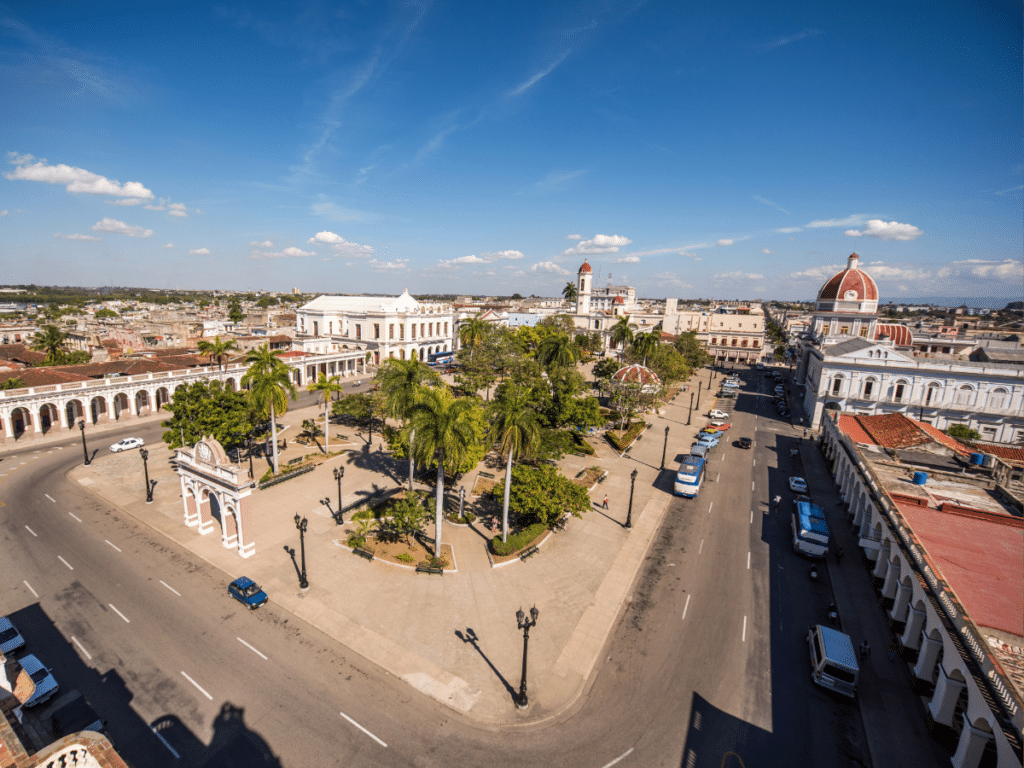
This post contains affiliate links that may reward me monetarily or otherwise when you use them to make qualifying purchases – at no cost to you. As an Amazon Associate, I earn from qualifying purchases. For more information, please read our disclosure policy .
Where To Stay in Cienfuegos
When choosing where to stay in Cienfuegos, Cuba , there are only two real areas of town to consider staying in: the Old Town of Cienfuegos and the bayside Punta Gorda area.
- Old Town: Centered around Parque José Martí, Old Town has most of the major monuments and beautiful architecture of Cienfuegos , Old Town is walkable, quaint, and mostly laid back, especially when compared to Cuba’s other historic areas like Old Havana .
- Punta Gorda: Extending off of the malecón promenade in Cienfuegos and into the bay, Punta Gorda’s waterside location provides beautiful views and a relaxed environment , and has a mix of affordable guesthouses and larger hotels.
Cienfuegos is mostly home to smaller casa particular guesthouses and just a few boutique hotels and larger hotel properties. While there’s not a lot of variety here, there are plenty of places to stay. These are our top recommendations for the best places to stay in Cienfuegos:
- Best Casa Particular Guest House in Cienfuegos: Casa Buenavista
- Best Boutique Hotel in Cienfuegos: Hotel Palacio Barón y Balbín
Keep reading below for an in-depth breakdown of these best places to stay in Cienfuegos and several other Cienfuegos hotels that we recommend for travelers. We’ve stayed in many of these ourselves and always recommend them to friends and family visiting Cienfuegos.
Read More: Ultimate Guide to Casas Particulares in Cuba
Cuba Travel 101
- Currency in Cuba: A Local’s Guide for Travelers
- How to Get Wifi in Cuba [Updated!]
- Is Cuba Safe? Updated Cuba Safety Guide
- Ultimate Cuba Travel Guide – A Local’s Advice for Travelers

Best Places To Stay in Cienfuegos
Casa buenavista ($$).
Best Casa Particular Guest House in Cienfuegos
Our pick for the best casa particular guesthouse in Cienfuegos is Casa Buenavista , cool, casual, and welcoming casa particular located in the historic part of the city. Clean, well-kept rooms and delicious food – including breakfast and meals throughout the day – are highlights of a stay.
Located on a central street in the heart of Cienfuegos, Casa Buenavista has rooms that face the historic building’s interior courtyard, which itself is a quiet escape from the city. This means that most rooms don’t get tons of natural light, but they’re plenty quiet throughout the day and night.
Reviews and Bookings: Casa Buenavista
Plan a Trip to Cienfuegos
- Cienfuegos, Cuba: Ultimate Traveler’s Guide
- 10+ Best Things To Do in Cienfuegos, Cuba

Hotel Palacio Barón y Balbín ($$)
Best Boutique Hotel in Cienfuegos
The historic Hotel Palacio Barón y Balbín isn’t just our top pick for the best boutique hotel in Cienfuegos – it’s our top pick for one of the best hotels in all of Cuba ! If you’re looking to enjoy all of the rich history and beauty of Cienfuegos without even leaving your room, this is the place for it.
Highlights of Hotel Palacio Barón y Balbín also include a rooftop terrace with water views and a delicious restaurant. Located just two blocks from the central Plaza José Martí, this beautiful and locally-owned boutique Cuban hotel puts you among the most beautiful parts of Cienfuegos.
Reviews and Bookings: Hotel Palacio Barón y Balbín
Cuba Accommodation Guides
- Best Resorts in Cuba: Ultimate Cuba Resort Guide
- 15 Best All Inclusive Resorts in Cuba
- 15 Best Hotels in Cuba

Cadena Hostal Roberto Carlos ($)
Budget travelers passing through Cienfuegos will love Cadena Hostal Roberto Carlos , our pick for the best affordable place to stay in Cienfuegos. Hosts Roberto and Daniel make this budget-friendly spot something truly special and always have the scoop on the best things to see and do in Cienfuegos .
This tiny casa particular guesthouse – Cadena Hostal Roberto Carlos is really more of a guesthouse than a hostel, as its name implies – has just three rooms, each with its own bathroom and air conditioning. Basic but nice furnishings and spotlessly clean rooms feel comfortable even for a longer stay.
Reviews and Bookings: Cadena Hostal Roberto Carlos

Hostal Sunrise ($ – $$)
In the heart of historic Cienfuegos, Hostal Sunrise is a welcoming, friendly casa particular guesthouse through and through, with just a few well-equipped rooms providing an intimate retreat for visitors in a highly walkable part of town.
The building that houses Hostal Sunrise was built in 1940 and shows off thoughtful, original details like multi-colored tiles and high ceilings with dramatic archways. Not only is this historic house a beauty in itself, but it boasts incredible views from its terraces and rooftop, which offers spectacular vistas across the Old Town Cienfuegos and the bay.
Reviews and Bookings: Hostal Sunrise

Casa Los Delfines ($$)
If you’re looking for a dreamy place to stay in Cienfuegos with views of the bay, look no further than Casa Los Delfines . Located near the very tip of Punta Gorda, this small waterfront bed and breakfast feels friendly and laidback and will have you wondering why so many travelers pay a hefty price for waterfront rooms by Cuba’s best beaches when places like this exist.
The terrace overlooking the bay is the star of the show at Casa Los Delfines – it is outfitted for breakfast and on-request meals all day. However, the incredible hosts and spacious, comfortable rooms prove there is much more to love.
Reviews and Bookings: Casa Los Delfines
Travel Essential
Don’t think about traveling to Cuba without a good VPN (Virtual Private Network) . Using a VPN while connecting to the internet is an easy way to keep your personal information safe from hackers and trackers. We’ve used NordVPN for years and couldn’t recommend it more – it’s a must for safety online, especially in Cuba.

Camila’s ($ – $$)
Another one of the most popular spots in the waterfront Punta Gorda area, Camila’s is best known as a restaurant, though its three private rooms with air conditioning and private bathrooms also make it a great place to stay in Cienfuegos. The staff are incredibly friendly, the spaces are comfortable and clean, and having the restaurant on sight is a convenient bonus. Plus, the views overlooking the bay can’t be beaten.
We recommend making a stop at Camila’s for lunch or dinner even if you stay elsewhere in Cienfuegos. Great food and a laidback space on the water make it one of the best places to enjoy a sunset in the city.
Reviews and Bookings: Camila’s

Casa Carlos y Ana Maria ($)
A more affordable option for travelers looking to stay in the Punta Gorda waterfront area of Cienfuegos is Casa Carlos y Ana Maria . While the property itself isn’t waterfront, it’s just a block away from the bay and within steps of some of this upscale neighborhood’s best places to eat, drink, dance, and enjoy.
Hosts at the family-run Casa Carlos y Ana Maria are incredibly friendly, and the rooms, while basic, are comfortable. You’ll be most impressed with the home’s gigantic garden, which has plenty of space for enjoying breakfast or happy hour drinks in the shade of palm trees.
Reviews and Bookings: Casa Carlos y Ana Maria
Travel Insurance
Cuba requires that all travelers have proof of a comprehensive travel insurance policy in order to enter the country. Check out our guide to travel insurance for Cuba for more details. We recommend these brands for Cuba travel insurance:
- Visitors Coverage : Coverage for Cuba travel available to citizens of all countries, though not currently available to residents of New York and Maryland in the United States.
- Insubuy : Coverage for Cuba travel available to citizens of all countries and states of the United States.

Cienfuegos Hotels
Hotel melia san carlos ($$$).
Cienfuegos has very few large hotels – and even fewer we’d really consider worth staying at – but Hotel Melia San Carlos is our number one pick for a larger, almost city-resort property in the heart of the city. Relatively recently renovated rooms and common spaces make it one of the nicer hotels in Cienfuegos.
The rooftop at Hotel Melia San Carlos has long been considered one of the best places to relax and take in the view over the city – it is worth visiting even if you stay elsewhere.
Reviews and Bookings: Hotel Melia San Carlos

Carley Rojas Avila
Carley Rojas Avila is a bilingual travel writer, editor, content marketer, and the founder of the digital travel publications Home to Havana and Explorers Away. She is a serial expat and traveler, having visited 40+ countries and counting. Carley has written for publications like Travel + Leisure, MSN, Associated Press, Weather Channel, Wealth of Geeks, and more. Find her front row at a Bad Bunny concert, befriending street cats, and taste-testing every pizza in Havana.

6 Best Resorts in Havana, Cuba: A Local's Guide
Cuba is renowned as a beach vacation destination , but travelers might be surprised to learn that resorts in Havana are few and far between. Truthfully, you'll have to travel about two hours east to Varadero before you reach some of the best beaches in Cuba (and the best resorts in Cuba ). However, there are a few city resorts in Havana worth considering for your stay.
Looking for an amenity-rich resort-like stay in Havana? As locals, we've checked out the best of the city's resorts, from beautiful, modern hotels in Havana 's historic districts to beachfront properties with plenty of places to spread out. Read on for the best resorts in Havana, Cuba!
Best Resorts in Havana, Cuba
Havana may not have any true beach resorts, but it has some luxurious, amenity-rich city resorts and hotels to choose from for your stay. These are our top favorite resorts in Havana, Cuba:
- Best Resort in Havana: Royalton Habana
- Best Resort in Old Havana: Iberostar Grand Packard
- Best Resort in Vedado: Hotel Grand Aston La Habana
Keep reading if you're looking for even more options and our complete reviews (we've visited each hotel and resort on this list)! You'll find everything from historic hotels in Havana that Fidel Castro called home after the Cuban Revolution (one of my favorite fun facts about Cuba !) to brand-new oceanfront hotels that put larger beach resorts to shame.
1. Royalton Habana
Best Resort in Havana
Our top recommendation among the best resorts in Havana is Royalton Habana, hands down! This gorgeous, modern hotel is pure city luxury and offers tons of resort-like amenities from its privileged position along Havana's iconic malecón sea wall.
Beautiful modern decor and thoughtful details throughout the Royalton Habana 's 250 rooms make a stay here a comfortable one, though the true star is the ocean views from every room. The resort also offers a luxurious spa (one of Havana's best!) as well as a beauty parlor, on-site dining, and an incredible rooftop pool deck with a bar and eatery to enjoy the sweeping views over the city and the sea. It's a popular destination even for those who aren't staying here.
2. Iberostar Grand Packard
Best Resort in Old Havana
The Iberostar Grand Packard is our top pick among modern hotels in Havana , though with its excellent options for dining, its luxurious spa, and its beautiful pool with incredible ocean vistas, it also earns a spot on our list of the best resorts in Havana. Nestled between the winding streets of Old Havana and the city's largest pedestrian thoroughfare, Paseo del Prado, it's the best choice for a resort-like experience in an area perfect for exploring the city.
Rooms at the Iberostar Grand Packard are spacious and modern, yet comfortable, and many offer excellent views, overlooking either the ocean or the historic areas of the city. Excellent on-site dining options are also a highlight; make sure to enjoy a drink at sunset on the pool deck overlooking El Morro, Havana's historic fortress across the harbor.
3. Hotel Grand Aston La Habana
Best Resort in Vedado
After its debut just over a year ago, the Hotel Grand Aston La Habana has quickly become a favorite choice for travelers looking for all the amenities of Havana resorts while hoping to enjoy the best of the lively yet storied neighborhood of Vedado. It's one of our top recommendations among resorts in Havana, Cuba.
Rooms are quite large and offer stunning views over the city from the upper levels. The restaurant also has great on-site dining options. One of the highlights is the large oceanfront pool deck with a bar and eatery with plenty of loungers and sun beds. You'll feel like you're enjoying a proper beach getaway in Cuba while being within walking distance of all the best restaurants, shops, and attractions in Havana .
4. Gran Hotel Manzana Kempinski
The Gran Hotel Manzana Kempinski is one the best hotels in Old Havana and has a rich history: this building was once home to Havana's first indoor shopping arcade, which visitors can still visit on the ground floor of the building.
This 246-room hotel has modern yet comfortable decor and some seriously cool amenities and spaces. The rooftop bar and restaurant offer stunning views over the city, making this a must-visit destination even for those who aren't staying here, as is the lounge and cigar bar with a massive walk-in humidor on the second floor.
If you're headed to the beach after you complete your Havana itinerary , consider staying at Gran Hotel Manzana Kempinski's sister resort in Cayo Guillermo - it's considered the most luxurious resort in Cuba.
Havana Beaches Guides
- 7 Best Beaches in Havana
- Playas del Este: A Guide to Havana's Eastern Beaches
- 8 Best Day Trips from Havana
5. Melia Habana
The oceanfront Melia Habana has everything you could ever want from resorts in Havana, Cuba, including amenities that put larger resorts in Cuba to shame. Multiple restaurants and buffets, five bars, a large pool deck with an area for the kids, and a large wellness spa with spa, sauna, and fitness center are just the start at this 397-room resort.
While the Melia Habana certainly has the feel of a true resort, more so than most other resorts in Havana Cuba, I generally don't recommend it for most travelers due to its location: it's located in residential, yet upscale, Miramar. While the hotel offers a free shuttle to Old Havana, the hotel just doesn't offer much for those looking to explore Havana.
Truthfully, if you're not looking to explore Havana, you're better off heading to one of the impressive beach resorts of Varadero , where you'll enjoy the same amenities but one of the best beaches in the Caribbean .
6. Tryp Habana Libre
Tryp Habana Libre is one of the most storied hotels in Havana , the stuff of endless legend and myth, and among Havana's most important landmarks.
Originally opened in 1958 as the Habana Hilton, the hotel became the headquarters of Fidel Castro upon the victory of the Cuban Revolution in 1959 - Castro famously lived in the hotel's Continental Suite (room 2324) for three months . The hotel was renamed Habana Libre - or, "free Havana" - in 1960 when the revolutionary government nationalized the hotel.
While certain areas of the hotel could use some serious love and are overdue for a refurbishment, it still has a lot to offer travelers, and rooms are generally much more affordable than those at other Havana resorts on this list. Plus, the hotel is located on one of the most desirable corners in Havana - 23 y L in the very heart of Vedado, meaning your stay guarantees you one of the best places to stay in Havana to explore the city.
- 40 Fun Facts About Havana (You Won't Believe!)
- 45+ Best Things To Do in Havana
- Old Havana: Ultimate Traveler's Guide
Can Americans Stay at Resorts in Havana?
Travelers from the United States might be surprised to learn that, for the most part, Americans can travel to Cuba easily , and quite normally.
However, policy changes implemented during the Trump administration mean that travelers from the United States are limited to where they can stay in Cuba. ALL of the resorts on this list are included in the list of hotels that American travelers CAN NOT visit while staying in Cuba.
Instead, opt for one of the many smaller, independently owned and operated hotels in Havana . These are some of our favorite spots in the city:
- Residencia Santa Clara in Old Havana
- La Reserva Vedado in Vedado
- La Rosa de Ortega in 10 de Octobre, one of Havana's more residential, "local" neighborhoods
For a full summary of hotels that American travelers should avoid while traveling in Cuba, check out the U.S. Department of State website for an updated list.
Guides for American Travelers to Cuba
- Can Americans Travel to Cuba?
- Is Cuba Safe for American Travelers?
- Support for the Cuban People: Legal Travel Guide to Cuba
![6 Best Resorts in Havana, Cuba: A Local's Guide [2024] 6 Best Resorts in Havana, Cuba: A Local's Guide [2024]](https://img-s-msn-com.akamaized.net/tenant/amp/entityid/BB1l8Rvu.img?w=768&h=576&m=6)

Promotions apply when you purchase
These promotions will be applied to this item:
Some promotions may be combined; others are not eligible to be combined with other offers. For details, please see the Terms & Conditions associated with these promotions.
Buy for others
Buying and sending ebooks to others.
- Select quantity
- Buy and send eBooks
- Recipients can read on any device
These ebooks can only be redeemed by recipients in the US. Redemption links and eBooks cannot be resold.

Download the free Kindle app and start reading Kindle books instantly on your smartphone, tablet, or computer - no Kindle device required .
Read instantly on your browser with Kindle for Web.
Using your mobile phone camera - scan the code below and download the Kindle app.

Image Unavailable

- To view this video download Flash Player
Follow the author

Cuba Travel Guide 2024-2025: Explore the Vibrant Culture, Rich History, and Natural Beauty in the Heart of the Caribbean. Kindle Edition
Embark on a visual journey through the heart of Cuba with our immersive travel guide, beautifully curated. Overflowing with captivating imagery that transports you to the vibrant streets of Havana, the serene landscapes of Viñales, and the pristine shores of Varadero, this book captures the essence of Cuba in all its colorful glory.
Feel the rhythm of Cuban life pulsating through each page as you explore bustling city squares, quaint colonial architecture, and lively music-filled streets. Let your senses come alive as you indulge in the tantalizing aromas of Cuban cuisine, from succulent roast pork to zesty mojitos, depicted in vivid detail.
But this guide isn't just about sightseeing; it's a heartfelt invitation to immerse yourself in the warmth and hospitality of the Cuban people. Through candid snapshots of everyday life, you'll witness the resilience and spirit that defines this island nation, creating a deep connection that transcends mere tourism.
Whether you're dreaming of sipping rum cocktails under the Caribbean sun or losing yourself in the rhythm of a salsa beat, this book is your passport to an unforgettable Cuban adventure. So pack your bags, flip through these pages, and let the magic of Cuba sweep you away on an unforgettable journey of discovery and wonder.
- Print length 86 pages
- Language English
- Sticky notes On Kindle Scribe
- Publication date April 14, 2024
- File size 1351 KB
- Page Flip Enabled
- Word Wise Not Enabled
- Enhanced typesetting Enabled
- See all details
Product details
- ASIN : B0D1ST1K3Y
- Publication date : April 14, 2024
- Language : English
- File size : 1351 KB
- Text-to-Speech : Enabled
- Screen Reader : Supported
- Enhanced typesetting : Enabled
- X-Ray : Not Enabled
- Word Wise : Not Enabled
- Sticky notes : On Kindle Scribe
- Print length : 86 pages
About the author
William d. turner.
Discover more of the author’s books, see similar authors, read author blogs and more
Customer reviews
Customer Reviews, including Product Star Ratings help customers to learn more about the product and decide whether it is the right product for them.
To calculate the overall star rating and percentage breakdown by star, we don’t use a simple average. Instead, our system considers things like how recent a review is and if the reviewer bought the item on Amazon. It also analyzed reviews to verify trustworthiness.
No customer reviews
- Amazon Newsletter
- About Amazon
- Accessibility
- Sustainability
- Press Center
- Investor Relations
- Amazon Devices
- Amazon Science
- Sell on Amazon
- Sell apps on Amazon
- Supply to Amazon
- Protect & Build Your Brand
- Become an Affiliate
- Become a Delivery Driver
- Start a Package Delivery Business
- Advertise Your Products
- Self-Publish with Us
- Become an Amazon Hub Partner
- › See More Ways to Make Money
- Amazon Visa
- Amazon Store Card
- Amazon Secured Card
- Amazon Business Card
- Shop with Points
- Credit Card Marketplace
- Reload Your Balance
- Amazon Currency Converter
- Your Account
- Your Orders
- Shipping Rates & Policies
- Amazon Prime
- Returns & Replacements
- Manage Your Content and Devices
- Recalls and Product Safety Alerts
- Conditions of Use
- Privacy Notice
- Consumer Health Data Privacy Disclosure
- Your Ads Privacy Choices
Cultural News and Events

Cuba Tourist Board of Canada
- REQUIREMENTS FOR CANADIANS PASSENGERS TRAVELING TO CUBA (updated as of Nov 2, 2023)
- Travelling from Canada to Cuba, you just need a valid Canadian passport, if your passport is from another country, you need your Canadian resident card or a work or study permit that includes a multiple-entry permit attached to your passport. For Cuba, you need the tourist card (the tourist card is included in your plane ticket and is issued by the airline on board)
- All passengers arriving to Cuba from a direct flight from Canada, do not need to present a vaccination passport.
- Medical insurance is required for Cuba, medical insurance must cover any type of medical emergency including COVID-19, so in case of a medical emergency the tourist is responsible for paying the costs, for this reason, Cuba suggests having medical insurance for all types of medical emergencies including covid. If you are unable to obtain insurance in Canada, you can purchase medical insurance in Cuba at the airport or visit www.cubatravel.cu. For more information on what the insurance includes, contact the representative at the Insurance desk at the airport in Cuba.
- Since January 1, 2022, travelers must complete the customs and health declaration form, this is done online and the website to visit is: https://www.dviajeros.mitrans.gob.cu . All travelers must complete this information online 48 hours before traveling to Cuba. Once the form is completed, you will receive a QR code by email. You must show an electronic or printed version of the QR code to the authorities upon arrival. If you have any problems and you can't fill out the form online because you don't have internet access, the printed form will be available on arrival at the airport in Cuba to fill it out.
- CURRENCY: The local currency is the Cuban Peso (CUP). The convertible peso has been discontinued and is no longer accepted in Cuba. US and CAD dollars are accepted anywhere in Cuba. At tourist areas which includes hotels, restaurants and shopping malls, payment is only accepted with debit/visa cards or visa / mastercard credit cards from Canadian banks . Customers who do not have a credit card can buy a prepaid card in Cuba at the airport or at any money exchange kiosks at hotels . Payments outside the tourist areas are all in Cuban pesos (CUP); We recommend exchanging Canadian dollars for pesos as needed and only if you plan to travel OUTSIDE of tourist areas, since you will not be able to change the remaining pesos into Canadian dollars at the end of the holiday.
For additional information, please contact Cuba Tourist Board at:
E-mail: [email protected] TL : 416 362 0700

View all posts by:
Comments are closed.
Currency Exchange
Stay up to date with notifications from The Independent
Notifications can be managed in browser preferences.
UK Edition Change
- UK Politics
- News Videos
- Paris 2024 Olympics
- Rugby Union
- Sport Videos
- John Rentoul
- Mary Dejevsky
- Andrew Grice
- Sean O’Grady
- Photography
- Theatre & Dance
- Culture Videos
- Food & Drink
- Health & Families
- Royal Family
- Electric Vehicles
- Car Insurance deals
- Lifestyle Videos
- UK Hotel Reviews
- News & Advice
- Simon Calder
- Australia & New Zealand
- South America
- C. America & Caribbean
- Middle East
- Politics Explained
- News Analysis
- Today’s Edition
- Home & Garden
- Broadband deals
- Fashion & Beauty
- Travel & Outdoors
- Sports & Fitness
- Sustainable Living
- Climate Videos
- Solar Panels
- Behind The Headlines
- On The Ground
- Decomplicated
- You Ask The Questions
- Binge Watch
- Travel Smart
- Watch on your TV
- Crosswords & Puzzles
- Most Commented
- Newsletters
- Ask Me Anything
- Virtual Events
- Betting Sites
- Online Casinos
- Wine Offers
Thank you for registering
Please refresh the page or navigate to another page on the site to be automatically logged in Please refresh your browser to be logged in
Fire threatens one of Cuba’s best known tourist destinations
Vinales valley is among cuba’s top and best known tourist destinations, article bookmarked.
Find your bookmarks in your Independent Premium section, under my profile
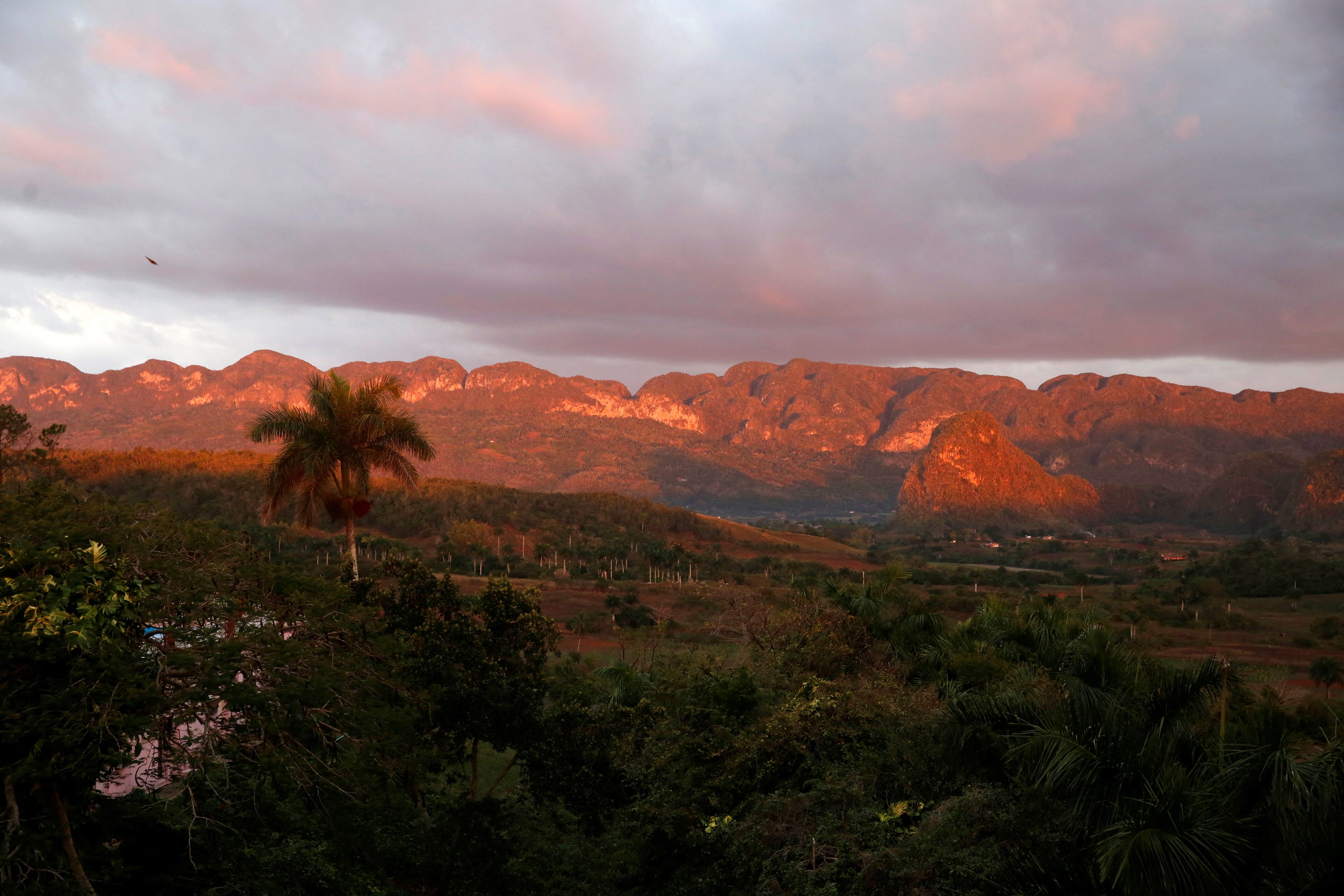
Sign up to Simon Calder’s free travel email for expert advice and money-saving discounts
Get simon calder’s travel email, thanks for signing up to the simon calder’s travel email.
A wildfire has threatened a town in Cuba ’s most important tourist destination.
The fire was still burning early on Wednesday just outside the picturesque western valley town of Vinales, state-run media said.
Local media said the fire was 90 per cent controlled by early Wednesday but that the blaze, which began on Monday afternoon, had yet to be snuffed out completely as strong winds fanned flames in a remote and mountainous region of pine forest.
The 51-square-mile (13,210-hectare) Vinales valley is a Unesco World Heritage site and among Cuba’s top and best known tourist destinations.
The wildfire had consumed approximately 350 hectares, or about 1.5 square miles, but the area burned was well south of the more populated town of Vinales and the area most frequented by tourists.
Tourists who visit the valley take horseback rides along forested paths, visit caverns set among the abrupt, eye-catching mountains and tour tobacco plantations.
The cause of the fire was still under investigation, state-run media reported.
Officials said a prolonged dry season and the lingering effects of El Nino, a weather pattern that can provoke extreme weather phenomena such as wildfires, tropical cyclones and prolonged droughts, had left the area particularly exposed to disaster.
Meanwhile, in nearby Mexico a drought drags on and angry subsistence farmers have begun taking direct action on thirsty avocado orchards and berry fields of commercial farms that are drying up streams in the mountains west of Mexico City.
Rivers and even whole lakes are disappearing in the once green and lush state of Michoacan, as the drought combines with a surge in the use of water for the country’s lucrative export crops, led by avocados.
In recent days, subsistence farmers and activists from the Michoacan town of Villa Madero organized teams to go into the mountains and rip out illegal water pumps and breach unlicensed irrigation holding ponds.
A potential conflict looms with avocado growers — who are often sponsored by, or pay protection money to, drug cartels.
Last week, dozens of residents, farmworkers and small-scale farmers from Villa Madero hiked up into the hills to tear out irrigation equipment using mountain springs to water avocado orchards carved out of the pine-covered hills.
Join our commenting forum
Join thought-provoking conversations, follow other Independent readers and see their replies
Subscribe to Independent Premium to bookmark this article
Want to bookmark your favourite articles and stories to read or reference later? Start your Independent Premium subscription today.
New to The Independent?
Or if you would prefer:
Want an ad-free experience?
Hi {{indy.fullName}}
- My Independent Premium
- Account details
- Help centre

IMAGES
VIDEO
COMMENTS
2. Fill out your passenger information in advance. Cuba uses an online form called D'Viajeros to gather traveler information, including immigration and health data, in advance of travel. Fill out the form digitally up to 72 hours before your arrival in Cuba. 3.
Read More: Ultimate Guide to Travel to Cuba from the United States. Currency. Cuba uses the Cuban peso, valued at 24 pesos to $1 USD. However, since 2021 Cuba has been experiencing high inflation, and the official exchange rate is much lower than the one you'll find if you exchange your money with a moneychanger.
Cuba travel tips for dealing with the ugly. 44. Be prepared for the long lines. Many goods and services on the island are still rationed and distributed via the state bureaucracy. Be prepared to wait in line at the bus stop, bodegas, banks, and cultural attractions like museums.
LAST THOUGHTS: VISITING CUBA TRAVEL TIPS. Having visited Cuba as an American citizen in 2015, 2019, and 2023, I can confidently say that it was an incredibly interesting experience. Despite being a relatively poor country with limited resources, Cuba is rich in culture, history, and hospitality.
Cuba's official travel and tourist information web site. Everything about vacation in Cuba. Find inspiration and guides for your next trip to Cuba. Things to do; ... Get more travel inspiration, tips and exclusive offers sent straight to your inbox. I would like to get Visit Cuba newsletters in my inbox. Submit.
Here are our 30 Cuba travel tips for everyone travelling to the island : 1. Best time to travel to Cuba. The best time to visit Cuba is from towards the end of the year, starting early December up until April. With the island hot tropical climate, the summer's average temperature is 24 degrees, whereas during the winter months of January and ...
Cuba Budget Travel Guide 2021. What draws people to the tropical Caribbean island of Cuba is much more than beaches and antique 1950's cars, although there are plenty of those! In Cuba, you can wander bustling city streets, go hiking in the mountains, learn about the history of tobacco, or simply soak up the country's 1950's time-warp appeal.
Cuba travel tips: 21 things you need to know... 1. Visit Cuba in shoulder season for the best balance of weather and prices. If you're wondering when to visit Cuba or when the best time to visit Cuba is, then I would say shoulder season, in March / April.
What To Expect. Language: The official language of Cuba is Spanish, with about 90% of its population speaking it as their first language. Currency: The official currency of Cuba is the Cuban Peso (CUP) though they also use the Cuban Convertible Peso (CUC). Credit Cards & ATMs: At the moment, no US credit or debit card can be used in Cuba. This also includes using a US debit card to try to get ...
Your ultimate Cuba travel guide, with tips, things to do, and best things to see in Cuba. Great for first-time and returning travelers. Located on the largest island of the Caribbean, Cuba is a very popular tourist destination and for good reason. Cuba is home to beautiful white-sand beaches, impressive rainforests and waterfalls, vibrant ...
Getting WiFi in Cuba. If a travel guide says there are only one-hour WiFi cards, it is outdated. Now, you can access WiFi on a one-hour or a five-hour card. WiFi is now cheaper in Cuba—it was $5 USD per hour; now, it's $1 USD per hour. We only needed one 5-hour card per person for the whole week.
This site is owned by Apa Digital AG, Bahnhofplatz 6, 8854 Siebnen, Switzerland. Rough Guides® is a trademark owned by Apa Group with its headquarters at 7 Bell Yard London WC2A 2JR, United Kingdom. If you're going to travel to Cuba anytime soon, there are a few things you need to know. Here are the best Cuba travel tips from our expert.
How to Travel to Cuba Legally . At the time of writing, the only way to travel to Cuba legally from the U.S. is under one of the 12 categories of authorized travel by the Department of Treasury's ...
Cayo Jutias, Cuba: A Local's Guide for Travelers [2024] Home to Havana provides travel tips and guides to help travelers cross Cuba off their bucket list. Founded by José and Carley Rojas Avila.
Cuba's lack of Wi-Fi and mobile data means your tablet or smart phone won't really work here. 5. Bring cash for the entire trip. Cuba is mostly a cash-only economy. While major credit card ...
Baracoa, a small vibrant coastal town set on Cuba's southern tip is surrounded by some of the country's most breathtaking mountains, rainforest and countryside. Santiago de Cuba. If you travel to Cuba you could easily while away your entire holiday in Santiago de Cuba province,southeast of the island.
5 / PRE-BOOK YOUR TRANSPORT BEFORE YOU GO. If you are an independent traveller there are two main options for getting around Cuba. Option 1 is to hire your own car, option 2 is to use a mix of buses, colectivos and taxis. The car rental companies that operate in Cuba are Cubacar, Rex, Havanautos and Via.
Call us in Washington, D.C. at 1-888-407-4747 (toll-free in the United States and Canada) or 1-202-501-4444 (from all other countries) from 8:00 a.m. to 8:00 p.m., Eastern Standard Time, Monday through Friday (except U.S. federal holidays). See the State Department's travel website for the Worldwide Caution and Travel Advisories.
Take our Cuba travel tips and advice and start planning your first time in Cuba. The landscape of Cuba is beginning to change as relations with the United States change and improve. Just since 2015, we've seen cruise ships start to visit the island, with Cuban-based companies like Cuba Cruise start sailing around the island, opening up the ...
Travel to Cuba for tourist activities remains prohibited by statute. However, the Department of Treasury's Office of Foreign Assets Control (OFAC) has issued general licenses for 12 categories of travel. Individuals who meet the regulatory conditions of the general license they seek to travel under do not need to apply for an additional ...
Living in Cuba. Travelling to Cuba. FCDO travel advice for Cuba. Includes safety and security, insurance, entry requirements and legal differences.
Private property rights in Cuba are strictly controlled. Only Cubans and permanent residents can buy a property in Cuba or register a privately owned vehicle. Be wary of strangers or acquaintances offering to purchase these items on your behalf. If you plan on making investments in Cuba, seek legal advice in Canada and Cuba.
When choosing where to stay in Cienfuegos, Cuba, there are only two real areas of town to consider staying in: the Old Town of Cienfuegos and the bayside Punta Gorda area. Old Town: Centered around Parque José Martí, Old Town has most of the major monuments and beautiful architecture of Cienfuegos, Old Town is walkable, quaint, and mostly ...
These are some of our favorite spots in the city: Residencia Santa Clara in Old Havana. La Reserva Vedado in Vedado. La Rosa de Ortega in 10 de Octobre, one of Havana's more residential, "local ...
Embark on a visual journey through the heart of Cuba with our immersive travel guide, beautifully curated. Overflowing with captivating imagery that transports you to the vibrant streets of Havana, the serene landscapes of Viñales, and the pristine shores of Varadero, this book captures the essence of Cuba in all its colorful glory.
Travelling from Canada to Cuba, you just need a valid Canadian passport, if your passport is from another country, you need your Canadian resident card or a work or study permit that includes a multiple-entry permit attached to your passport. For Cuba, you need the tourist card (the tourist card is included in your plane ticket and is issued by ...
Vinales valley is among Cuba's top and best known tourist destinations. A wildfire has threatened a town in Cuba 's most important tourist destination. The fire was still burning early on ...